AND THEORY 2025





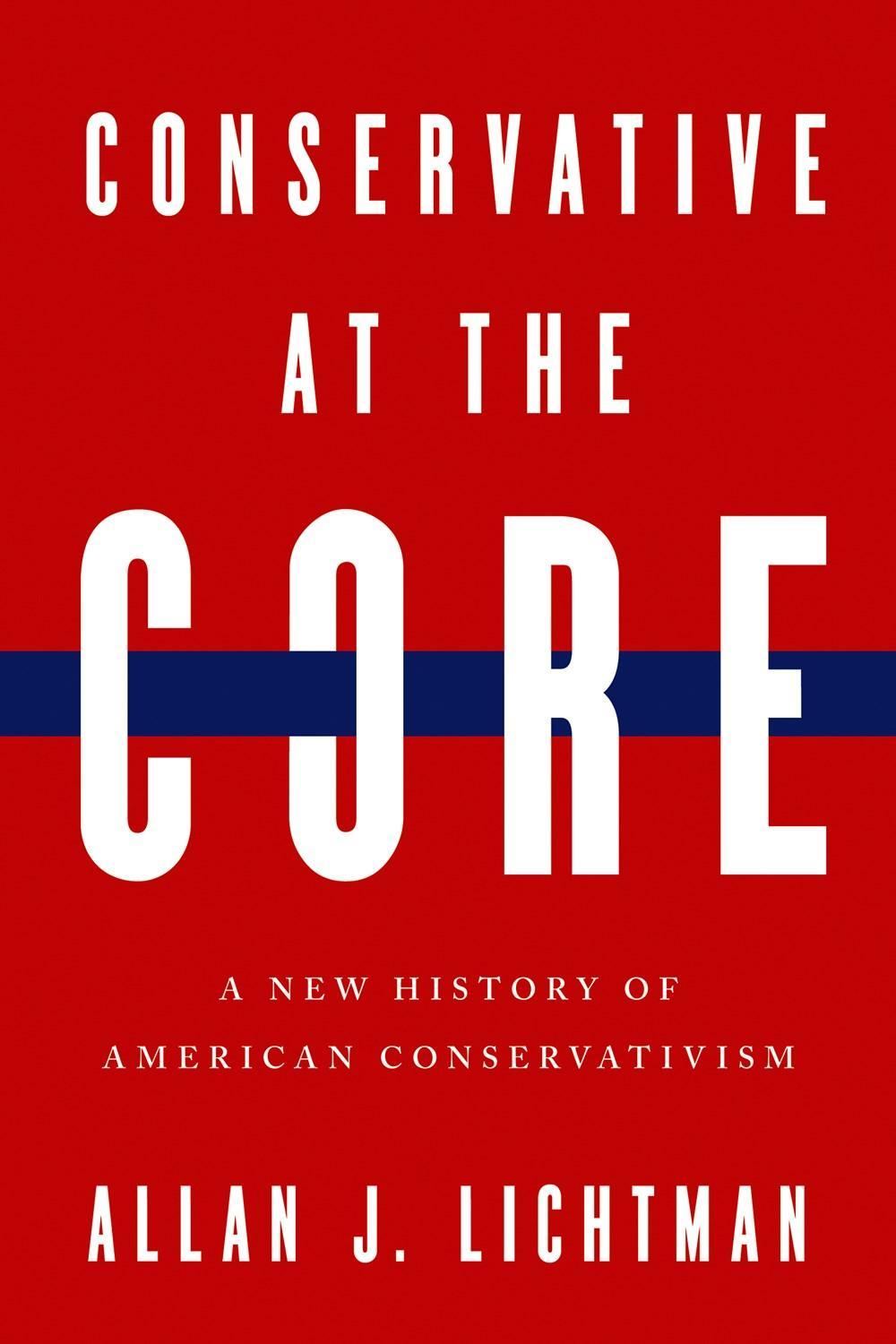
9780268210304
$32.00
376
Allan J. Lichtman
Conservative at the Core unpacks the history, rhetoric, and policies of the American conservative movement and probes the truth about what conservatism actually represents.
Allan J. Lichtman investigates the foundations and history of conservative thought to identify and reveal the central crisis that lies at the heart of conservative principles and today’s politics. He explores a century of American conservative politics to demonstrate that professed conservative principles—free enterprise, limited government, fiscal responsibility, states’ rights, law and order, personal morality, and American sovereignty—are dispensable notions for public appeal only. Instead, conservatives have only consistently advanced their version of traditional Christian values and support for private (not free) enterprise.
Lichtman provides a sweeping history of the American conservative movement from the end of World War I to the present day. He draws on leaders like Calvin Coolidge, Herbert Hoover, Richard Nixon, Ronald Reagan, George W. Bush, Donald J. Trump, and the conservative Democrats responsible for Jim Crow discrimination in the South. Contrary to those who have described Trump as a deviation from professed core principles, Conservative at the Core ultimately argues that Trump and his allies represent the culmination of the American conservative tradition, consistently upholding and fulfilling conservative nationalist values.
Contributor Bio
Allan J. Lichtman is distinguished professor of history at American University. He is the author or co-author of thirteen books, including Thirteen Cracks: Repairing American Democracy after Trump
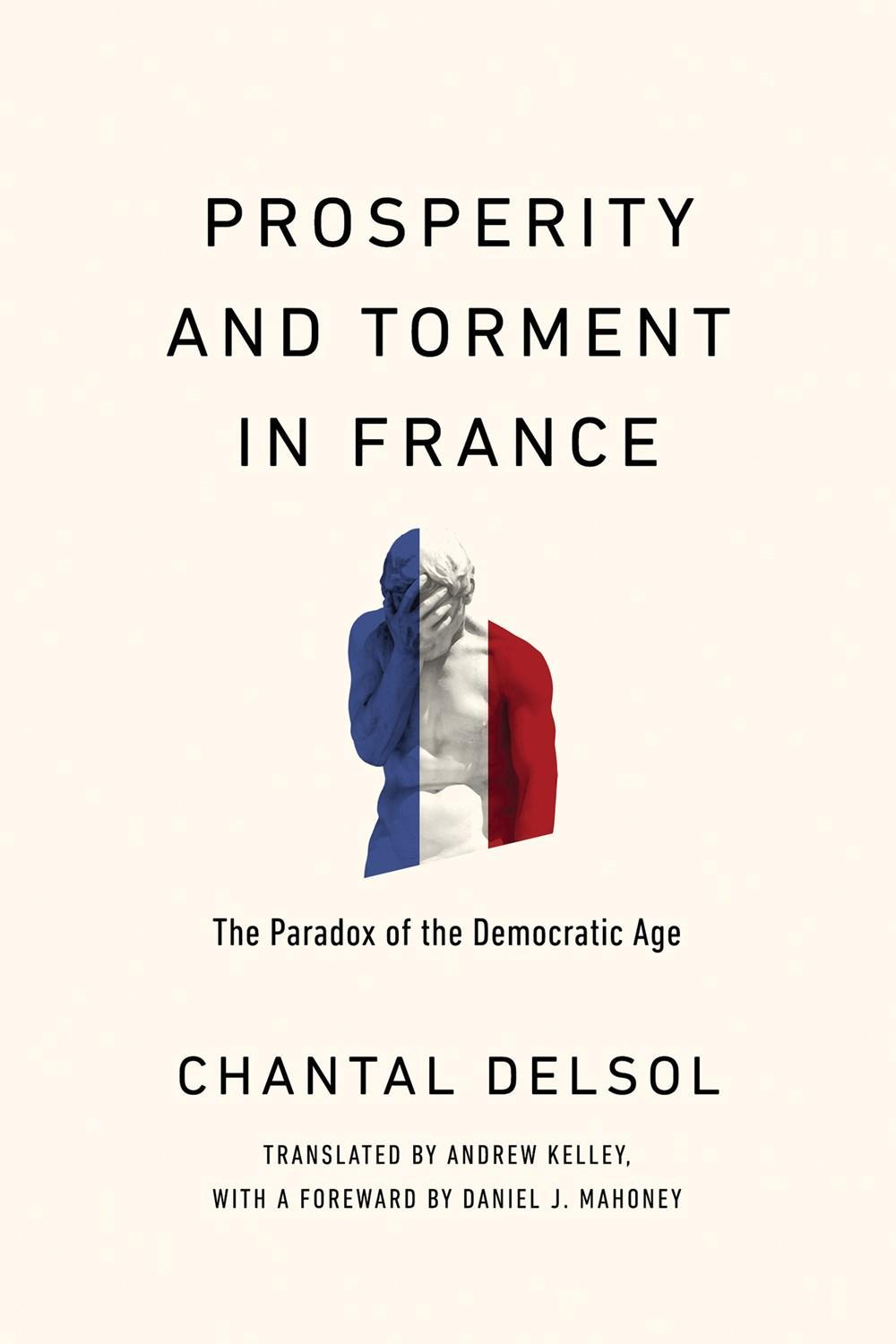
The Paradox of the Democratic Age
Chantal Delsol, Andrew Kelley
Summary
A philosophical and historical analysis of the paradox of French democracy that illuminates the challenges of the current democratic age.
In Prosperity and Torment in France, philosopher Chantal Delsol provides an analysis of the current state of affairs in French politics, economics, and cultural life that reveals key lessons for modern democracies around the world. She examines the seeming paradox of France as a wealthy country that provides almost unrivaled social services to its citizens at no extra cost, but one whose citizens are unsatisfied with the current state of affairs. Delsol traces this current dilemma back several hundred years, and examines the principle of the common good and its inherent tension with concepts like democracy and egalitarianism that often emphasize individualism. Likewise, Delsol emphasizes this concept also stands in contrast to the centralization of power in Paris throughout its history. In the end, Delsol notes that these historical tensions set the stage for many of the current tensions in France: secularism versus religion, economic liberalism versus the welfare state, civil service versus the private sector, and material wealth versus status.
By examining the paradox of France, Delsol brings to the forefront the challenges democracies are facing around the globe and asks the broader question of how governments should best serve their people in our contemporary world.
Contributor Bio
Chantal Delsol is professor of philosophy at the University of Marne-la-Vallée and an elected member of the Académie des Sciences Morales et Politiques (Institut de France). She is the author of numerous books, including La Fin de la Chrétienté (The End of Christianity).
Andrew Kelley is professor of philosophy and chair of the Department of Philosophy and Religious Studies at Bradley University He writes on twentieth-century French philosophy and has translated books from French and German philosophers.

9780268209445 Pub
$42.00
294 Pages
9
Pascal’s Defense of the Christian Proposition
Pierre Manent, Paul Seaton
Summary
Challenging Modern Atheism and Indifference is the first English translation of Pierre Manent’s penetrating engagement with the seventeenth century polymath and apologist for the Christian faith, Blaise Pascal.
Blaise Pascal (1623–1662) was the first Christian apologist to address modern human beings on their own terms and present a defense of the Christian religion that still resonates today. A major publishing and intellectual event in France when it first appeared in 2022, Challenging Modern Atheism and Indifference is Pierre Manent’s investigation of Pascal’s exploration of Christianity in the wake of a sharp atheistic turn at the dawn of the modern state and modern science. Comprehensive in scope and profound in treatment, this engagement with all of Pascal’s writings, including his famous Pensées, appeals to the reader’s head and heart. Manent emphasizes the joy that comes from engaging the truth of faith, and he argues that we are diminished by forgetting the unique and distinctive contributions of Christianity.
More than brilliant exegesis, Manent enlists Pascal in a much greater endeavor: to make what he calls “the Christian proposition” concerning God and man intelligible to Europeans who have made it their business to ignore the religion that founded Europe and the larger Western world.
Contributor Bio
Pierre Manent is professor emeritus of political philosophy at the École des Hautes Études en Sciences Sociales. He is the author of numerous books, including Montaigne: Life without Law
Paul Seaton is an independent scholar of political philosophy, with a special focus on French political thought. He has written extensively on modern and contemporary French thinkers, as well as translated works by Rémi Brague, Benjamin Constant, Chantal Delsol, and Pierre Manent.
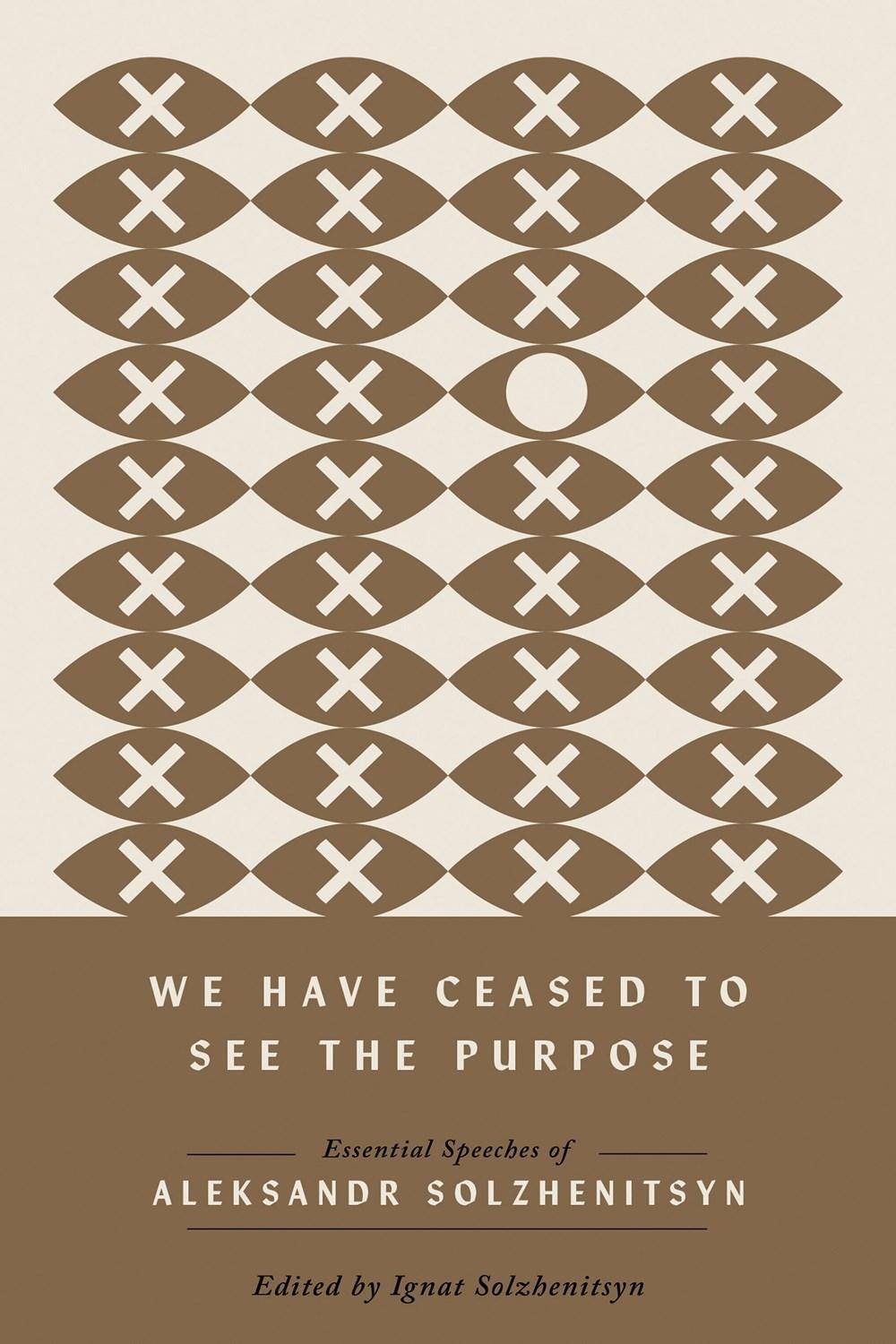
Essential Speeches of Aleksandr Solzhenitsyn Aleksandr Solzhenitsyn, Ignat Solzhenitsyn
Summary
This collection brings together ten of Nobel Prize–winner Aleksandr Solzhenitsyn’s most memorable and consequential speeches, delivered in the West and in Russia between 1972 and 1997.
Following his exile from the USSR in 1974, Aleksandr Solzhenitsyn lived and traveled in the West for twenty years before the fall of Communism allowed him to return home to Russia. The majority of the speeches collected in this volume straddle this period of exile, contemplating the materialism prevalent worldwide —forcibly imposed in the socialist East, freely chosen in the capitalist West—and searching for humanity’s possible paths forward. In beautiful yet haunting and prophetic prose, Solzhenitsyn explores the mysterious purpose of art, the two-edged nature of limitless freedom, the decline of faith in favor of legalistic secularism, and—perhaps most centrally—the power of literature, art, and culture to elevate the human spirit.
These annotated speeches, including his timeless "Nobel Lecture" and "Harvard Address," have been rendered in English by skilled translators, including Solzhenitsyn’s sons. The volume includes an introduction to the speeches, brief background information about each speech, and a timeline of the key dates in Solzhenitsyn’s life.
Contributor Bio
Aleksandr Solzhenitsyn (1918–2008), Nobel Prize laureate in literature, was a Soviet political prisoner from 1945 to 1953. His story One Day in the Life of Ivan Denisovich (1962) made him famous, and The Gulag Archipelago (1973) further unmasked Communism and played a critical role in its eventual defeat. Solzhenitsyn was exiled to the West in 1974. He ultimately published dozens of plays, poems, novels, and works of history, nonfiction, and memoir.
Ignat Solzhenitsyn is a pianist and conductor based in New York City The middle son of Aleksandr Solzhenitsyn, he is the translator and editor of several of his father’s works in English.
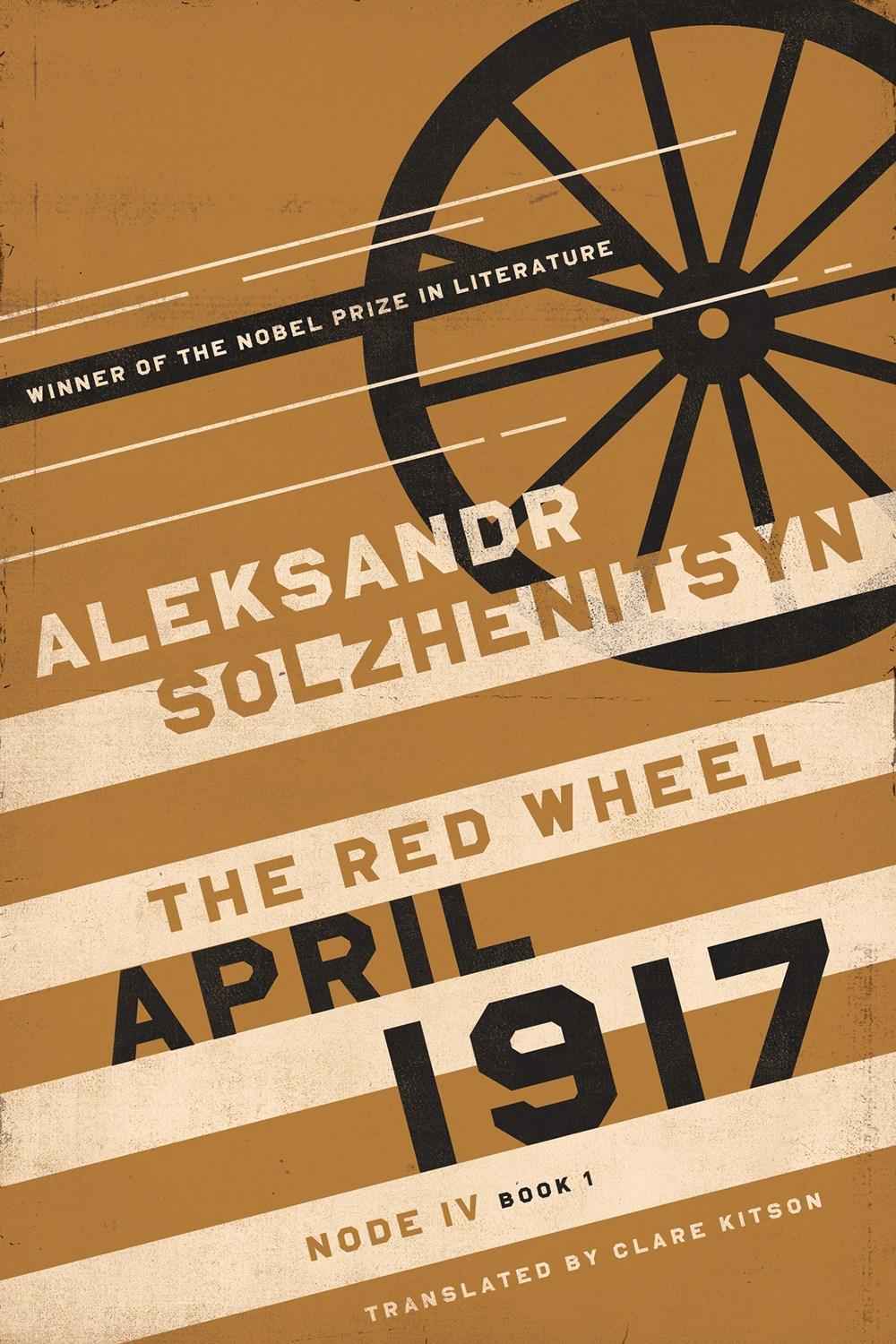
9780268210526
Pub Date: 11/1/25
$39.00 USD
624 Pages
6 maps Fiction / Historical
Series: The Center for Ethics and Culture Solzhenitsyn Series
9.3 in H | 6.1 in W
The Red Wheel, Node IV, Book 1
Aleksandr Solzhenitsyn, Clare Kitson
April 1917, Book 1, captures the division and helplessness of Russia’s first Revolutionary rulers, paving the way for the victory of the ruthless Bolsheviks later that year.
One of the masterpieces of world literature, The Red Wheel is Nobel prize–winner Aleksandr Solzhenitsyn’s multivolume epic work about the Russian Revolution told in the form of a historical novel. April 1917—the fourth node—shows the intractable divisions that would lead Russia to catastrophic Communist dictatorship and civil war. Whereas the first three nodes of The Red Wheel form its first act, “The Revolution,” April 1917 opens its second act, “The Rule of the People.”
The action of Book 1 (of two) is set during April 11–May 5, 1917. Book 1 presents an early showdown, just seven weeks into the revolution, between its various wings. The Provisional Government comes under fire for its “bourgeois” capitalism and continuing commitment to World War I. Bolshevik leader Vladimir Lenin returns from exile and delivers his April Theses in Petrograd, actively sowing seeds of division. He declares that the revolution is not complete and openly calls for civil war, outlining a radical plan to overthrow the Provisional Government and seize power for the Soviets. Amid the chaos and rising tide of Bolshevism, the elements of resistance, and decency, slowly begin to awaken.
Contributor Bio
Aleksandr Solzhenitsyn (1918–2008), Nobel Prize laureate in literature, was a Soviet political prisoner from 1945 to 1953. His book The Gulag Archipelago (1973) unmasked Communism and played a critical role in its eventual defeat. Solzhenitsyn was exiled to the West in 1974. He ultimately published dozens of plays, poems, novels, and works of history, nonfiction, and memoir
Clare Kitson is a Russian literary translator.
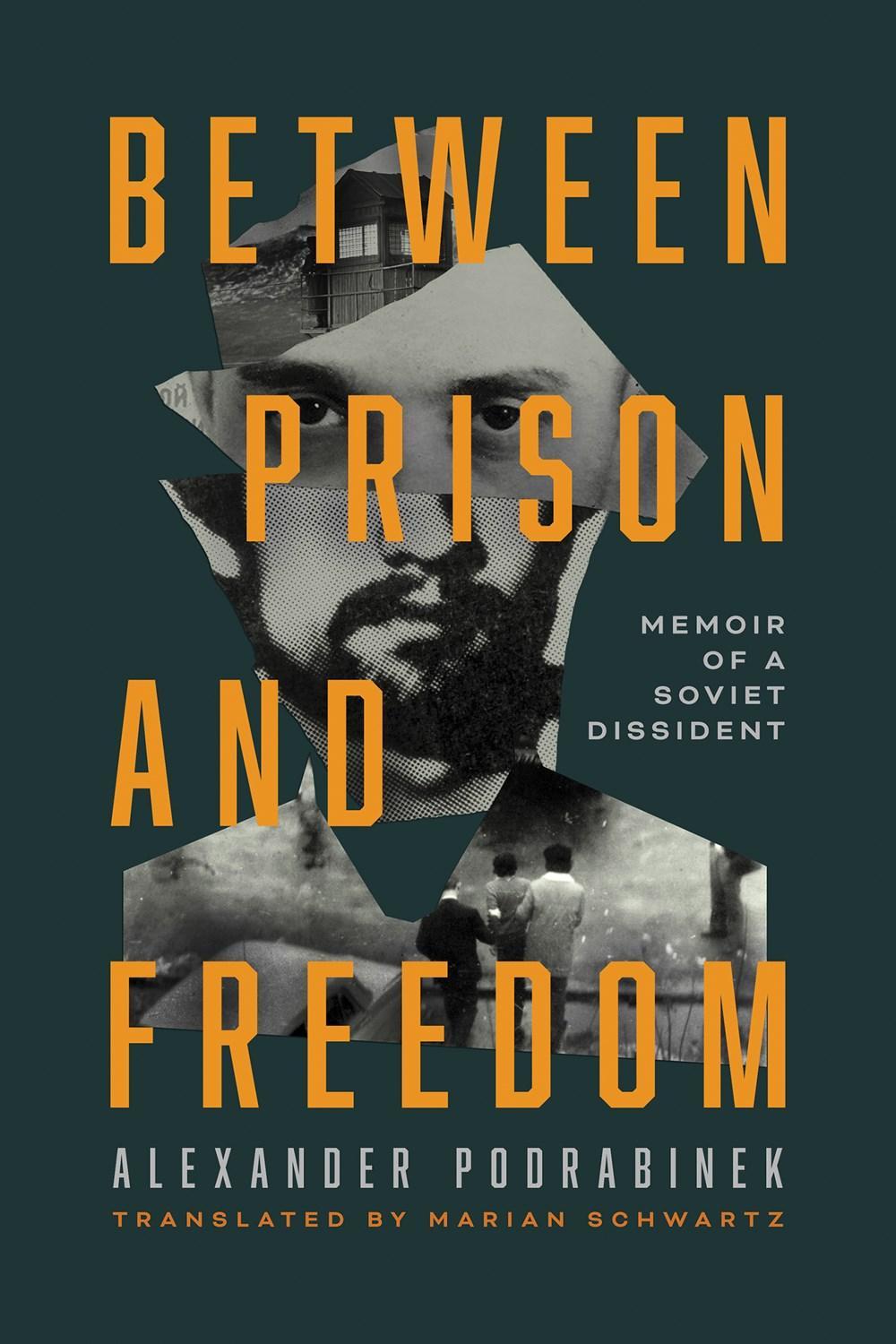
9780268209650
Alexander Podrabinek, Marian Schwartz
Summary
This thrilling memoir documents the early life of Russian journalist and human rights activist Alexander Podrabinek as he and other dissidents fearlessly fought against the Soviet Union.
Between Prison and Freedom chronicles Alexander Podrabinek’s deeply personal recollections of his early life fearlessly opposing the injustices of the Soviet Union. He vividly describes his turbulent journey from silently protesting at Pushkin Square as a teenager to his exile in a brutal prison camp for publishing Punitive Medicine Between Prison and Freedom is a powerful tribute to the Russian dissidents, desperately loyal to their country and to each other, as they fought for freedom and justice, all while cunningly evading the KGB’s nearly successful efforts to break—or kill—them.
Through his personal experiences, the dissident reality unfolds as an onslaught of surveillance and false accusations, corrective labor camps and exile, and a consistent disregard for basic human freedoms. In this captivating story about standing against tyranny, Podrabinek captures the spirit of the dissident movement, the painful intersections between personal and political in a dissident’s life, and the solidarity that kept the resistance moving forward.
Contributor Bio
Alexander Podrabinek is a Russian journalist, dissident, human rights activist, and commentator He is the author of Punitive Medicine, which details the Soviet Union’s use of psychiatric hospitals against political prisoners. He remains an active writer and commentator covering Russian political and social affairs.
Marian Schwartz is a prizewinning translator of Russian fiction and nonfiction, including works by Nina Berberova, Leo Tolstoy, Mikhail Shishkin, and Aleksandr Solzhenitsyn.
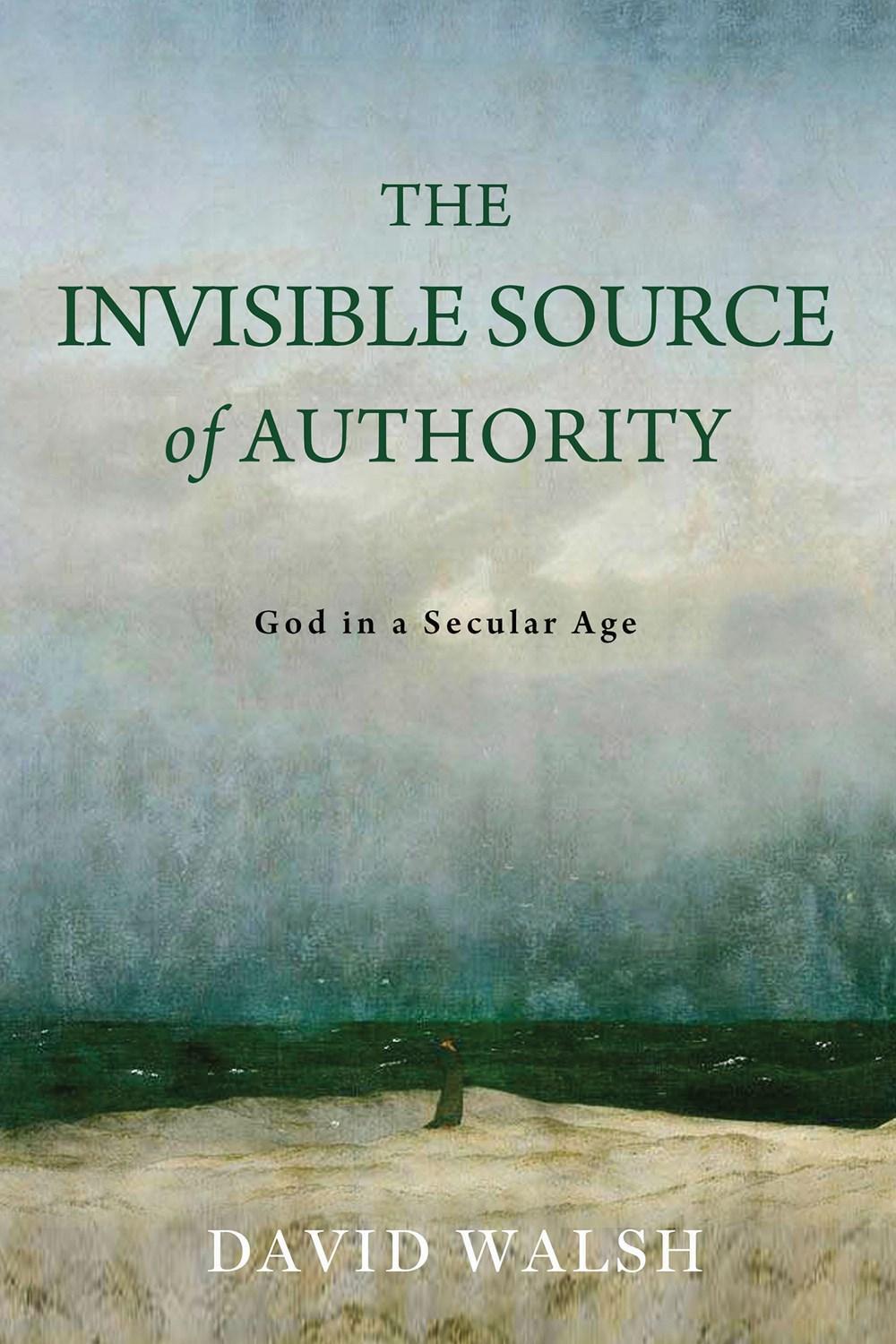
9780268209575
Pub Date: 7/15/25
$38.00 USD
Paperback
188 Pages
Philosophy / Ethics & Moral
Philosophy
Series: The Beginning and the Beyond of Politics
9 in H | 6 in W
David Walsh
Summary
The Invisible Source of Authority is a philosophical meditation on the secular age and challenges the notion that the secular can be understood without reference to God.
How does one reject God while denying belief? This is the central paradox of our secular age, where efforts to erase God only affirm his presence. In The Invisible Source of Authority, David Walsh examines this paradox and argues that a secular world actually reveals God more clearly, rather than bringing about what has been called the death of God. Unlike many critics of modernity, Walsh argues that secularism is not inhospitable to authentic religious faith and cannot be understood without reference to God.
Drawing on the writings of early modern thinkers like Montaigne, Descartes, and Grotius, Walsh asserts that God’s absence from the secular world is testimony to God’s transcendence. Because the secular is always that which has withdrawn from serving God, Walsh suggests that this presupposition proves that God remains indispensable to the self-understanding of secular society. The Invisible Source of Authority seeks to remind us that, despite his seeming absence, the transcendent God remains an essential presence.
Contributor Bio
David Walsh is professor of politics at the Catholic University of America. He is the author and editor of a number of books, including The Priority of the Person and The Growth of the Liberal Soul.
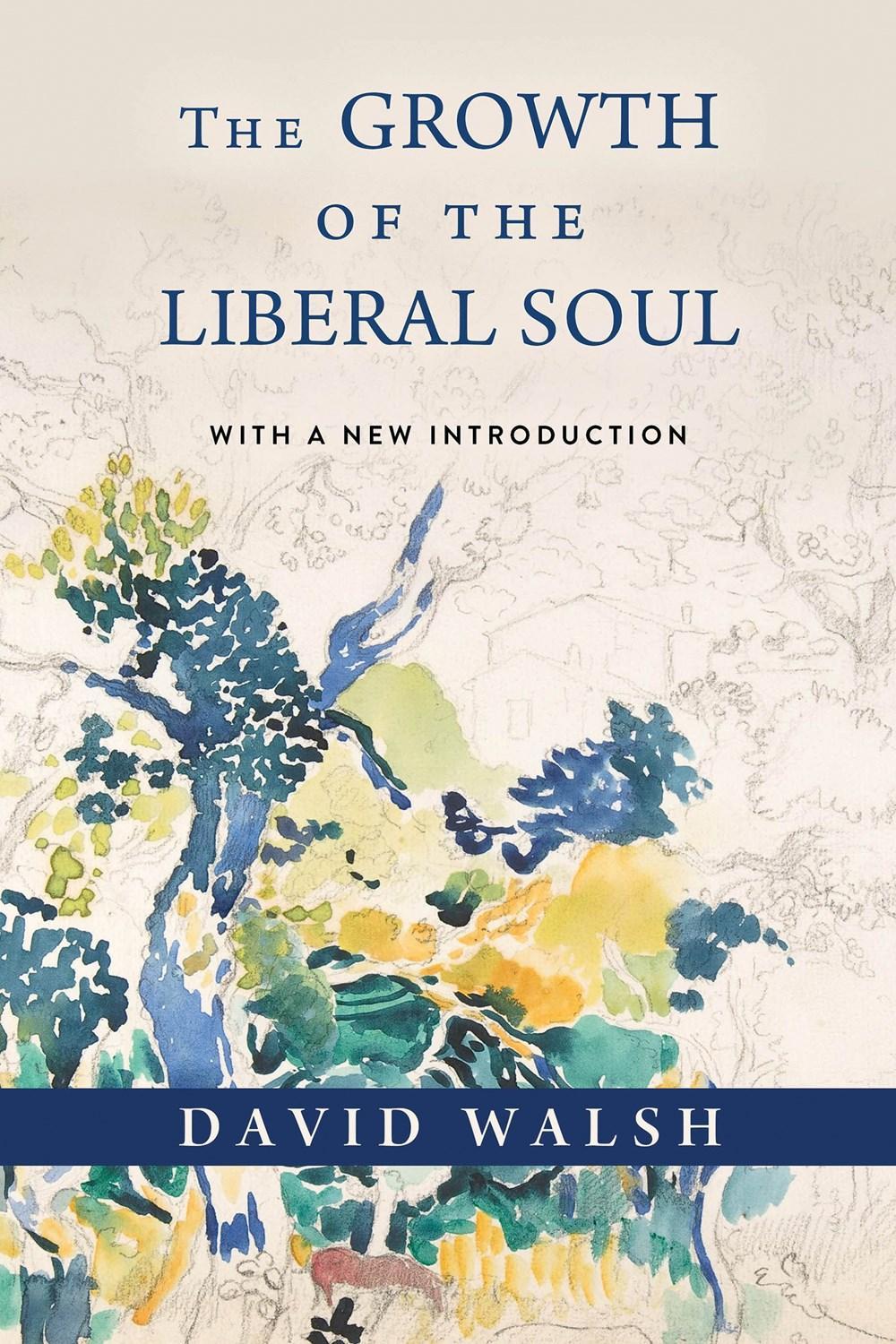
9780268209612
The Growth of the Liberal Soul (with a new Introduction)
David
Summary
In The Growth of the Liberal Soul, David Walsh provides a dazzling defense of liberalism by confronting the core difficulty of the liberal democratic tradition in explaining and justifying itself.
David Walsh’s groundbreaking work addresses a pivotal crisis in liberal democratic self-understanding, as many leading thinkers abandoned the search for a foundation in human nature or moral truth. Without a firm footing, proponents of liberalism could not explain its initial extraordinary success or the recent seeming unraveling of its own moral code. Instead, Walsh argues that Christianity and philosophy formed the original foundation for liberalism, and that only the ideals of service, self-responsibility, and the sacredness of each person can provide the grounding that liberalism desperately needs.
As Walsh seamlessly weaves together the ideas of Hobbes, Locke, Kant, Hegel, Tocqueville, Nietzsche, and other leading thinkers, The Growth of the Liberal Soul crafts a compelling defense of liberalism and issues an inspiring call to see liberty not as an invitation to universal egoism, but as the pursuit of the greatest justice, freedom, and fulfillment for all members of the community.
David Walsh is professor of politics at the Catholic University of America. He is the author of The Priority of the Person and Politics of the Person as the Politics of Being.
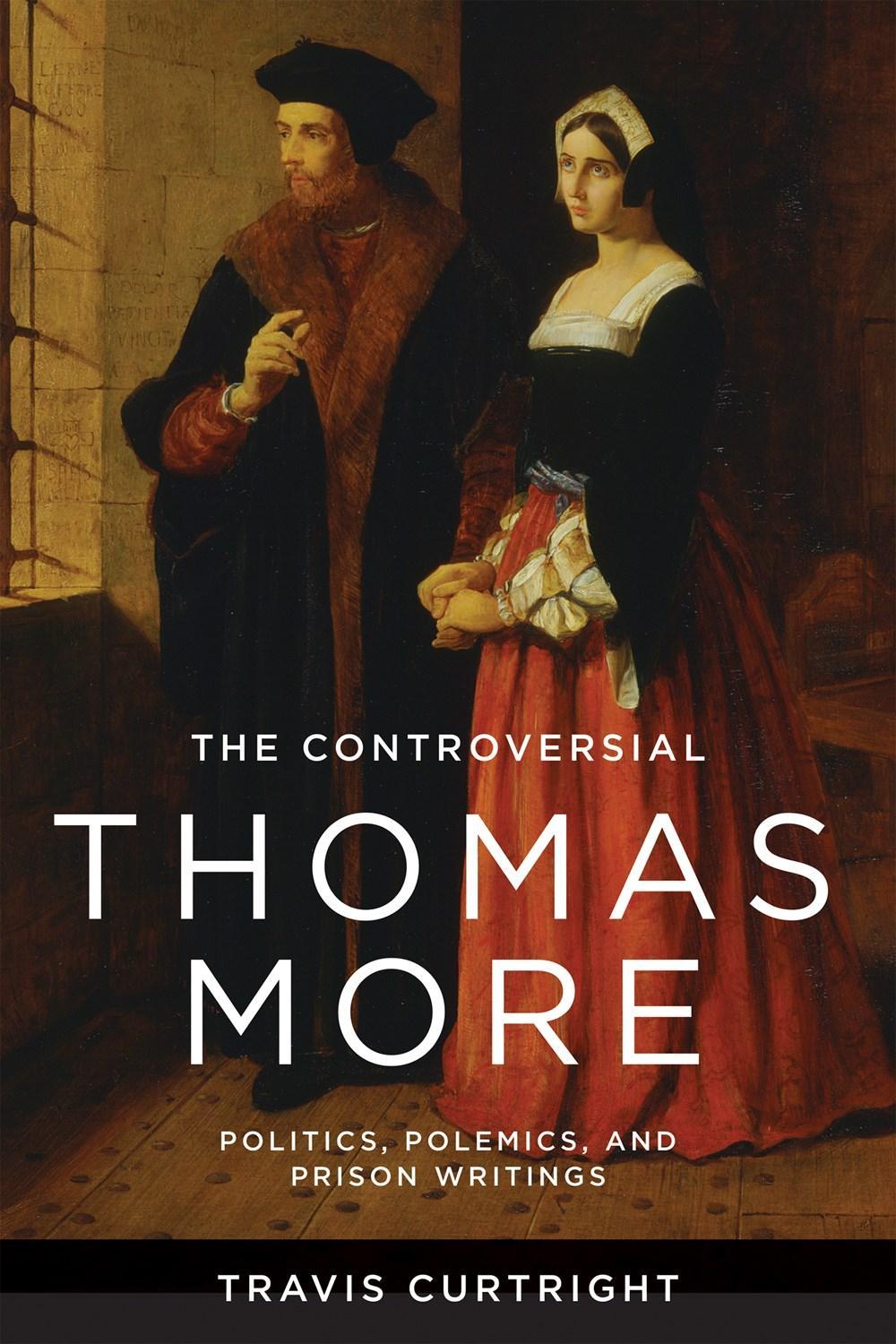
9780268209155
Pub Date: 4/15/25
$38.00
260 Pages Political Science / Religion,
9 in H | 6 in W
Travis Curtright
The Controversial Thomas More offers an original and critical intervention on the writings of Thomas More and his opposition to King Henry VIII.
Thomas More is known for refusing the oath of succession and remaining silent about his reasons for doing so. His prison literature, however, tells a different story. Under the threat of execution, More waged an astonishingly prolific and often coded writing campaign in rebuke of King Henry VIII’s claim to be supreme head of the Church in England. Travis Curtright’s groundbreaking book shows how William Rastell, More’s nephew and printer, fashioned a historically inaccurate depiction of More, one that persists to this day. Rastell’s edition of More’s works gave the false impression that More stopped writing polemical literature in 1533 and, instead, turned his mind exclusively toward heaven and away from politics. In contrast, Curtright proves that More’s prison writings are not just devotional literature but also a powerful defense of a united Church under the pope, reestablishing More as a key political and religious thinker, defiant of King Henry VIII.
Most scholars restrict More’s political thought to his Utopia, but The Controversial Thomas More shows how his prison writings best reveal his ideas of political unity and authority, and is a reconsideration of More’s legacy and place in the history of the Henrician Reformation.
Contributor Bio
Travis Curtright is professor of humanities and literature at Ave Maria University. He is the author or editor of four previous books, including The One Thomas More, and is the editor-in-chief of Moreana: Thomas More and Renaissance Studies.
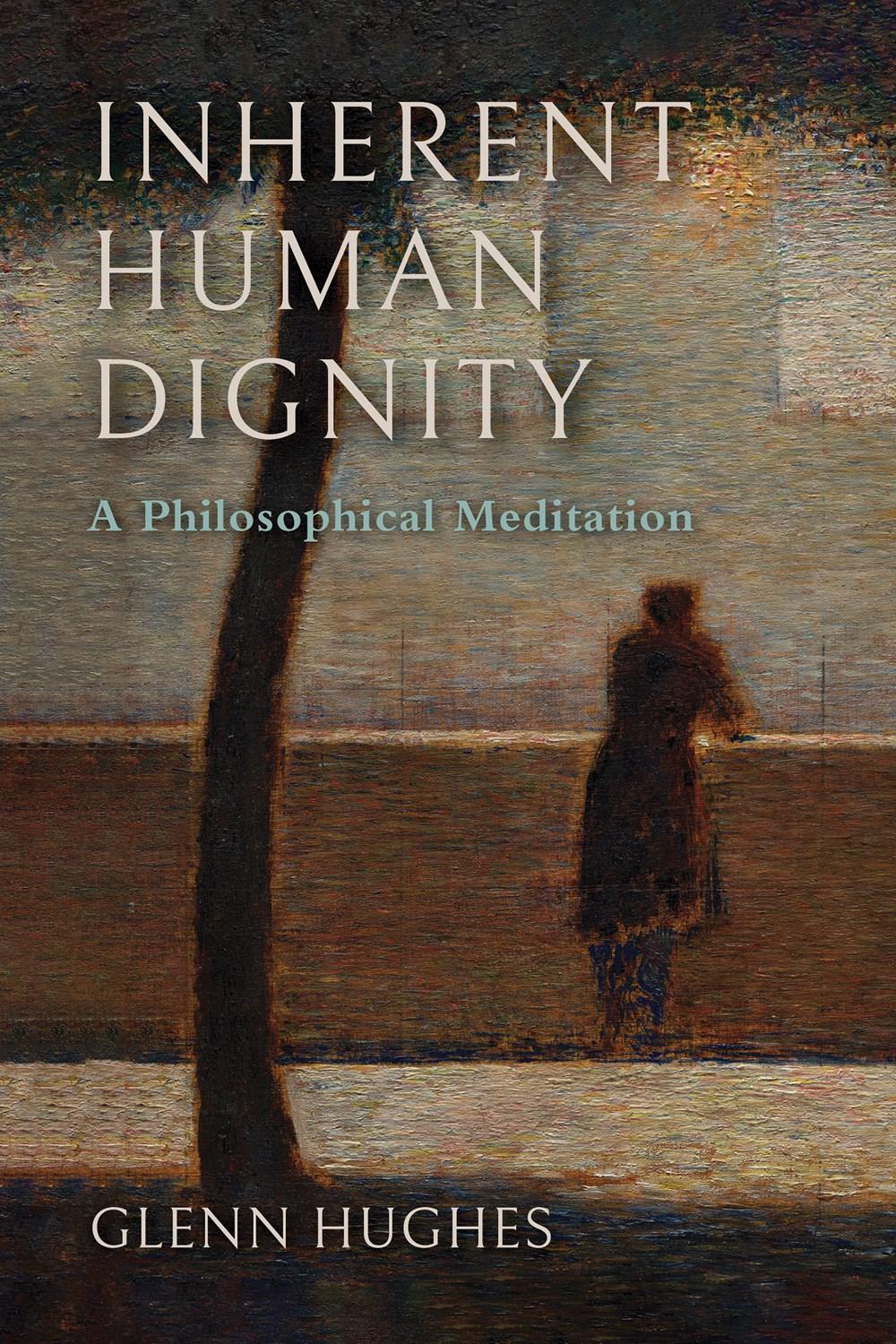
A Philosophical Meditation
Glenn Hughes
Summary
Inherent Human Dignity explores the philosophical and existential foundations of what it means to be human.
Inherent Human Dignity is a philosophical meditation and defense of the value of being human. Glenn Hughes explores the existential foundations of these concepts in this structured and accessible study about the experience of being human.
Hughes locates human dignity within the philosophical, political, and historical horizons of human culture. Guided by Eric Voegelin and Bernard Lonergan, literary and artistic examples, key moments of our modern era, and his own scholarship on the religions of the world, Hughes unfolds and accounts for human dignity’s place in our world. He additionally utilizes key moments of our modern era to frame our understanding of human dignity, paying close attention to the Universal Declaration of Human Rights that was created by the United Nations following World War II. Ultimately, Hughes’s meditation is concerned both with exploring the maximally differentiated set of insights into the meaning of being human and with articulating why the discovery of the inherent equal dignity of every person—without exception—is a profound and unique achievement.
Glenn Hughes (1951–2024) was professor emeritus at St. Mary’s University. He was the inaugural holder of the St. Mary’s Chair in Catholic Philosophy. He was the author of several books including From Dickinson to Dylan: Visions of Transcendence in Modernist Literature and Transcendence and History: The Search for Ultimacy from Ancient Societies to Postmodernity
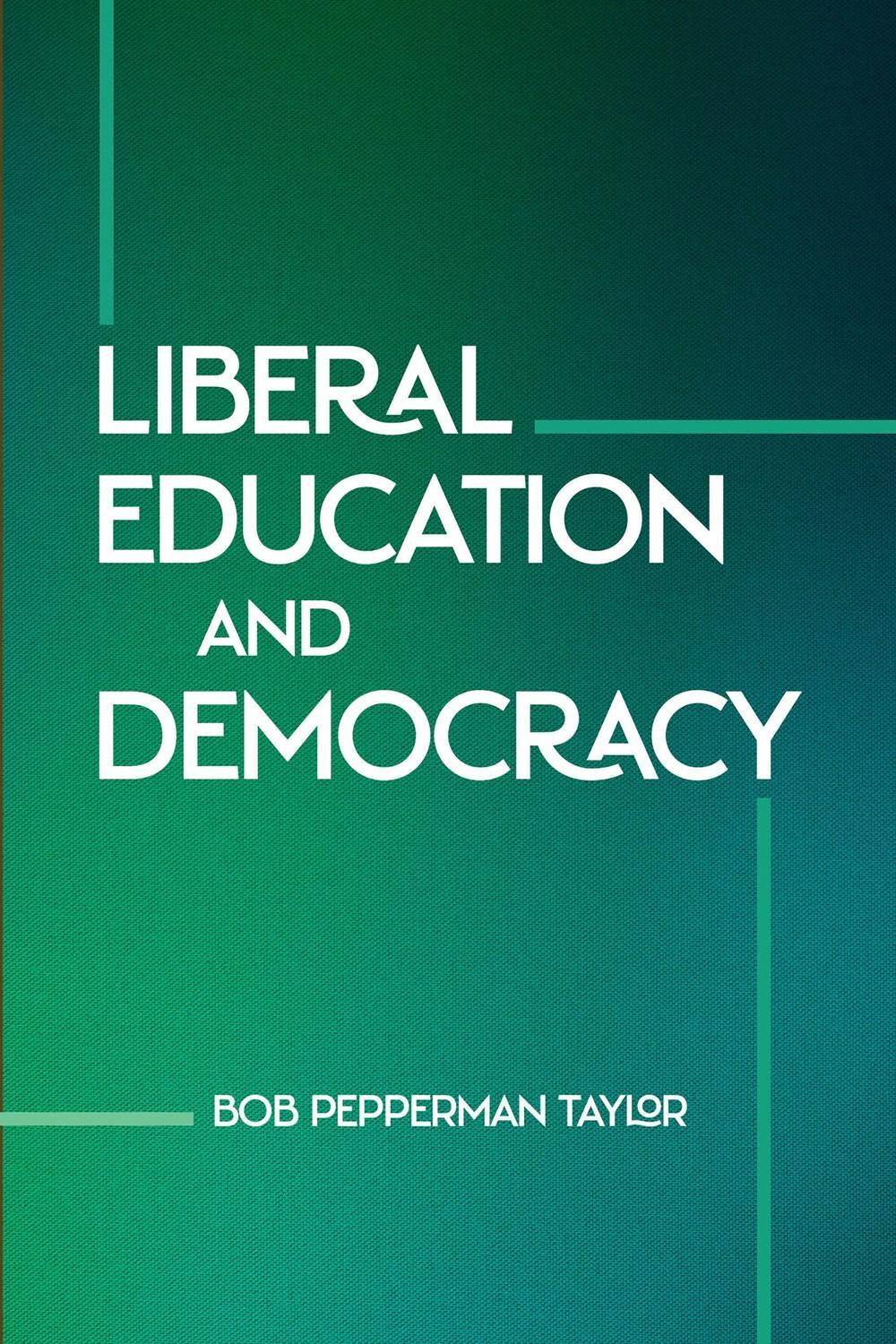
9780268209551
$40.00
208
9
Bob Pepperman Taylor
Summary
Liberal Education and Democracy addresses three vital arguments for liberal education and its integral relationship to democracy.
Liberal education is currently under attack as both politically subversive and economically impractical. In Liberal Education and Democracy, Bob Pepperman Taylor evaluates both the defenses that have been offered for liberal education and the complex relationship between liberal education and democracy. He offers a compelling case for maintaining a strong commitment to this form of education as an essential good for all citizens.
His three primary arguments for liberal education are that it prepares students to be useful contributors to the economy, that it prepares citizens to be thoughtful and responsible, and that it can stimulate students to experience the delight of intellectual exploration and understanding. Taylor moves through each of these arguments and concludes that the seemingly least practical of them may in fact be the most powerful. He gives an insightful glimpse into the current democratic climate and through thorough examination argues that democracies need liberal education as much as liberal learning requires the freedom of democratic societies.
Contributor Bio
Bob Pepperman Taylor is the Elliott A. Brown Green and Gold Professor of Law, Politics, and Political Behavior at the University of Vermont. He is the author of Lessons from "Walden": Thoreau and the Crisis of American Democracy, which was named the winner of the American Political Science Association section award for the best book of 2020 in American political thought.
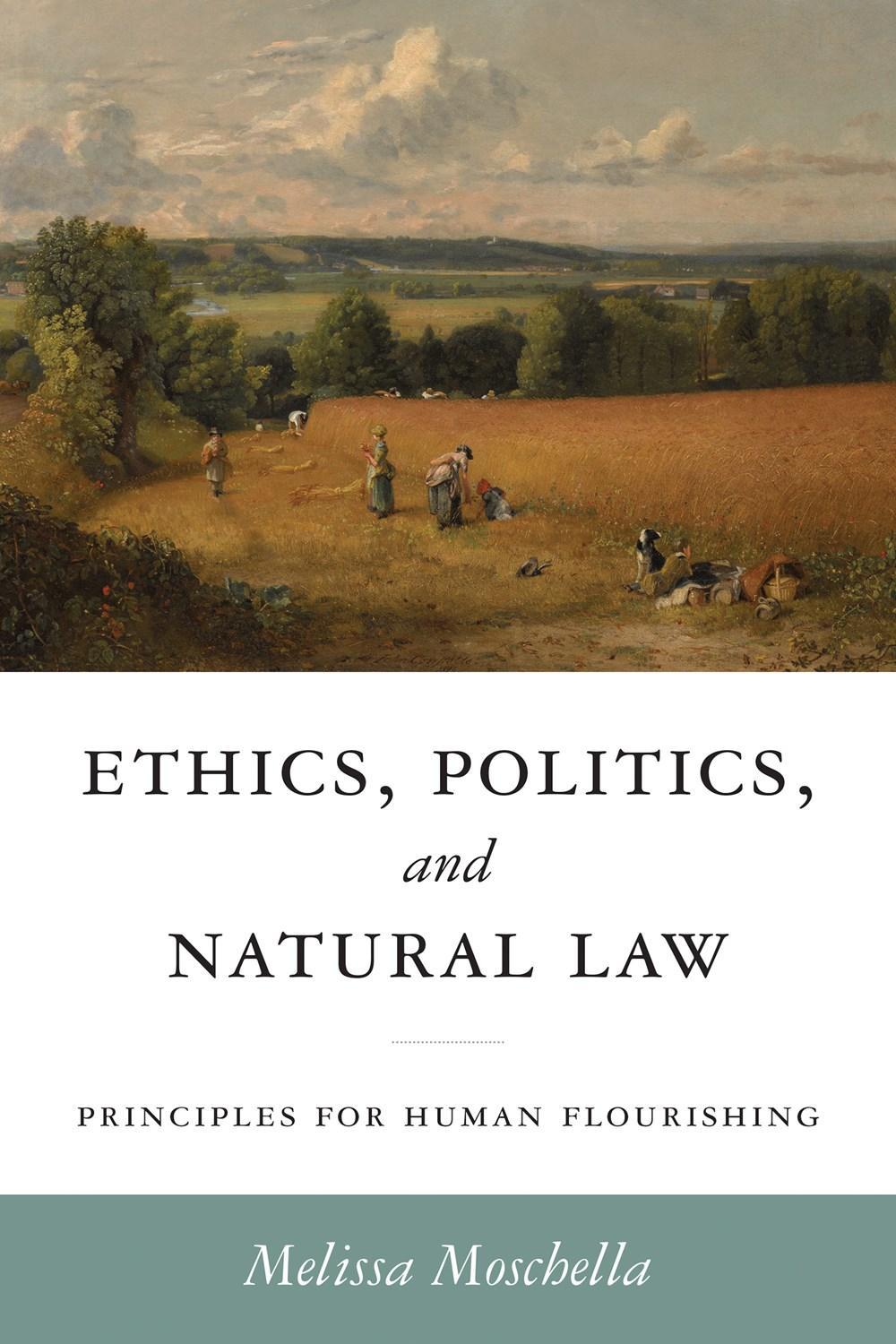
Melissa Moschella
Summary
A rigorous but accessible overview of the new natural law account of ethics and political philosophy.
The foundational principles of ethics and politics are principles that guide us to respect and promote human flourishing. In Ethics, Politics, and Natural Law Melissa Moschella provides an accessible explanation and development of the new natural law account of these principles while clarifying common misconceptions.
As a commonsense ethical theory, natural law grounds ethics in the fundamental dimensions of human flourishing. Moschella lays out the basic principles of natural law, their relationship to the virtues, and their social and political implications. Highlighting the importance of communities for flourishing, Moschella explains how this should shape our understanding of justice and the common good, and shows how natural law principles support limited government and civil liberties. She also considers the relationship between morality and God, and how natural law relates to Christian revelation. This fresh and compelling account of new natural law is the go-to resource to understand this important and influential theory.
Contributor Bio
Melissa Moschella is a professor of the practice in philosophy at the University of Notre Dame’s McGrath Institute for Church Life. She is the author of To Whom Do Children Belong? Parental Rights, Civic Education, and Children’s Autonomy
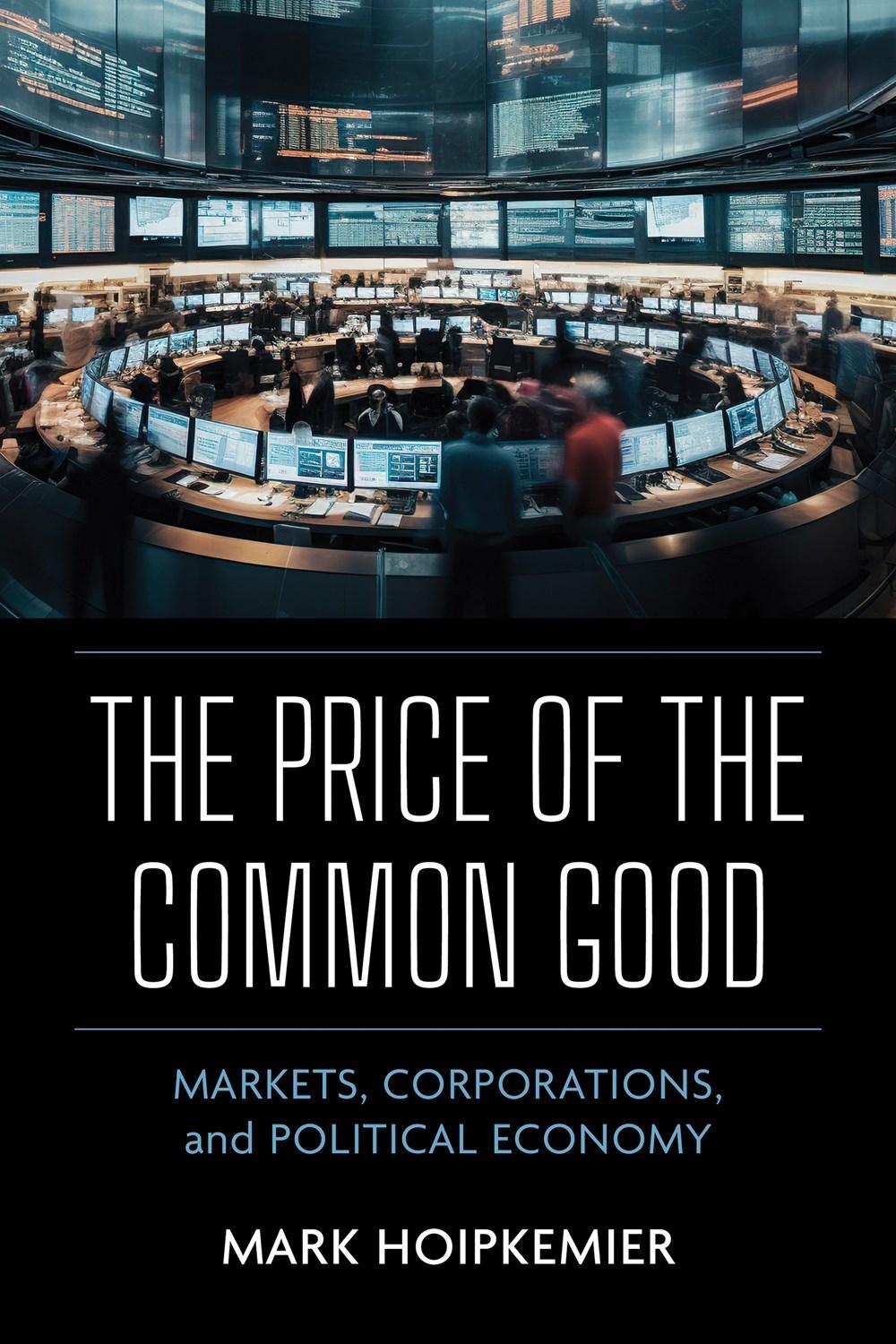
9780268208974 Pub Date: 3/15/25
$65.00
302 Pages 3 tables
9 in H | 6 in W
Mark Hoipkemier
Summary
The Price of the Common Good offers a fresh perspective on economic prosperity and solidarity that emphasizes communal interests.
There is more at stake in market economies than self-interest or making money. Lying just below the surface, there are shared projects answering the deepest political questions of how we live together and who we become. The Price of the Common Good exposes the inadequacies of the prevailing individualistic vision of markets and firms and develops an incisive new framework for analyzing the shared goods that are always in play. To get a purchase on the full moral architecture of markets and firms, Mark Hoipkemier recovers the classical idiom of the “common good” for today’s economy.
Hoipkemier argues not that economic institutions should ideally embody communal purposes, but that they already do. Engaging with leading political economists, he shows the centrality of common goods in real-world institutions with examples such as Uber, corporate law, and globalized auto manufacturing. The Price of the Common Good offers both the defenders and critics of the market a richer way of deliberating about shared concerns in markets and firms as they are and as they should be.
Contributor Bio
Mark Hoipkemier is an assistant professor in the Program on Politics, Philosophy, and Economics at the University of Navarra.
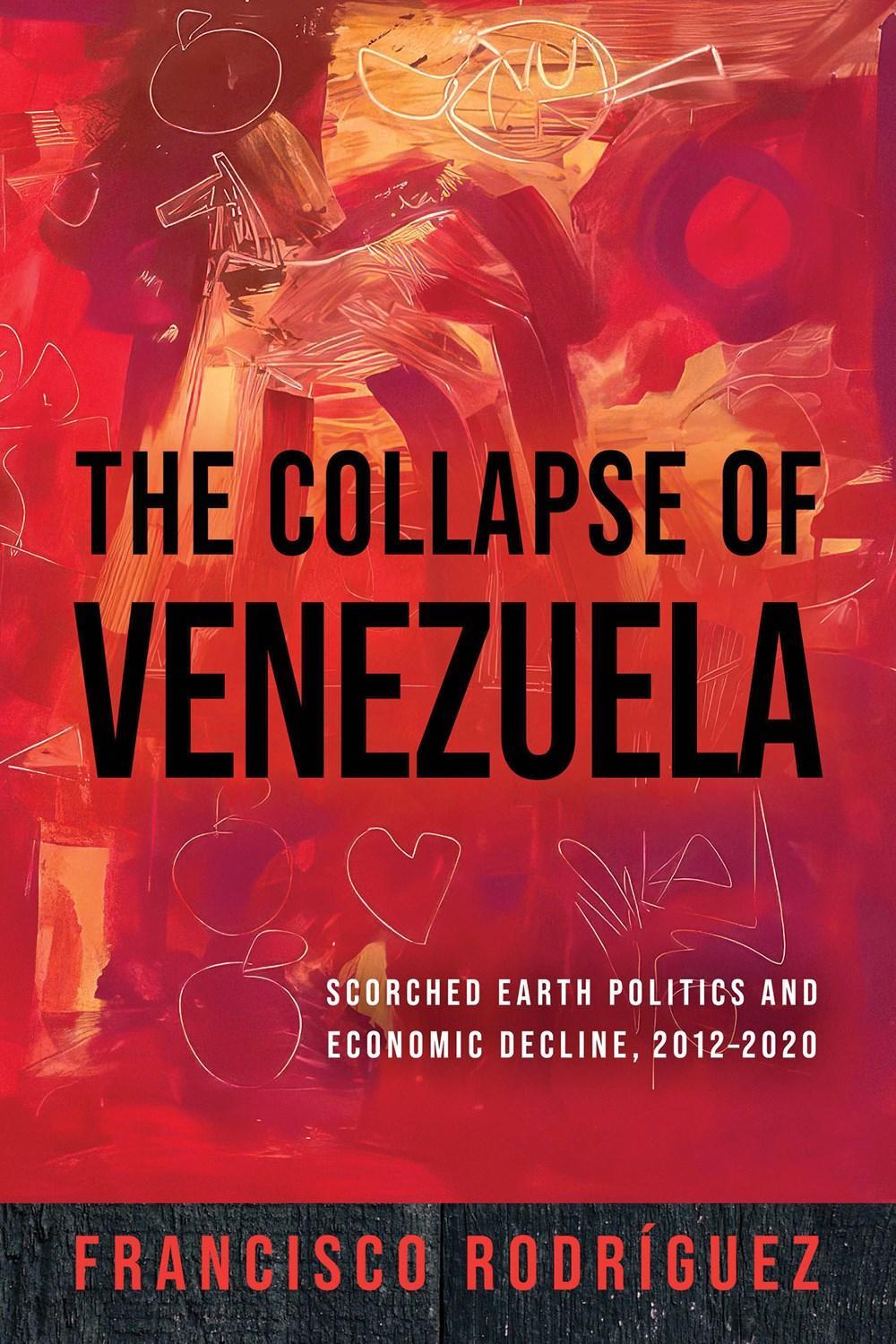
Scorched Earth Politics and Economic Decline, 2012–2020
Francisco Rodríguez
Summary
The Collapse of Venezuela documents Venezuela’s economic implosion as politicians adopted strategies that severely harmed the economy in their struggle for power.
Between 2012 and 2020, Venezuela suffered the largest economic contraction ever documented outside of wartime. This collapse was caused not just by the failure of an economic model but also the deeper failure of its political system to manage the conflicts inherent to a polarized society. The Collapse of Venezuela argues that when the stakes of power are high, politicians have an incentive to adopt political strategies that directly harm the economy. Author Francisco Rodríguez describes these scorched earth strategies and shows how politicians used these methods to target the Venezuelan economy in their fight for power. Ultimately, the conflicting sides have trapped the economy in a catastrophic stalemate that has destroyed the country’s living standards and turned the economy into a political battlefield.
By charting Venezuela’s experience with scorched earth politics, Rodríguez reveals an essential cautionary tale for other democracies around the globe.
Contributor Bio
Francisco Rodríguez is the Rice Family Professor of the Practice of International and Public Affairs at the University of Denver’s Josef Korbel School of International Studies. He is the co-editor of Venezuela before Chávez: Anatomy of an Economic Collapse.
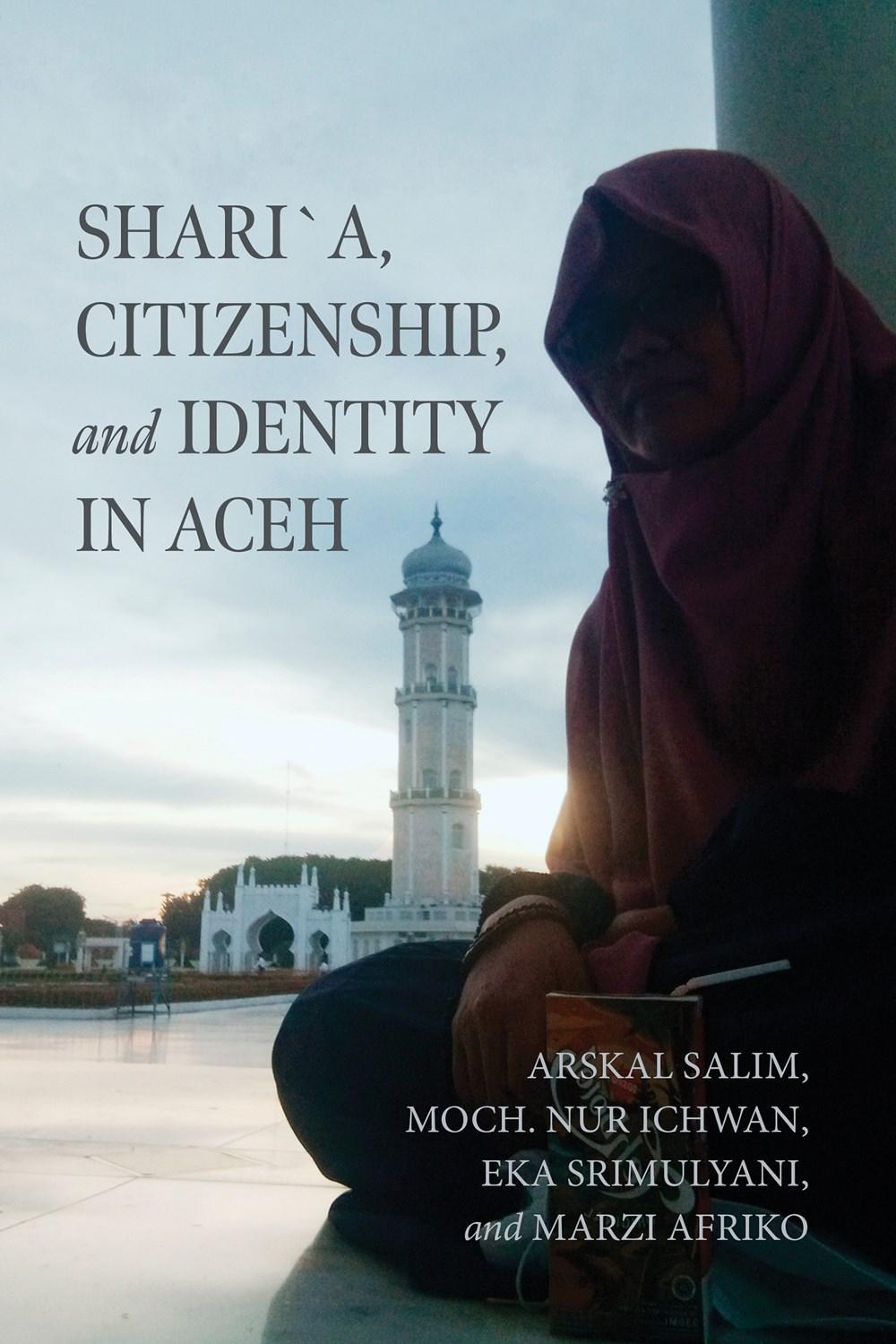
9780268209315
Pub Date: 5/15/25
$35.00 USD
Paperback
254 Pages
2 b&w illustrations, 2 maps, 6 tables
Political Science / World Series: Contending Modernities
9 in H | 6 in W
Arskal Salim, Moch. Nur Ichwan, Eka Srimulyani, Marzi Afriko
Summary
Shari`a, Citizenship, and identity in Aceh presents both an ethnographic and a sociohistorical account of identity making among both the Muslim majority population and different minority groups in Aceh, Indonesia.
Diverging from previous studies on majority-minority group relations in a predominantly Muslim country that tend to engage solely with one group’s experiences, Shari`a, Citizenship, and Identity in Aceh argues that the majority and minority groups in Aceh, Indonesia, have interactively and mutually created conceptions of identity and recognition that have significant implications on the experience of citizenship in the region. The authors provide not only a narrative of majority-minority group encounters in a variety of issues, but also a wideranging account of struggles from both the Muslim majority and non-Muslim minority groups for recognition of their own identity in the public space. To what extent do minority groups feel that they belong to Aceh’s communal identity, which is mostly Islamic? And what kind of citizenship is in place when minorities feel marginalized living under Aceh’s Islamic rules? Shari`a, Citizenship, and Identity in Aceh debunks the concept of citizenship by way of deploying the concept of the politics of recognition against the politics of the dominant culture theory.
Contributor Bio
Arskal Salim is professor of politics of Islamic law at Syarif Hidayatullah State Islamic University Jakarta, Indonesia.
Moch. Nur Ichwan is professor of Islamic social and political sciences at Sunan Kalijaga State Islamic University, Yogyakarta.
Eka Srimulyani is professor of sociology at Ar-Raniry State Islamic University in Banda Aceh, Indonesia.
Marzi Afriko is a research assistant specializing in studies of the provincial and district governments of Aceh, Indonesia.
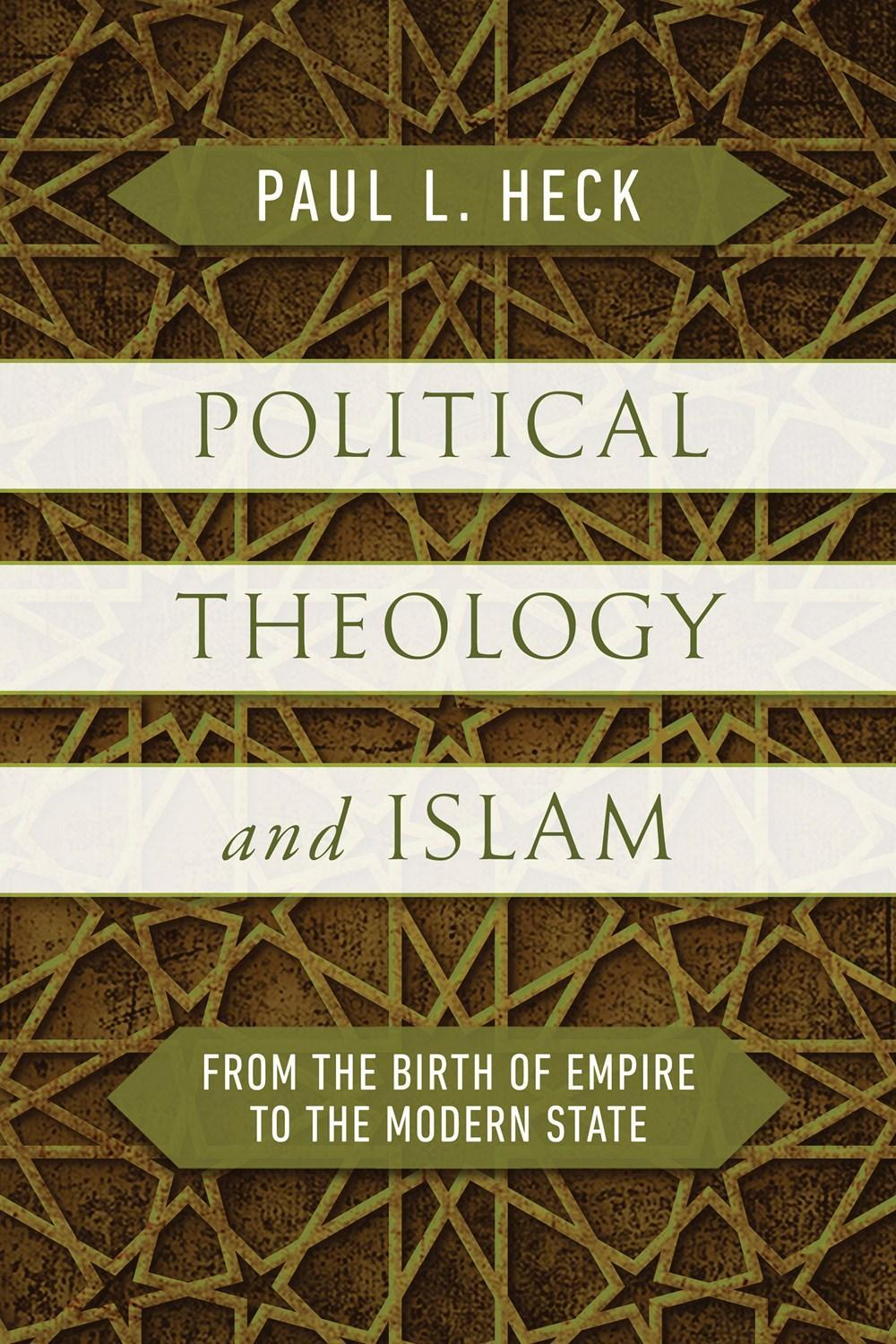
From the Birth of Empire to the Modern State
Paul L. Heck
Summary
Paul L. Heck’s Political Theology and Islam offers a sophisticated and comprehensive analysis of sovereignty in Islamic society, beginning with the origins of Islam and extending to the present.
This wide-ranging study sets out to answer an unassumingly tricky question: What is politics in Islam? Paul L. Heck’s answer takes the form of a close analysis of sovereignty across Islamic history, approaching this concept from the perspective of political theology. As he illustrates, the history of politics in Islam is best understood as an ongoing struggle for a moral order between those who occupy positions of rulership and religious voices that communicate the ethics of Islam and educate the public in their religious and moral devotions. In this sense, sovereignty in Islam is split between ruling powers and pious communities, whose interactions range from close cooperation to outright competition. Heck shows that it is precisely through these interactions that Islamic conceptions of sovereignty are constructed and negotiated.
Political Theology and Islam’s first section spells out the concepts and methods for the study of politics in Islam as a struggle for a moral order, one not only involving varied claims to sovereignty but also a general determination to realize the righteousness of Islam that stands at the heart of the message that the Prophet Muhammad conveyed to his society in seventh-century Arabia. The following sections demonstrate, through examples from both the past and today’s worldwide Muslim community, the diverse ways in which the umma, the community of Muslims, has struggled for a moral order that recalls its prophetic message.
Contributor Bio
Paul L. Heck is professor of Islamic studies at Georgetown University and founding director of the Study of Religions Across Civilizations (SORAC) project. He is author of Skepticism in Classical Islam: Moments of Confusion (2013) and Common Ground: Islam, Christianity, and Religious Pluralism (2009).
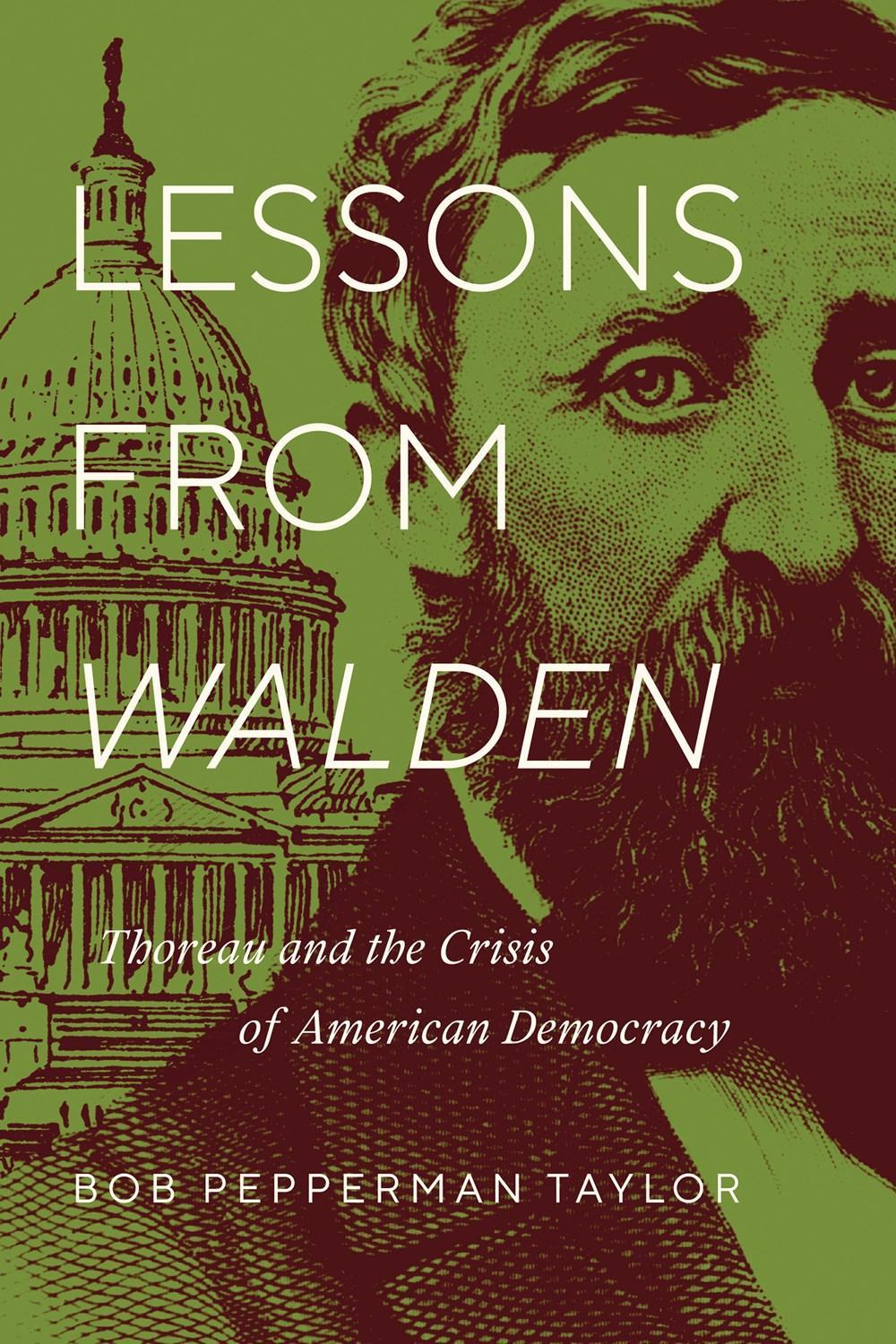
9780268107345
Pub Date: 7/15/25
$30.00
258
9
Bob Pepperman Taylor
Summary
Original and passionate, Lessons from Walden presents a wide-ranging inquiry into the nature and implications in the works of Henry David Thoreau.
Henry David Thoreau’s works are a backbone of American political philosophy, but how do his ideas translate into the tumultuous modern political landscape? Bob Pepperman Taylor closely examines Walden and Civil Disobedience, focusing on the philosophical questions Thoreau raises. He considers simplicity and the ethics of “voluntary poverty,” examines the role conscience plays in democratic policies, and the truth of what “nature” means, and what, if anything, we can learn from it today. By drawing on a wide range of perspectives—from historians, philosophers, and popular media—Taylor breathes new life into Thoreau’s work and shows how it is still alive for us today. He allows all sides to have their say, even as he persistently steers the discussion back to a nuanced reading of Thoreau’s actual position.
With a tone of friendly urgency, this interdisciplinary tour de force intersects American literature, environmental ethics, and political theory to address the concerns facing the current political landscape and the future of democracy.
Contributor Bio
Bob Pepperman Taylor is the Elliott A. Brown Green and Gold Professor of Law, Politics, and Political Behavior at the University of Vermont. He is the author and editor of a number of books, including Liberal Education and Democracy
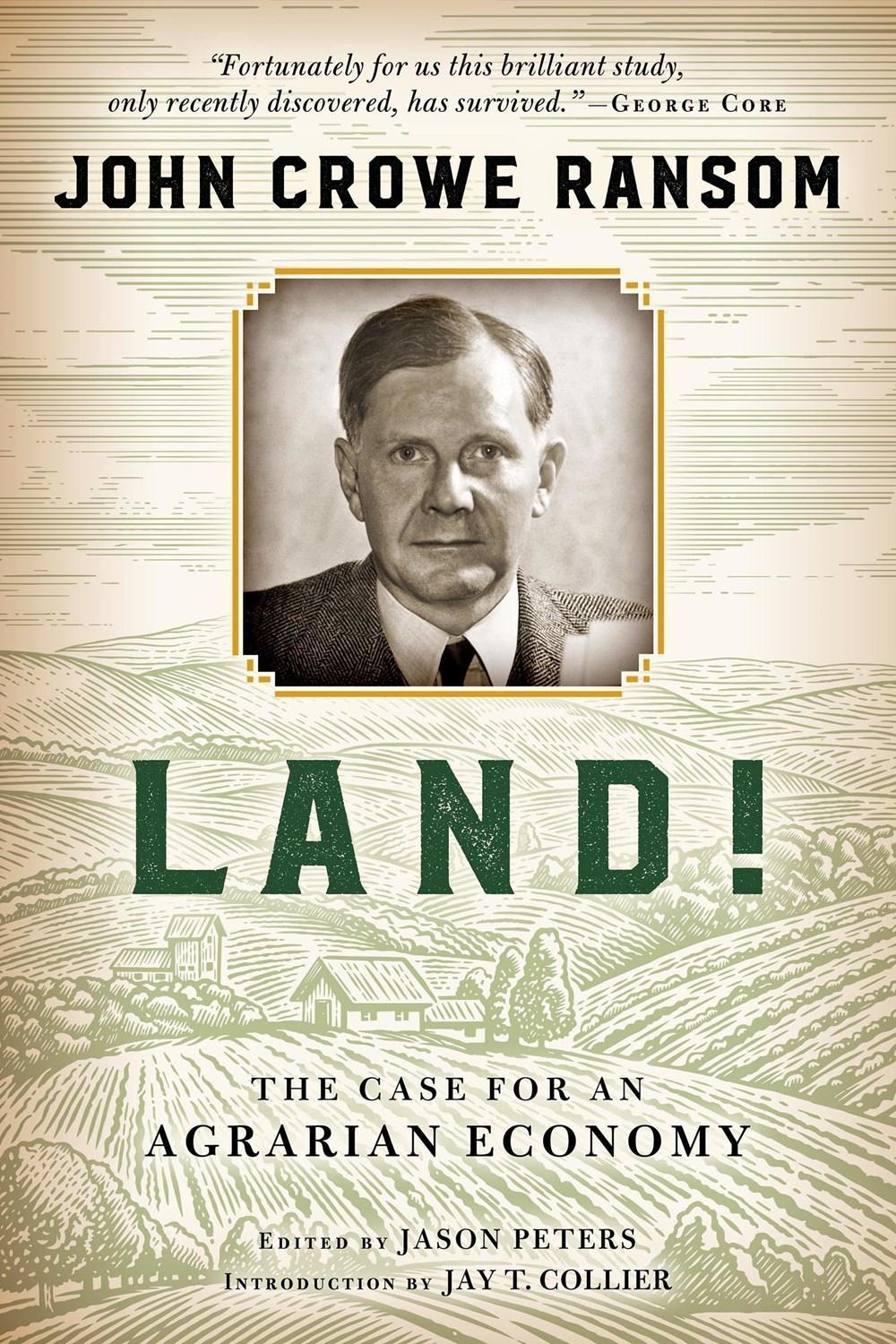
The Case for an Agrarian Economy
John Crowe Ransom, Jason Peters
Summary
Previously unpublished, Land! unites John Crowe Ransom’s poetic sensibilities with his argument for an agrarian economy as an alternative to capitalism.
In Land!, the accomplished poet and scholar John Crowe Ransom, leading member of the Southern Agrarian movement, examines economics at the height of the Great Depression. Long thought to have been burned by its author after he failed to find a publisher, Land! is politically charged with Ransom’s aesthetic beliefs about literature and his agrarian interpretation of economics.
After the publication of the Southern Agrarian movement’s manifesto I’ll Take My Stand in 1930, Ransom, who provided the book’s Statement of Principles in addition to its lead essay, became convinced that the book had not adequately proposed an economic alternative to Northern industrialism, which had nearly obliterated the Southern way of life. Land! was Ransom’s attempt to fill this gap. In it he presents the weaknesses inherent in capitalism and argues convincingly that socialism is not only an inadequate alternative but inimical to American sensibilities. He proposes instead that agrarianism, which could flourish alongside capitalism, would relieve the problems of unemployment in America due to its wealth of land. This insightful, long-lost piece of American literature and history speaks to today’s socioeconomic times.
Contributor Bio
John Crowe Ransom (1888–1974) was an American poet and critic whose book The New Criticism (1941) provided the name of the influential mid-twentieth-century school of criticism. He taught English at Vanderbilt University and at Kenyon College, where he founded and edited the literary magazine The Kenyon Review He published numerous volumes of poetry, including Selected Poems (1945, 1969), which won a National Book Award.
Jason Peters is professor of English at Hillsdale College.
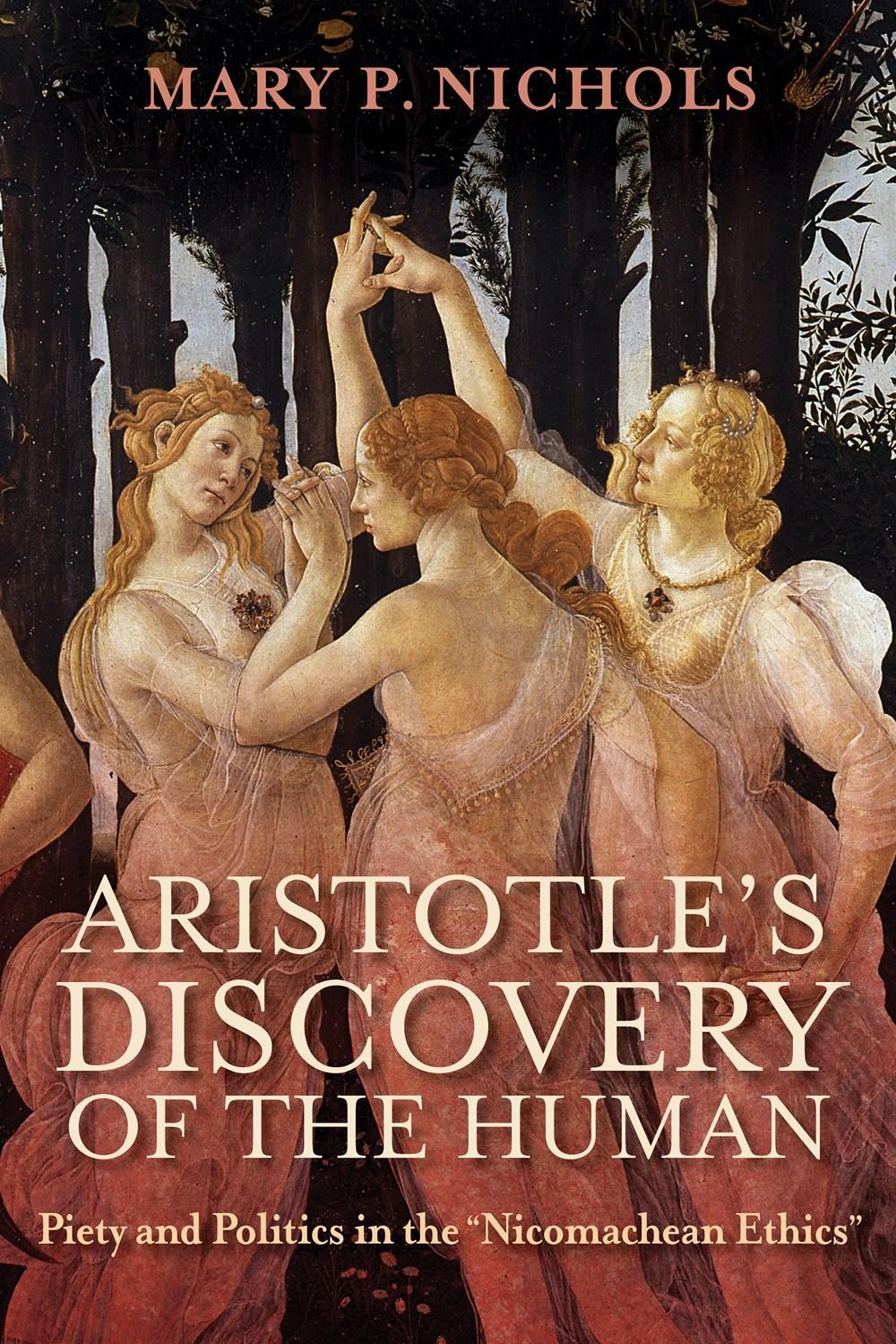
9780268205461
$45.00
356
Mary P. Nichols
Aristotle’s Discovery of the Human offers a fresh, illuminating, and accessible analysis of one of the Western philosophical tradition’s most important texts.
In Aristotle’s Discovery of the Human, noted political theorist Mary P. Nichols explores the ways in which Aristotle brings the gods and the divine into his “philosophizing about human affairs” in his Nicomachean Ethics Her analysis shows that, for Aristotle, both piety and politics are central to a flourishing human life. Aristotle argues that piety provides us not only an awareness of our kinship to the divine, and hence elevates human life, but also an awareness of a divinity that we cannot entirely assimilate or fathom. Piety therefore supports a politics that strives for excellence at the same time that it checks excess through a recognition of human limitation.
Proceeding through each of the ten books of the Ethics, Nichols shows that this prequel to Aristotle’s Politics is as theoretical as it is practical. Its goal of improving political life and educating citizens and statesmen is inseparable from its pursuit of the truth about human beings and their relation to the divine. In the final chapter, which turns to contemporary political debate, Nichols’s suggestion of the possibility of supplementing and deepening liberalism on Aristotelian grounds is supported by the account of human nature, virtue, friendship, and community developed throughout her study of the Ethics.
Contributor Bio
Mary P. Nichols is professor emerita in the Department of Political Science at Baylor University. She is the author of seven books, including Thucydides and the Pursuit of Freedom.
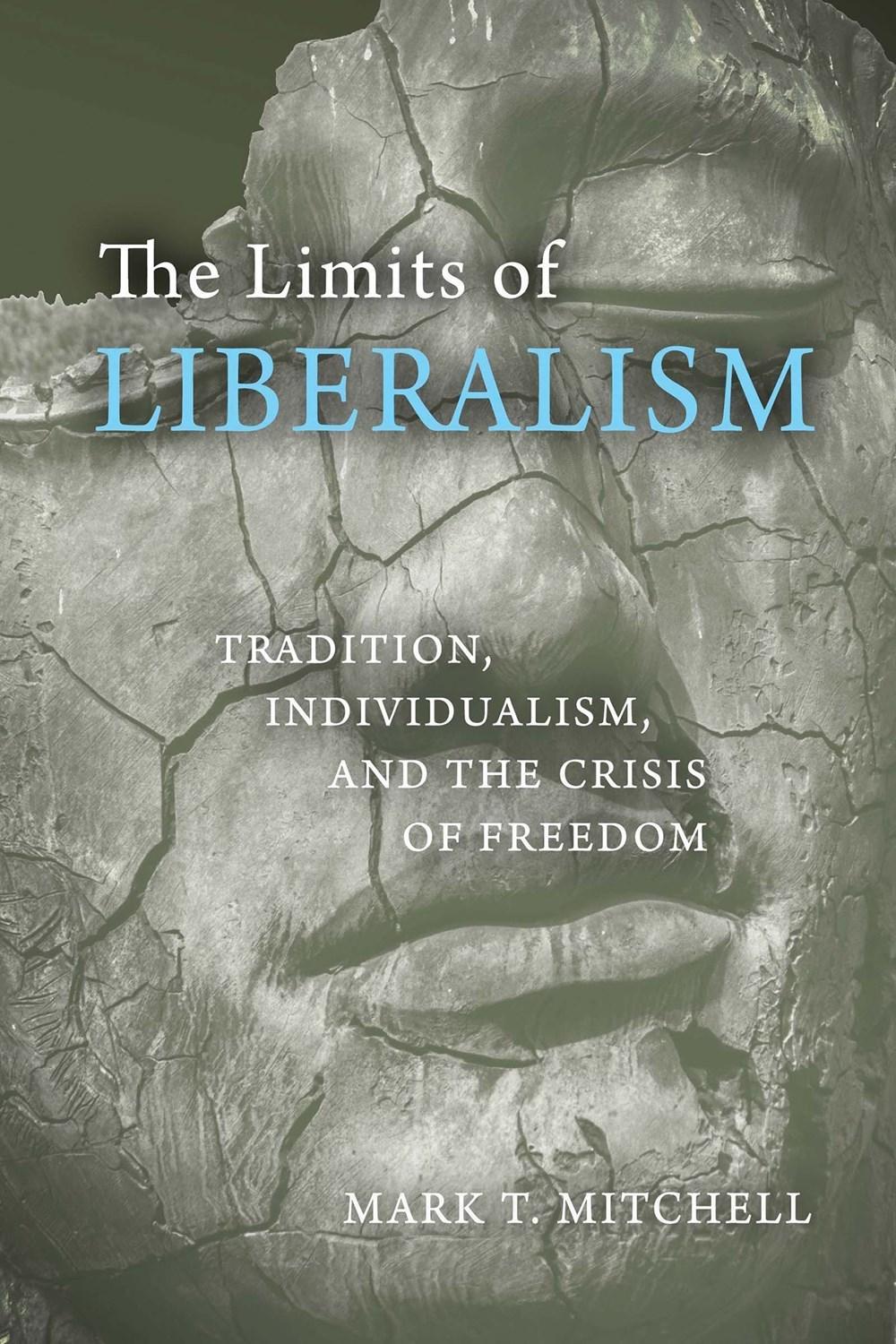
Mark T. Mitchell
Summary
In The Limits of Liberalism, Mark T. Mitchell argues that a rejection of tradition is both philosophically incoherent and politically harmful.
The Limits of Liberalism identifies why most modern thinkers have denied the essential role of tradition and explains how tradition can be restored to its proper place. Mitchell demonstrates that the rejection of tradition as an epistemic necessity has produced a false conception of the human person—the liberal self—which in turn has produced a false conception of freedom. Together, these false conceptions have facilitated both liberal cosmopolitanism and identity politics.
Mitchell uses the philosophies of Michael Oakeshott, Alasdair MacIntyre, and Michael Polanyi to construct a compelling argument for a reconstructed view of tradition and, as a result, a reconstructed view of freedom. The Limits of Liberalism reveals that only by finding an alternative to the liberal self can we escape the incoherencies and pathologies inherent therein.
Contributor Bio
Mark T. Mitchell is the dean of academic affairs at Patrick Henry College and co-founder of Front Porch Republic. He is the author and co-editor of a number of books, including Plutocratic Socialism: The Future of Private Property and the Fate of the Middle Class
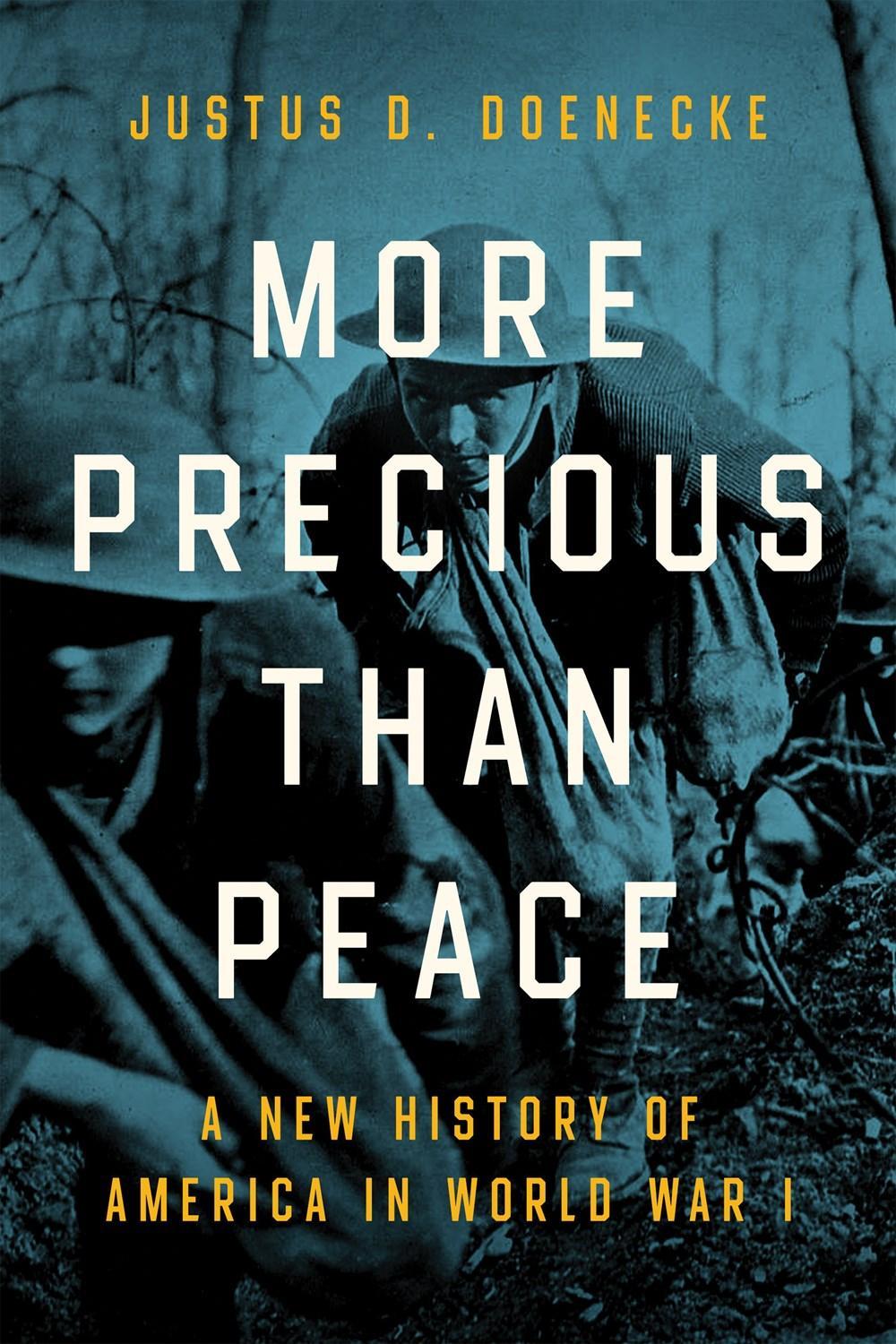
9780268201869
Pub Date: 1/15/26
$30.00
560 Pages
47 b&w illustrations, 4 maps History / Wars & Conflicts
9 in H | 6 in W
NEW IN PAPERBACK
Justus D. Doenecke
Summary
Justus D. Doenecke’s monumental study covers diplomatic, military, and ideological aspects of U.S. involvement as a full-scale participant in World War I.
The entry of America into the “war to end all wars” in April 1917 marks one of the major turning points in the nation's history. In the span of just nineteen months, the United States sent nearly two million troops overseas, established a robust propaganda apparatus, and created an unparalleled war machine that played a major role in securing Allied victory in the fall of 1918. At the helm of the nation, Woodrow Wilson and his administration battled against political dissidence, domestic and international controversies, and their own lack of experience leading a massive war effort.
In More Precious than Peace, the long-awaited successor to his critically acclaimed work Nothing Less than War, Justus D. Doenecke examines the entirety of the American experience as a full-scale belligerent in World War I. This book covers American combat on the western front, the conscription controversy, and scandals in military training and production. Doenecke explores the Wilson administration's quest for national unity, the Creel Committee, and "patriotic" crusades. Weaving together these topics and many others, including the U.S. reaction to the Russian revolutions, Doenecke creates a lively and comprehensive narrative.
Contributor Bio
Justus D. Doenecke is professor emeritus of history at New College of Florida. He is the author of numerous books, including Storm on the Horizon: The Challenge to American Intervention, 1939–1941, winner of the Herbert Hoover Book Award, and Nothing Less than War: A New History of America’s Entry into World War I.
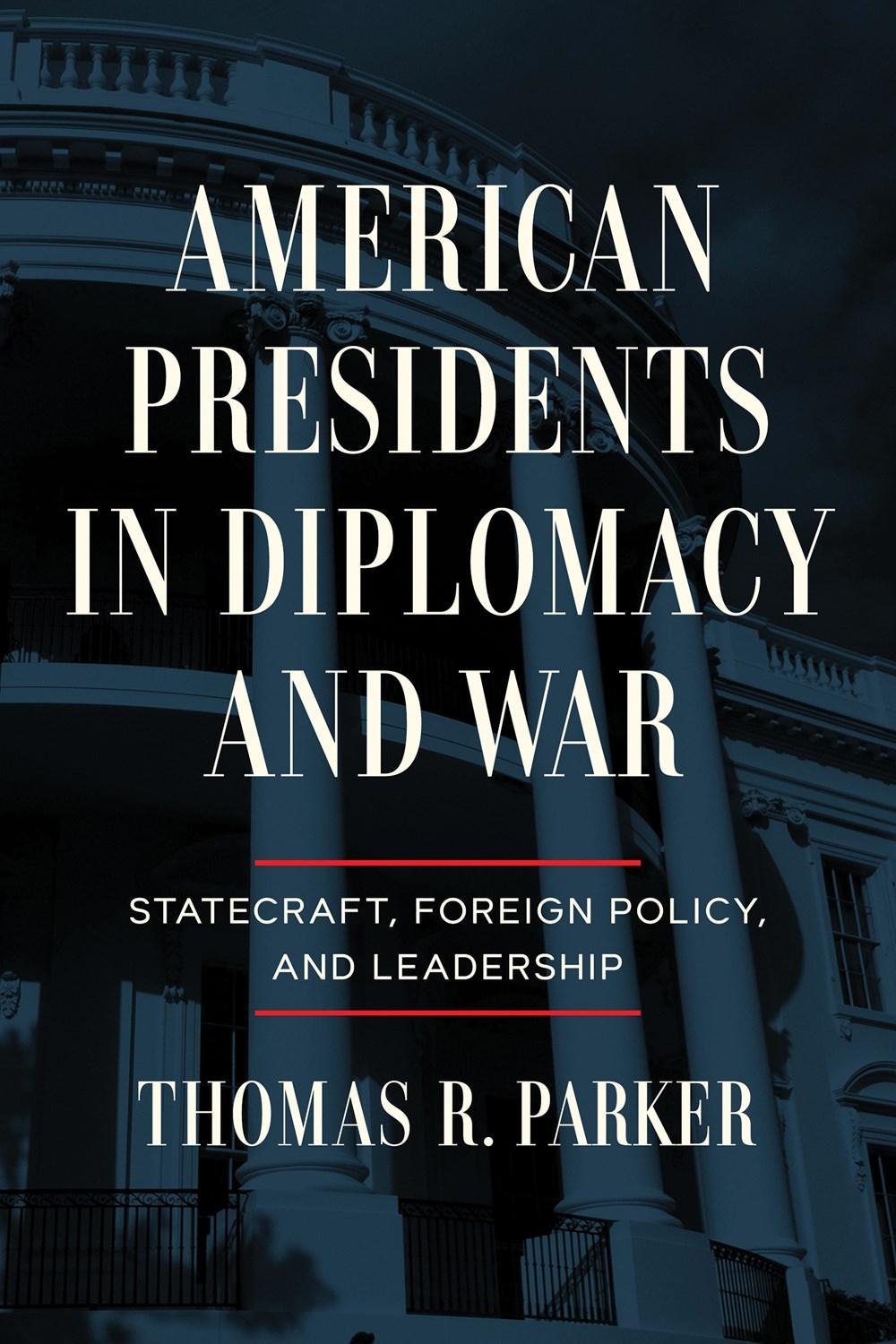
Thomas R. Parker
Summary
By analyzing how America’s greatest presidents displayed their mastery of statecraft, American Presidents in Diplomacy and War offers important lessons about the most effective uses of national power abroad.
American Presidents in Diplomacy and War chronicles the major foreign policy crises faced by twelve American presidents in order to uncover the reoccurring patterns of successful and less successful uses of diplomatic, economic, and military power. In this brief and highly readable book, Thomas R. Parker reveals how America’s most successful leaders manage events instead of allowing events to control them.
Parker explores how the U.S. presidency, from the days of the early Republic to the present, shaped the world. Ranging from George Washington to George H. W. Bush, Parker shows how successful statecraft requires the understanding of complex situations, the prudent evaluation of various courses of action, the ability to adapt and to anticipate, and personal determination. Parker compares each of these leaders to their contemporaries—reasonable political leaders who nonetheless made serious mistakes, such as Thomas Jefferson and Barack Obama—to examine the dangers of being unable to strike the right balance of aggressiveness and caution and to examine the costs of inexperience and ambivalence toward military power. The book concludes by discussing the increasingly complex international situation of today, particularly the manifold challenges posed by China and Russia to U.S. foreign policy, and the continued necessity of effective statecraft.
Contributor Bio
Thomas R. Parker is a professorial lecturer at George Washington University and author of The Road to Camp David. He worked for thirty years in diplomatic and military affairs for the White House, U.S. Defense Department, State Department, and the intelligence community
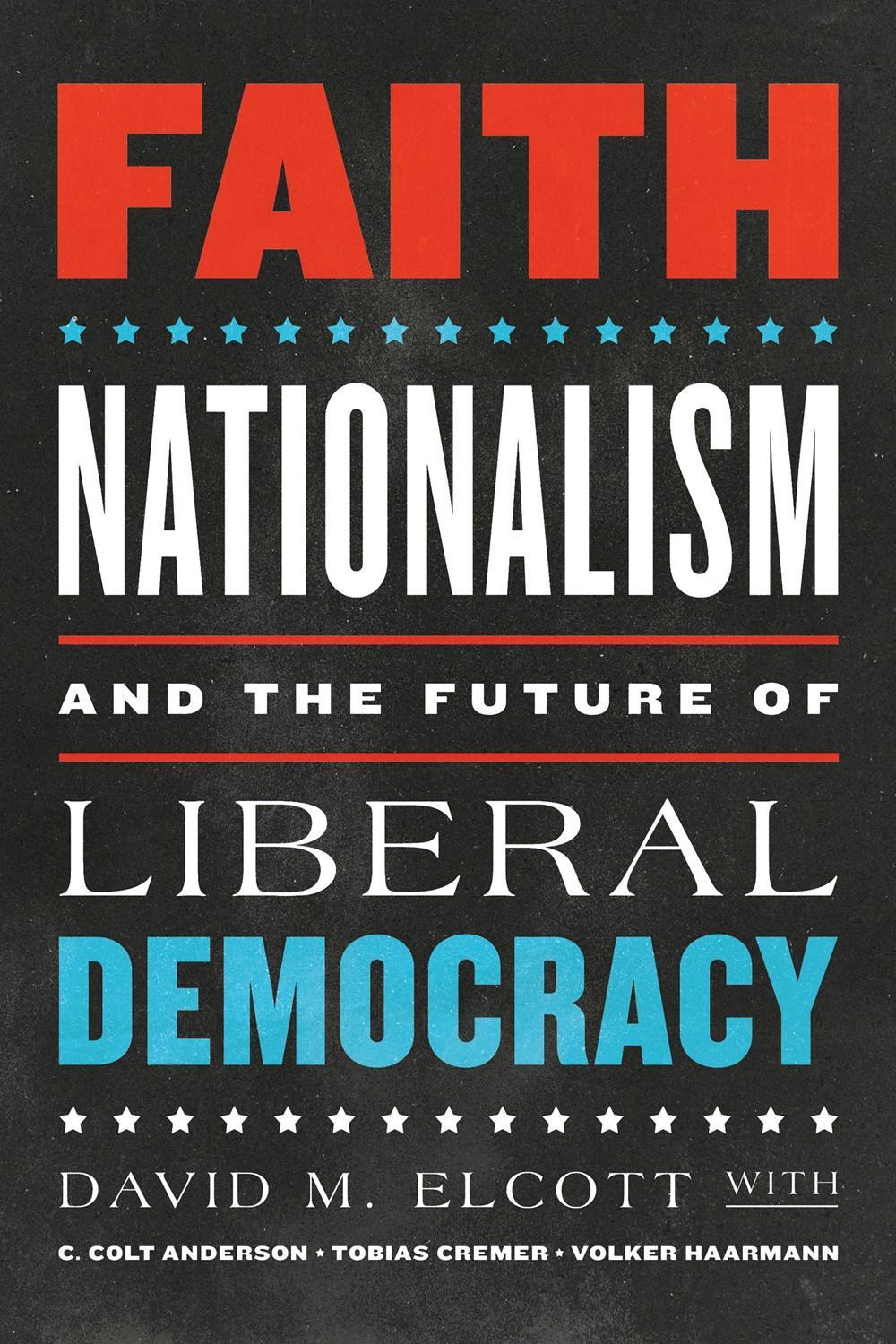
9780268200619
$35.00
240 Pages
1 Illustration(s)
9
David M. Elcott, C. Colt Anderson, Tobias Cremer, Volker Haarmann
Faith, Nationalism, and the Future of Liberal Democracy highlights the use of religious identity to fuel the rise of illiberal, nationalist, and populist democracy.
In Faith, Nationalism, and the Future of Liberal Democracy, David Elcott, C. Colt Anderson, Tobias Cremer, and Volker Haarmann present a pragmatic and modernist exploration of how religion engages in the public square. Elcott and his co-authors are concerned about the ways religious identity is being used to foster the exclusion of individuals and communities from citizenship, political representation, and a role in determining public policy They examine the ways religious identity is weaponized to fuel populist revolts against a political, social, and economic order that values democracy in a global and strikingly diverse world. Included is a history and political analysis of religion, politics, and policies in Europe and the United States that foster this illiberal rebellion.
The authors explore what constitutes a constructive religious voice in the political arena, even in nurturing patriotism and democracy, and what undermines and threatens liberal democracies. To lay the groundwork for a religious response, the book offers chapters showing how Catholicism, Protestantism, and Judaism can nourish liberal democracy. The authors encourage people of faith to promote foundational support for the institutions and values of the democratic enterprise from within their own religious traditions and to stand against the hostility and cruelty that historically have resulted when religious zealotry and state power combine.
Contributor Bio
David M. Elcott is a professor at SUNY and the Hudson Link and works with Hudson Link for Higher Education in Prison to teach college level classes to incarcerated individuals at Green Haven Correctional Facility.
C. Colt Anderson is professor of Christian spirituality and the former dean of the Graduate School of Religion and Religious Education at Fordham University.
Tobias Cremer is a member of the European Parliament.
Volker Haarmann is the chair of the Department of Theology of the Protestant Church in the Rhineland.
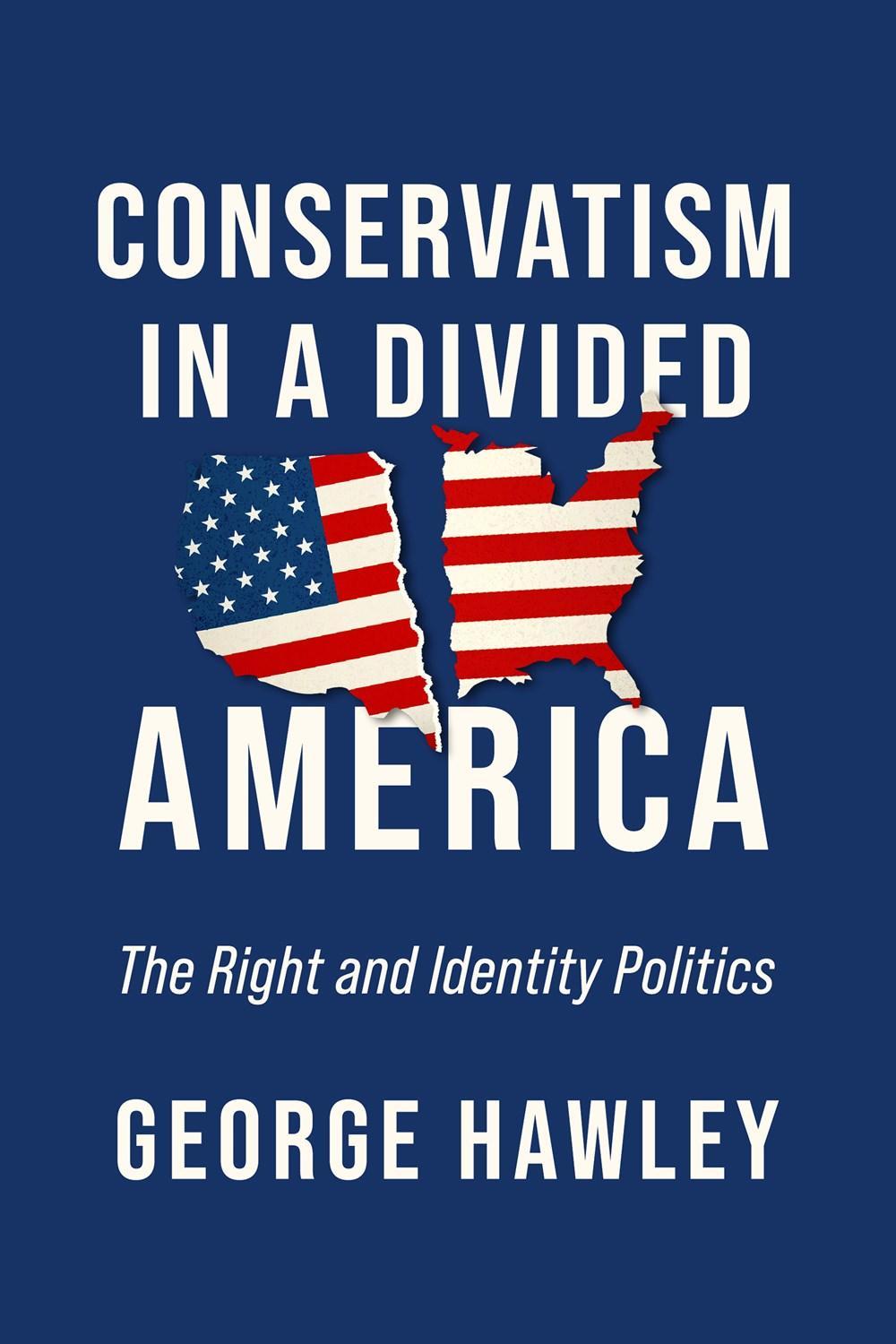
The Right and Identity Politics
George Hawley
Summary
George Hawley, who has written extensively on conservatism and right-wing ideologies in the United States, presents a telling portrait of conservatism’s relationship with identity politics.
The American conservative movement has consistently declared its opposition to all forms of identity politics, arguing that such a form of politics is at odds with individualism. In this persuasive study, George Hawley examines the nature of identity politics in the United States: how conservatives view and understand it, how they embrace their own versions of identity, and how liberal and conservative intellectuals and politicians navigate this equally dangerous and potentially explosive landscape.
Hawley begins his analysis with a synopsis of the variety both of conservative critiques of identity politics and of conservative explanations for how it has come to define America’s current political terrain. This historical account of differing conservative approaches to identitarian concerns from the post-war era until today—including race, gender, and immigration—foregrounds conservatism’s lack of consistency in its critiques and ultimately its failure to provide convincing arguments against identity politics. Hawley explores the political right’s own employment of identity politics, particularly in relation to partisan politics, and highlights how party identification in the United States has become a leading source of identity on both sides of the political spectrum. Hawley also discusses this generation’s iteration of American white nationalism, the Alt-Right, from whose rise and fall conservatism may develop a more honest, realistic, and indeed relevant approach to identity politics.
Contributor Bio
George Hawley is associate professor of political science at the University of Alabama. He is the author of a number of books, including The Moderate Majority, Making Sense of the Alt-Right, and Right-Wing Critics of American Conservatism

9780268208226
Pub Date: 5/15/26
$40.00
404 Pages
Daniel
Mark
Summary
Challenging the prevailing understanding of the authority of law, Daniel Mark offers a theory of moral obligation that is rooted both in command and in the law’s orientation to the common good.
When and why do we have an obligation to obey the law? Prevailing theories in the philosophy of law, starting with the work of H. L. A. Hart and Joseph Raz, fail to provide definitive answers regarding the nature of legal obligation. In this highly original and effective new work, Daniel Mark argues that there is a prima facie moral obligation to obey the law simply because it is the law. In Mark’s view, the best concept of law—one that allows for the possibility of justified authority and obligation—defines law as a set of commands oriented to the common good. Legal obligation, he proposes, shares defining features with moral obligation and with religious obligation while aligning wholly with neither.
This philosophically coherent view of legal obligation offers a viable framework for analyzing important and seemingly paradoxical puzzles about the law, such as why civil disobedience is punished as lawbreaking or why war-crimes trials for legal but immoral acts present a moral quandary. By reconciling the concept of law as command with the role of law in promoting the common good, The Nature of Law provides an original and important scholarly contribution to the fields of legal philosophy and political thought.
Contributor Bio
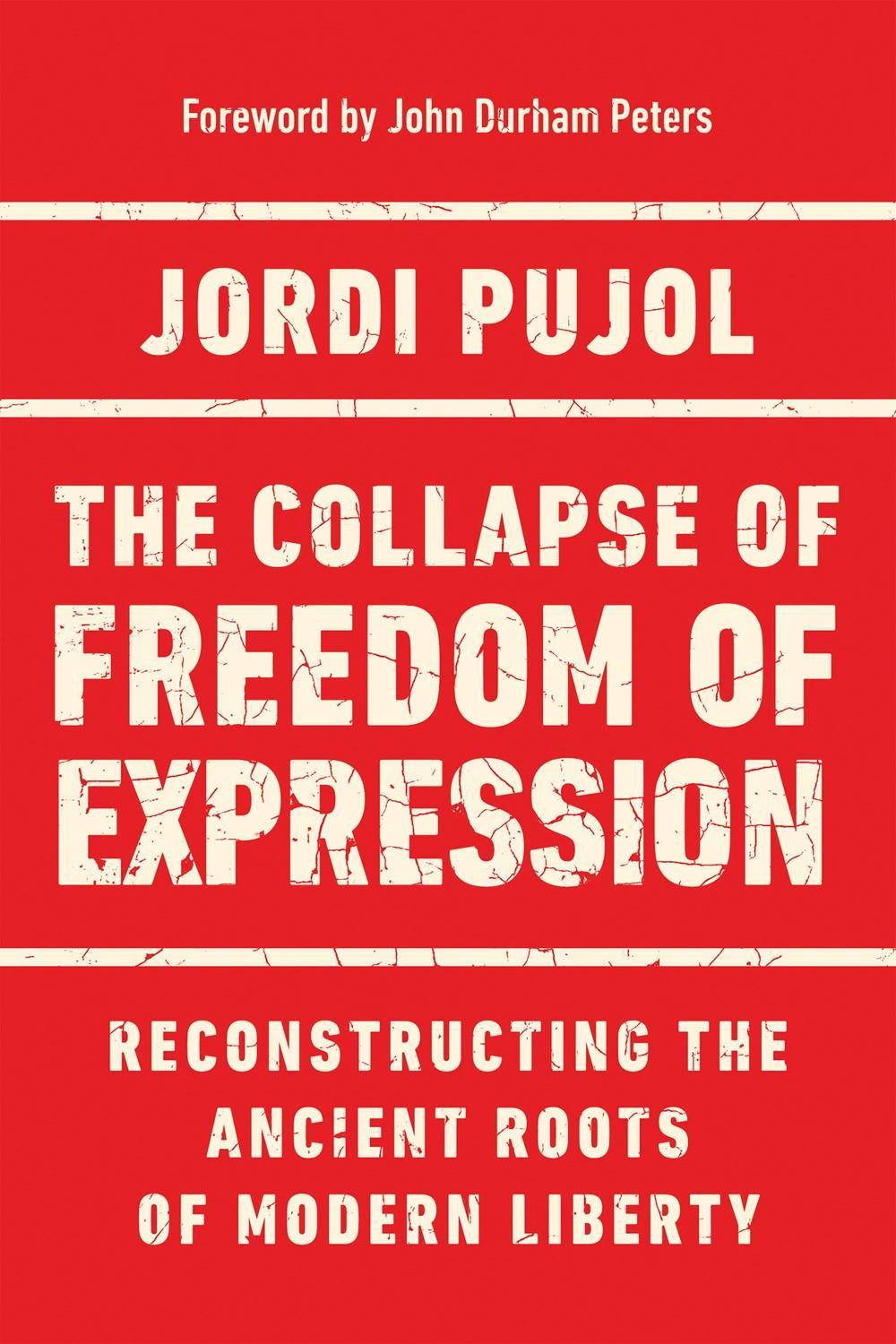
Daniel Mark is an associate professor in the Department of Political Science at Villanova University, where he is also battalion professor for the Navy ROTC program. He is formerly the chairman of the United States Commission on International Religious Freedom. 9780268203979
Jordi Pujol
Summary
This book offers a holistic account of the problems posed by freedom of expression in our current times and offers corrective measures to allow for a more genuine exchange of ideas within the global society.
The topic of free speech is rarely addressed from a historical, philosophical, or theological perspective. In The Collapse of Freedom of Expression, Jordi Pujol explores both the modern concept of the freedom of expression based on the European Enlightenment and the deficiencies inherent in this framework. Modernity has disregarded the traditional roots of the freedom of expression drawn from Christianity, Greek philosophy, and Roman law, which has left the door open to the various forms of abuse, censorship, and restrictions seen in contemporary public discourse. Pujol proposes that we rebuild the foundations of the freedom of expression by returning to older traditions and incorporating both the field of pragmatics of language and theological and ethical concepts on human intentionality as new, complementary disciplines.
Pujol examines emblematic cases such as Charlie Hebdo, free speech on campus, and online content moderation to elaborate on the tensions that arise within the modern concept of freedom of expression. The book explores the main criticisms of the contemporary liberal tradition by communitarians, libertarians, feminists, and critical race theorists, and analyzes the gaps and contradictions within these traditions. Pujol ultimately offers a reconstruction project that involves bridging the chasm between the secular and the sacred and recognizing that religion is a font of meaning for millions of people, and as such has an inescapable place in the construction of a pluralist public sphere.
Contributor Bio
Jordi Pujol is an associate professor of media ethics and media law at the School of Church Communications in the Pontifical University of Santa Croce in Rome.
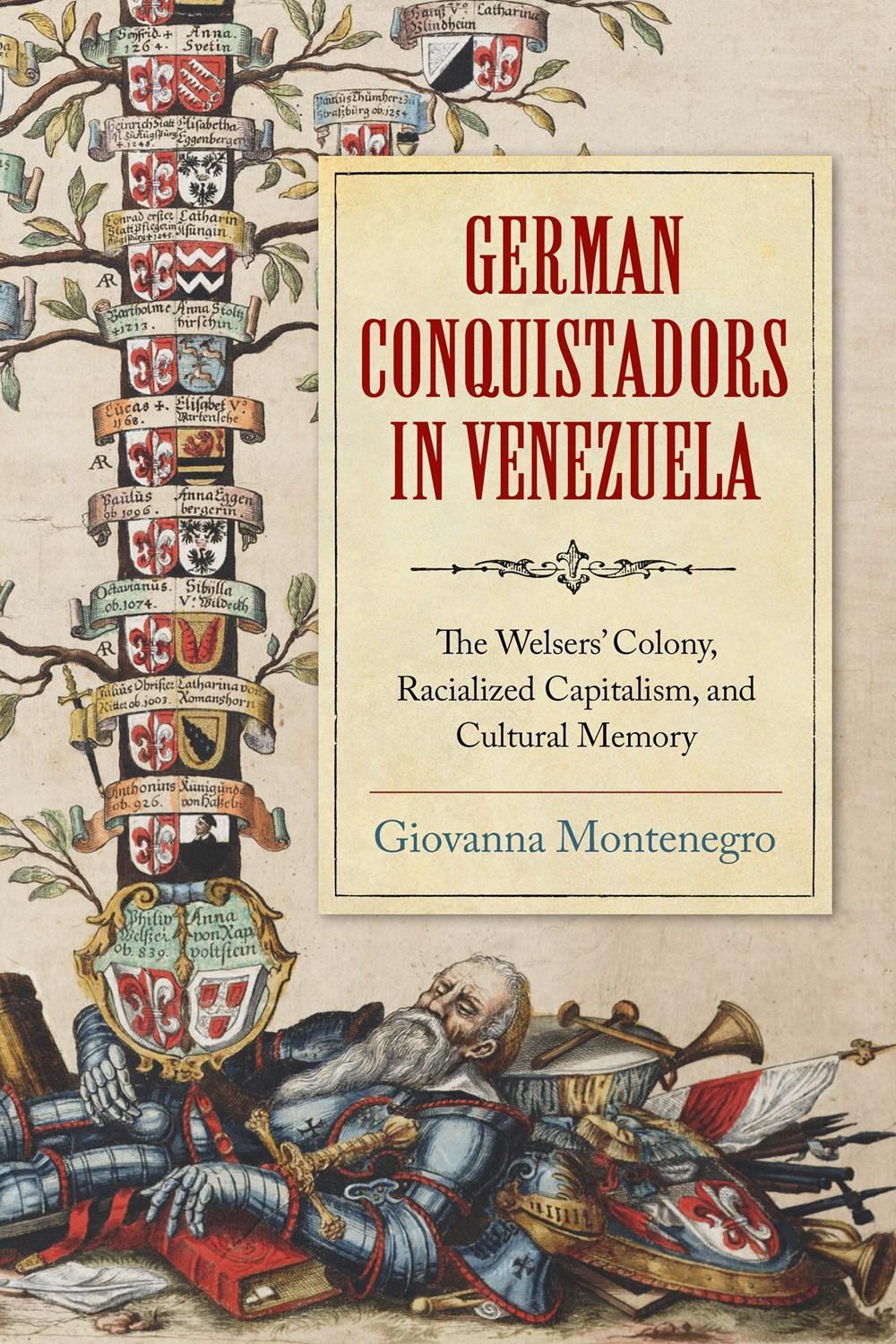
9780268203221
Pub Date: 1/15/25
$45.00 USD Paperback
372 Pages
61 b&w illustrations, 2 tables
History / Latin America
9 in H | 6 in W
NEW IN PAPERBACK
The Welsers' Colony, Racialized Capitalism, and Cultural Memory
Giovanna Montenegro
Summary
This fascinating study traces sixteenth-century German colonialism in Venezuela through the lens of racialized capitalism and the subsequent memorialization of the period through to the twentieth century.

Contributor Bio
Giovanna Montenegro is an associate professor of comparative literature and director of the Latin American and Caribbean Area Studies program at Binghamton University.
Robert J. Sierakowski
A bold new perspective on the liberation movement that brought the Sandinista National Liberation Front to power, overthrowing the longest-running dictatorship in Latin America.
Robert J. Sierakowski’s Sandinistas: A Moral History offers a new vantage point of the Sandinista movement beyond geopolitics and ideologies in 1979 Nicaragua. Using unique sources, from trial transcripts to archival collections and oral histories, Sierakowski shows the central role that was played by everyday Nicaraguans. Focusing on the country’s rural north, Sierakowski explores how a diverse coalition of labor unionists, student activists, housewives, and peasants inspired by Catholic liberation theology came to successfully challenge the legitimacy of the Somoza dictatorship and its entrenched networks of power.
Giovanna Montenegro investigates one of the strangest and often-ignored episodes in the conquest and colonization of the Americas—the governance of the Province of Venezuela by the Welsers, a German banking family from Augsburg, in the sixteenth century. Using a comparative and interdisciplinary approach, the book chronicles the Welsers’ business expansion beyond banking to colonization and the slave trade in the Spanish Indies and the eventual failure of the colony. Montenegro follows the money that financed the Habsburg empire, tackling a multifaceted, multilingual corpus of primary documents. She examines numerous legal documents, from contracts granting colonization and slave trade rights (capitulaciones, asientos) to complex financial transactions (interests, exchange rates). She also analyzes maps, literary texts, and various chronicles and poems of the period. The book examines a history of violence perpetrated upon enslaved Indigenous and African people, but it is also the story of how different generations across the Atlantic, up to Nazi Germany in the twentieth century, have remembered and recalled this Welser period of governance in Venezuela to serve other social and political purposes. Montenegro positions her research in relation to current critical discussion on inequality, slavery, white supremacy, and neoconservative nationalist movements in contemporary Latin America and Germany. 9780268106904
Mobilizing communities against the ubiquitous cantinas, gambling halls, and brothels, grassroots organizers exposed the regime’s complicity in promoting social ills, disorder, and quotidian violence while helping to construct radical new visions of moral uplift and social renewal. Sierakowski similarly recasts our understanding of the Nicaraguan National Guard, grounding his study of the Somozas’ army in the social and cultural world of the ordinary soldiers who enlisted and fought in defense of the dictatorship. Sierakowski unearths long buried stories of military repression and violence, including widespread civilian massacres, that pushed thousands of previously unaligned Nicaraguans into the ranks of the guerrilla insurgency by the late 1970s.
Contributor Bio
Robert J. Sierakowski is a history teacher in the Department of History, Brentwood School. He is a former lecturer in the Department of History and Archaeology at the University of the West Indies.
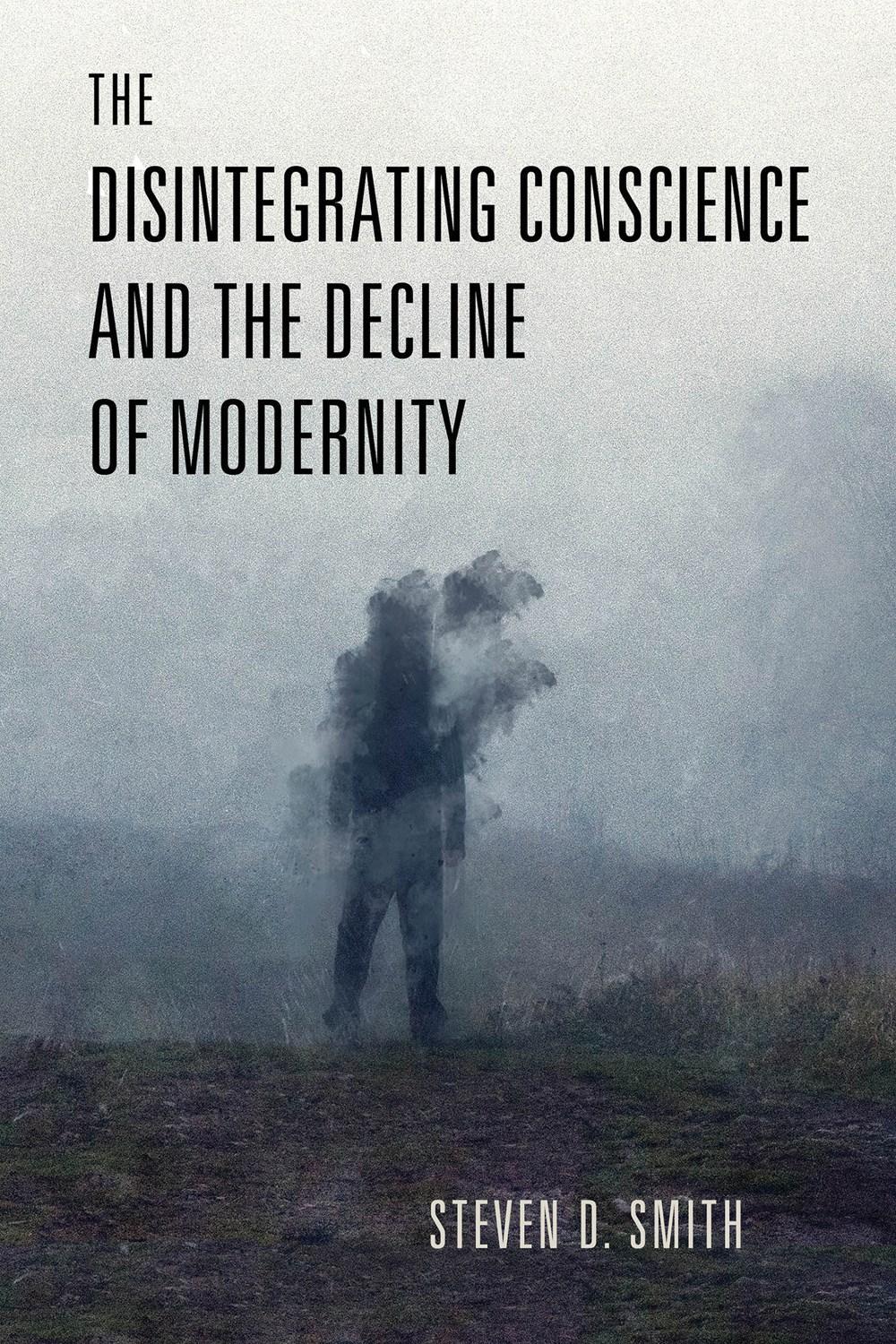
Steven D. Smith
Summary
This book considers how the modern concept of “conscience” turns the historic commitment on its head, in a way that underlies the decadence of modern society.
Steven D. Smith’s books are always anticipated with great interest by scholars, jurists, and citizens who see his work on foundational questions surrounding law and religion as shaping the debate in profound ways. Now, in The Disintegrating Conscience and the Decline of Modernity, Smith takes as his starting point Jacques Barzun’s provocative assertion that “the modern era” is coming to an end. Smith considers the question of decline by focusing on a single theme—conscience—that has been central to much of what has happened in Western politics, law, and religion over the past half-millennium. Rather than attempting to follow that theme step-by-step through five hundred years, the book adopts an episodic and dramatic approach by focusing on three main figures and particularly portentous episodes: first, Thomas More’s execution for his conscientious refusal to take an oath mandated by Henry VIII; second, James Madison’s contribution to Virginia law in removing the proposed requirement of religious toleration in favor of freedom of conscience; and, third, William Brennan’s pledge to separate his religious faith from his performance as a Supreme Court justice. These three episodes, Smith suggests, reflect in microcosm decisive turning points at which Western civilization changed from what it had been in premodern times to what it is today. A commitment to conscience, Smith argues, has been a central and in some ways defining feature of modern Western civilization, and yet in a crucial sense conscience in the time of Brennan and today has come to mean almost the opposite of what it meant to Thomas More. By scrutinizing these men and episodes, the book seeks to illuminate subtle but transformative changes in the commitment to conscience—changes that helped to bring Thomas More’s world to an end and that may also be contributing to the disintegration of (per Barzun) “the modern era.”
Contributor Bio
Steven D. Smith, winner of the 2022 Religious Liberty Initiative Scholarship Award, is formerly the Warren Distinguished Professor of Law, co-executive director of the Institute for Law and Religion, and the co-executive director of the Institute for Law and Philosophy at the University of San Diego.

Steven D. Smith
Summary
Fictions, Lies, and the Authority of Law discusses legal, political, and cultural difficulties that arise from the crisis of authority in the modern world.
Is there any connection linking some of the maladies of modern life—“cancel culture,” the climate of mendacity in public and academic life, fierce conflicts over the Constitution, disputes over presidential authority? Fictions, Lies, and the Authority of Law argues that these diverse problems are all a consequence of what Hannah Arendt described as the disappearance of authority in the modern world. In this perceptive study, Steven D. Smith offers a diagnosis explaining how authority today is based in pervasive fictions and how this situation can amount to, as Arendt put it, “the loss of the groundwork of the world.”
Fictions, Lies, and the Authority of Law considers a variety of problems posed by the paradoxical ubiquity and absence of authority in the modern world. Some of these problems are jurisprudential or philosophical in character; others are more practical and lawyerly—problems of presidential powers and statutory and constitutional interpretation; still others might be called existential. Smith’s use of fictions as his purchase for thinking about authority has the potential to bring together the descriptive and the normative and to think about authority as a useful hypothesis that helps us to make sense of the empirical world. This strikingly original book shows that theoretical issues of authority have important practical implications for the kinds of everyday issues confronted by judges, lawyers, and other members of society. The book is aimed at scholars and students of law, political science, and philosophy, but many of the topics it addresses will be of interest to politically engaged citizens.
Contributor Bio
Steven D. Smith is formerly the Warren Distinguished Professor of Law at the University of San Diego. He is the author of numerous books, including The Rise and Decline of American Religious Freedom and Law’s Quandary
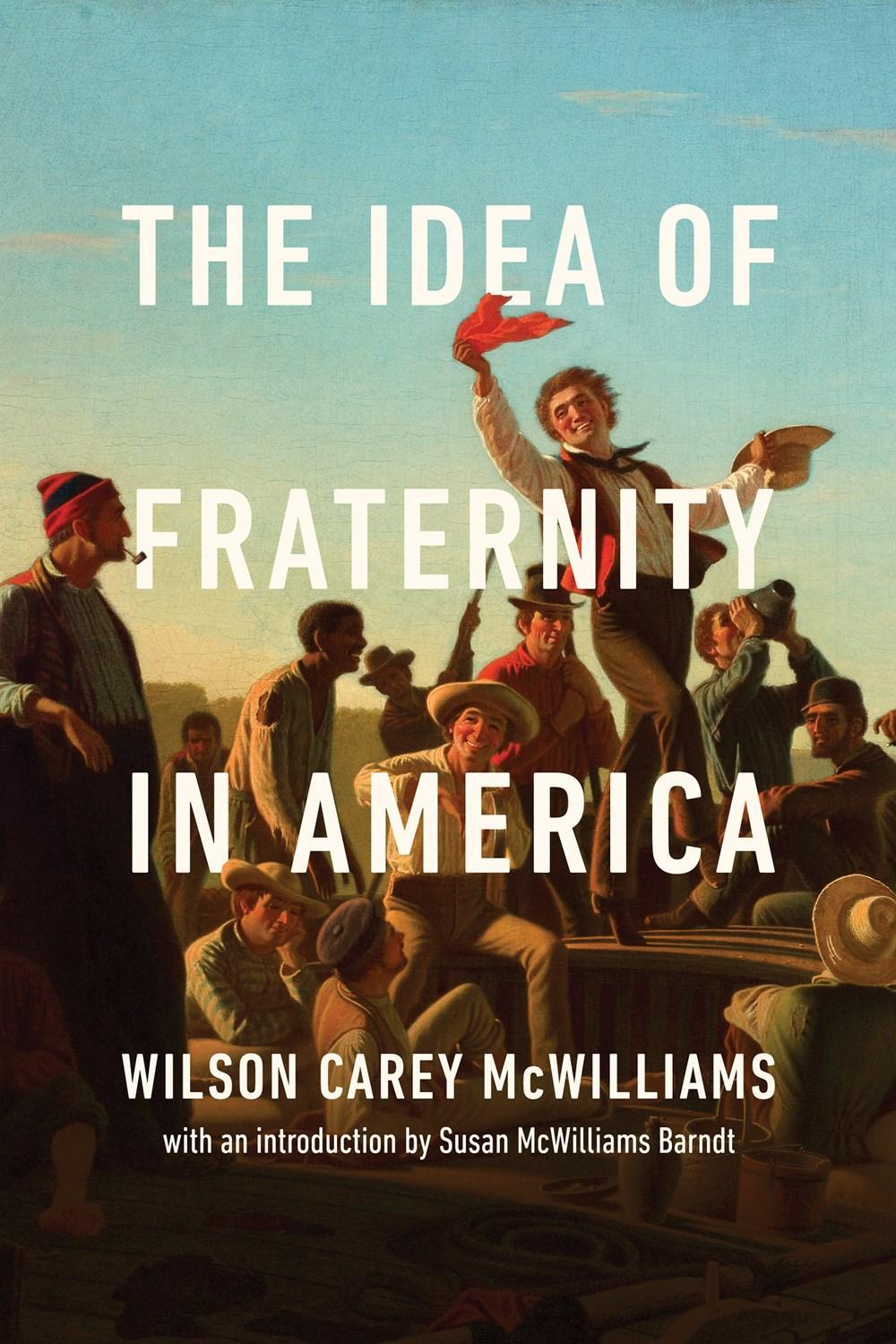
9780268205355
$50.00
732
Wilson Carey McWilliams, Susan McWilliams Barndt
Summary
“A complex, intellectually jarring, and valuable book, one which reveals how early America became her true self as we now know her.” —Kirkus Reviews
The United States is currently experiencing a crisis of citizenship and democracy. For many of us, there is a sense of forlornness caused by losing sight of human connectedness and the bonds of community. Originally published in 1973, and long out of print, The Idea of Fraternity in America is a resonant call to reclaim and restore the communal bonds of democracy by one of the most important political theorists of the twentieth century, Wilson Carey McWilliams.
This sprawling and majestic book offers a comprehensive and original interpretation of the whole range of American historical and political thought, from seventeenth-century White Puritanism to twentieth-century Black American political thought. In one sense, it is a long and sustained reflection on the American political tradition, with side glances at other cultures and other traditions; in another sense, it is an impressive beginning to an original and comprehensive theory of politics, rooted in a new reading of a vast array of relevant sources. Speaking with a prescience unmatched by his contemporaries, McWilliams argues that in order to address the malaise of our modern democracy we must return to an ideal of our past: fraternity, a relation of affection founded on shared values and goals. This 50th anniversary edition, which offers a critique of the liberal tradition and a new social philosophy for the future, contains a new introduction from McWilliams’s daughter, Susan McWilliams Barndt. She writes, “At a time when many Americans are wondering how we got to where we are today . . . this book demonstrates that there is in fact a lot of precedent for what feels so unprecedented in contemporary American politics.”
Contributor Bio
Wilson Carey McWilliams (1933–2005) was a professor in the department of political science at Rutgers, the State University of New Jersey, at New Brunswick.
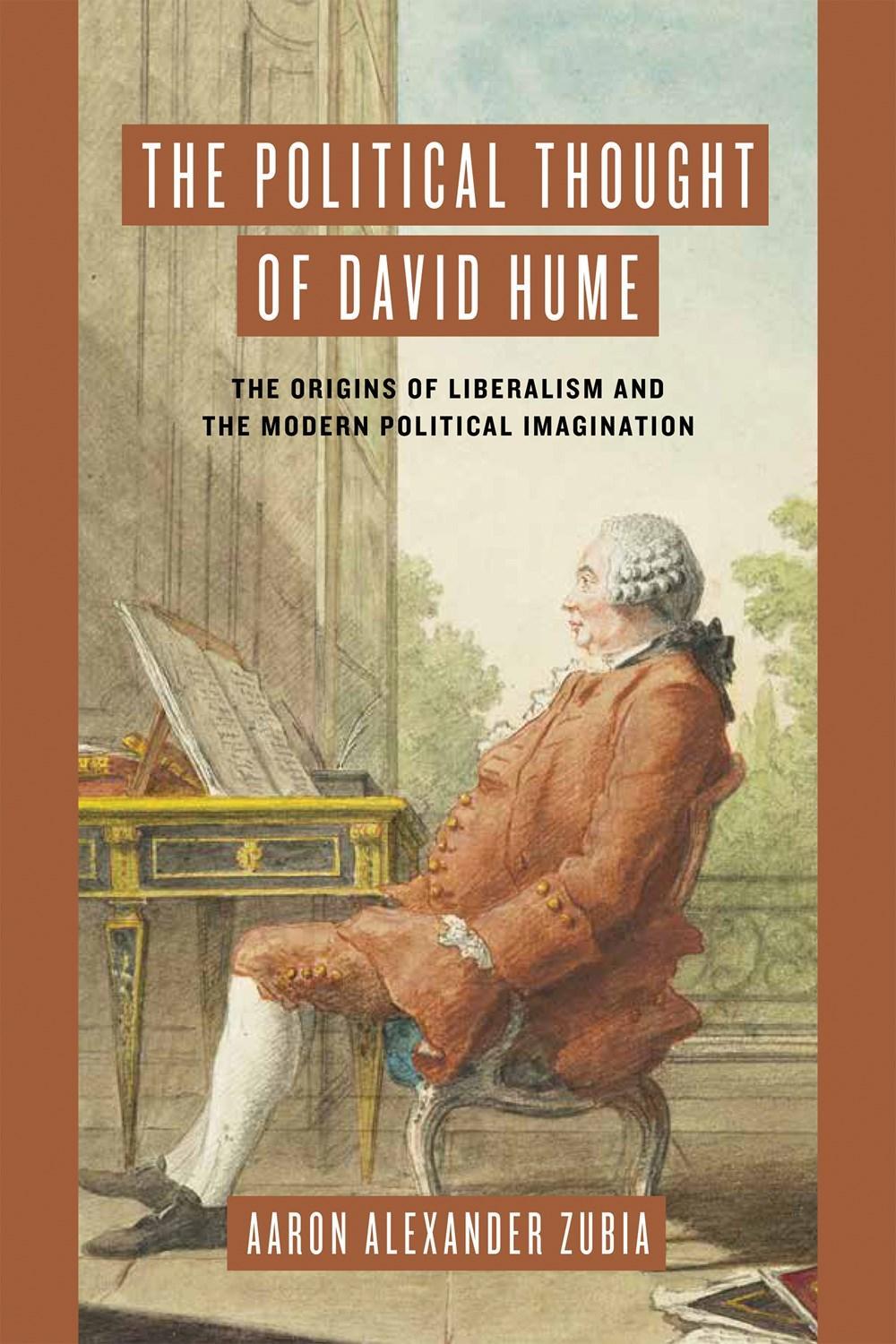
The Origins of Liberalism and the Modern Political Imagination
Aaron Alexander Zubia
Summary
Aaron Alexander Zubia argues that the Epicurean roots of David Hume’s philosophy gave rise to liberalism’s unrelenting grip on the modern political imagination.
Eighteenth-century Scottish philosopher David Hume has had an outsized impact on the political thinkers who came after him, from the nineteenth-century British Utilitarians to modern American social contract theorists. In this thorough and thoughtful new work, Aaron Alexander Zubia examines the forces that shaped Hume’s thinking within the broad context of intellectual history, with particular focus on the ancient Greek philosopher Epicurus and the skeptical tradition.
Zubia argues that through Hume’s influence, Epicureanism—which elevates utility over moral truth—became the foundation of liberal political philosophy, which continues to dominate and limit political discourse today.
Contributor Bio
Aaron Alexander Zubia is assistant professor of humanities at the University of Florida. His work has appeared in the Wall Street Journal, National Review, Political Theory, Interpretation: A Journal of Political Philosophy, and Law & Liberty.
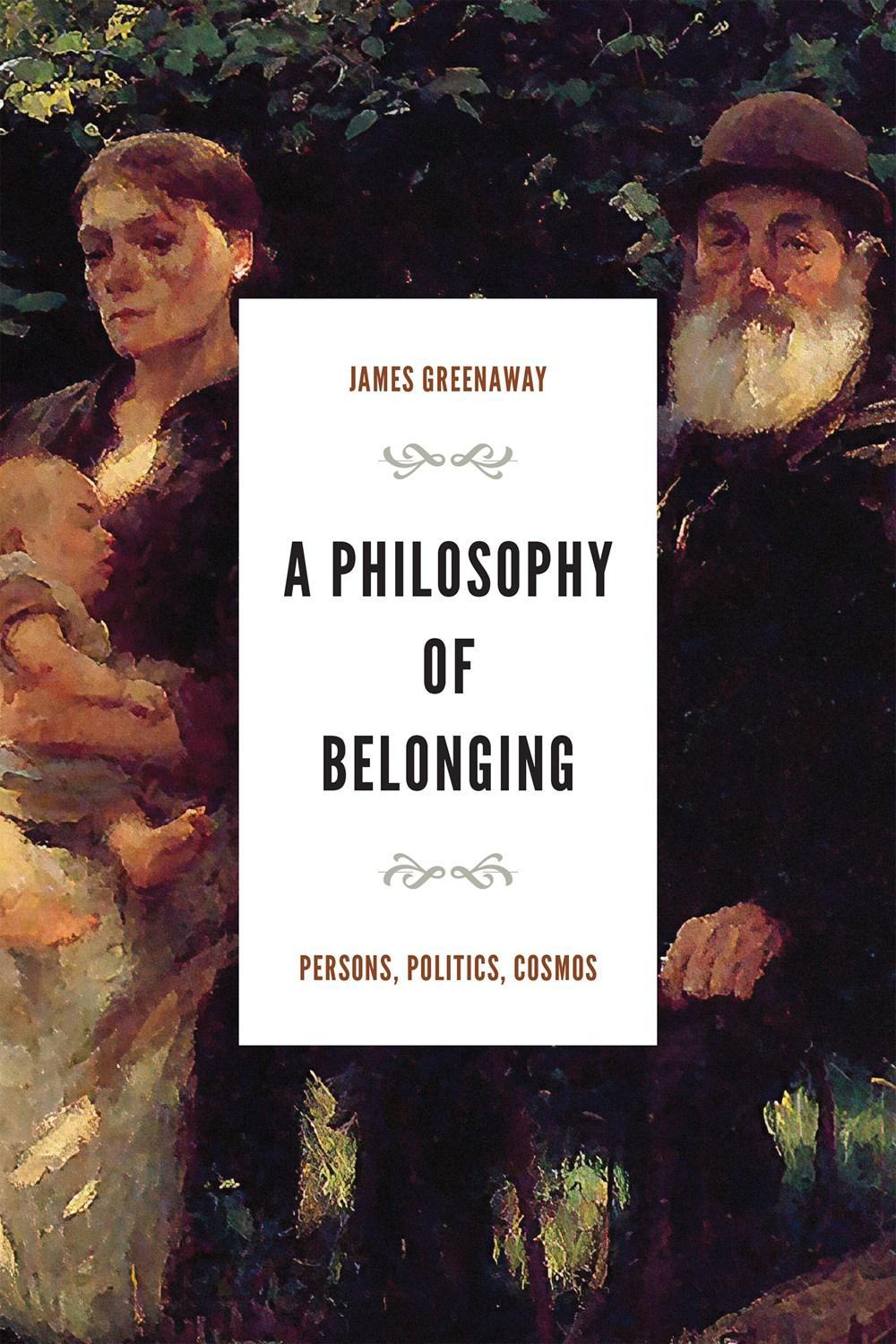
9780268206024
Pub Date: 8/15/23
$50.00
338 Pages Philosophy / Political Series: The Beginning and the Beyond of Politics
9 in H | 6 in W
James Greenaway
James Greenaway offers a philosophical guide to understanding, affirming, and valuing the significance of belonging across personal, political, and historical dimensions of existence.
A sense of belonging is one of the most meaningful experiences of anyone’s life. Inversely, the discovery that one does not belong can be one of the most upsetting experiences. In A Philosophy of Belonging, Greenaway treats the notion of belonging as an intrinsically philosophical one. After all, belonging raises intense questions of personal self-understanding, identity, mortality, and longing; it confronts interpersonal, sociopolitical, and historical problems; and it probes our relationship with both the knowable world and transcendent mystery. Experiences of alienation, exclusion, and despair become conspicuous only because we are already moved by a primordial desire to belong.
Greenaway presents a hermeneutical framework that brings the intelligibility of belonging into focus and discusses the works of various representative thinkers in light of this hermeneutic. The study is divided into two main parts, “Presence” and “Communion.” In the first, Greenaway considers the abiding presence of the cosmos as the context of personhood and the world, followed by the presence of persons to themselves and others by way of consciousness and embodiment, culminating in a discussion of the unrestricted horizon of meaning that love makes present in persons. In the second part, belonging in community is explored as a crucial type of communion that is both politically and historically structured. Moreover, communion has direction and a quality of sacredness that offers itself for consideration. Greenaway concludes with a discussion of the consequences of refusing presence and communion, and what is involved in the repudiation of belonging.
Contributor Bio
James Greenaway is the San José-Lonergan Chair in Catholic Philosophy at St. Mary’s University. He is the author of The Differentiation of Authority: The Medieval Turn Toward Existence.
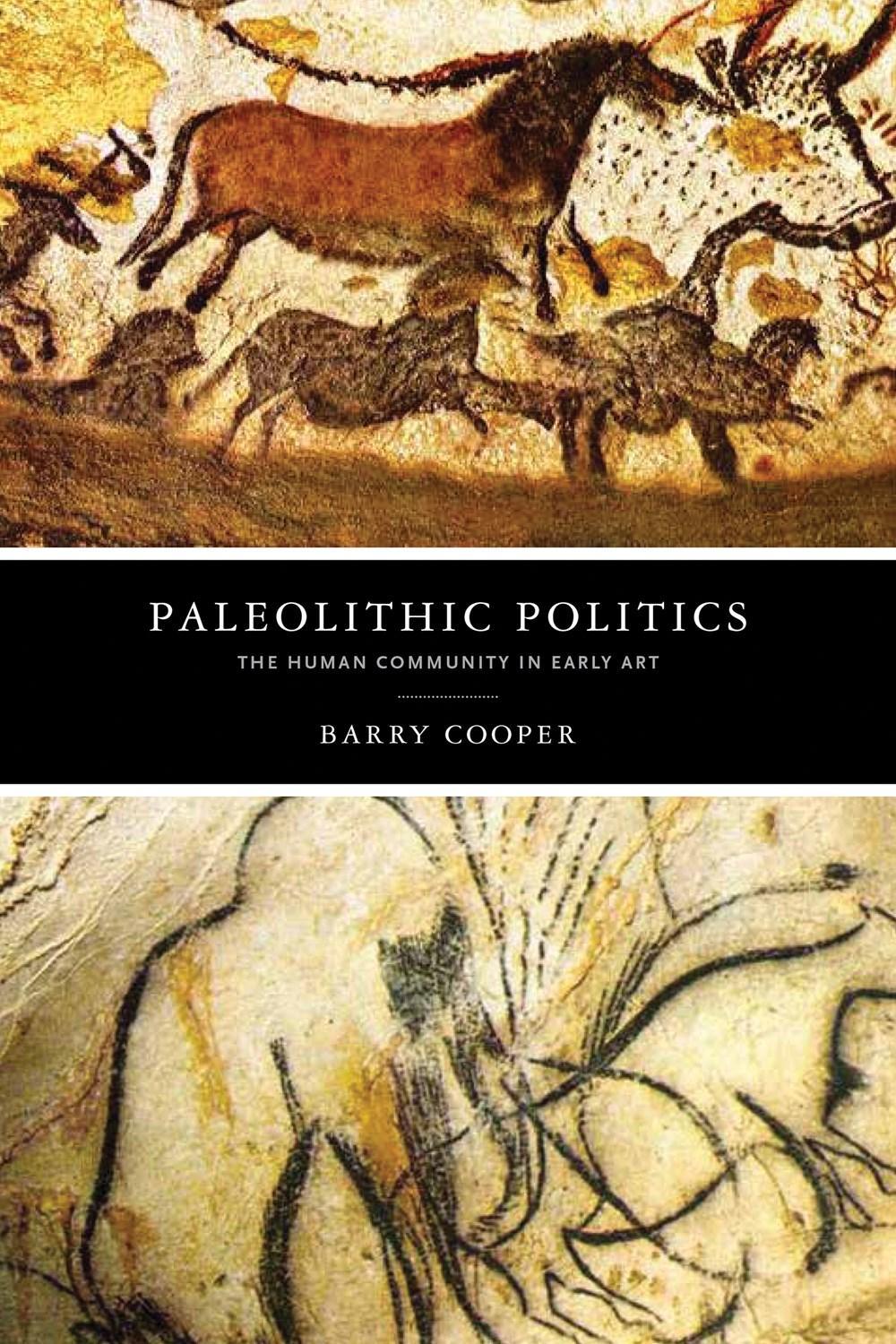
The Human Community in Early Art
Barry Cooper
Summary
Using his background in political theory and philosophical anthropology, Barry Cooper is the first political scientist to propose new interpretations of some of the most famous extant Paleolithic art and artifacts in Paleolithic Politics. This book is inspired by Eric Voegelin, one of the major political scientists of the last century, who developed an interest in the very early symbolism associated with the caves and rock shelters of the Upper Paleolithic, but never finished his analysis. Cooper, who has written extensively on Voegelin’s theories, takes up the enterprise of applying Voegelin’s approach to an analysis of portable and cave art. He specifically applies Voegelin’s philosophy of consciousness, his concept of the compactness and differentiation of consciousness, his argument regarding the experience and symbolizations of reality, and his notion of the primary experience of the cosmos to images previously regarded as pedestrian. Cooper demonstrates the political significance of the earliest expressions of human existence and is among the first to argue that political life began not with the Greeks, but 25,000 years before them. Archaeologists, prehistorians, and political scientists will all benefit from this original and provocative work.
Contributor Bio
Barry Cooper is a professor of political science at the University of Calgary. He is the author, editor, and translator of over thirty books, including Consciousness and Politics: From Analysis to Meditation in the Late Work of Eric Voegelin
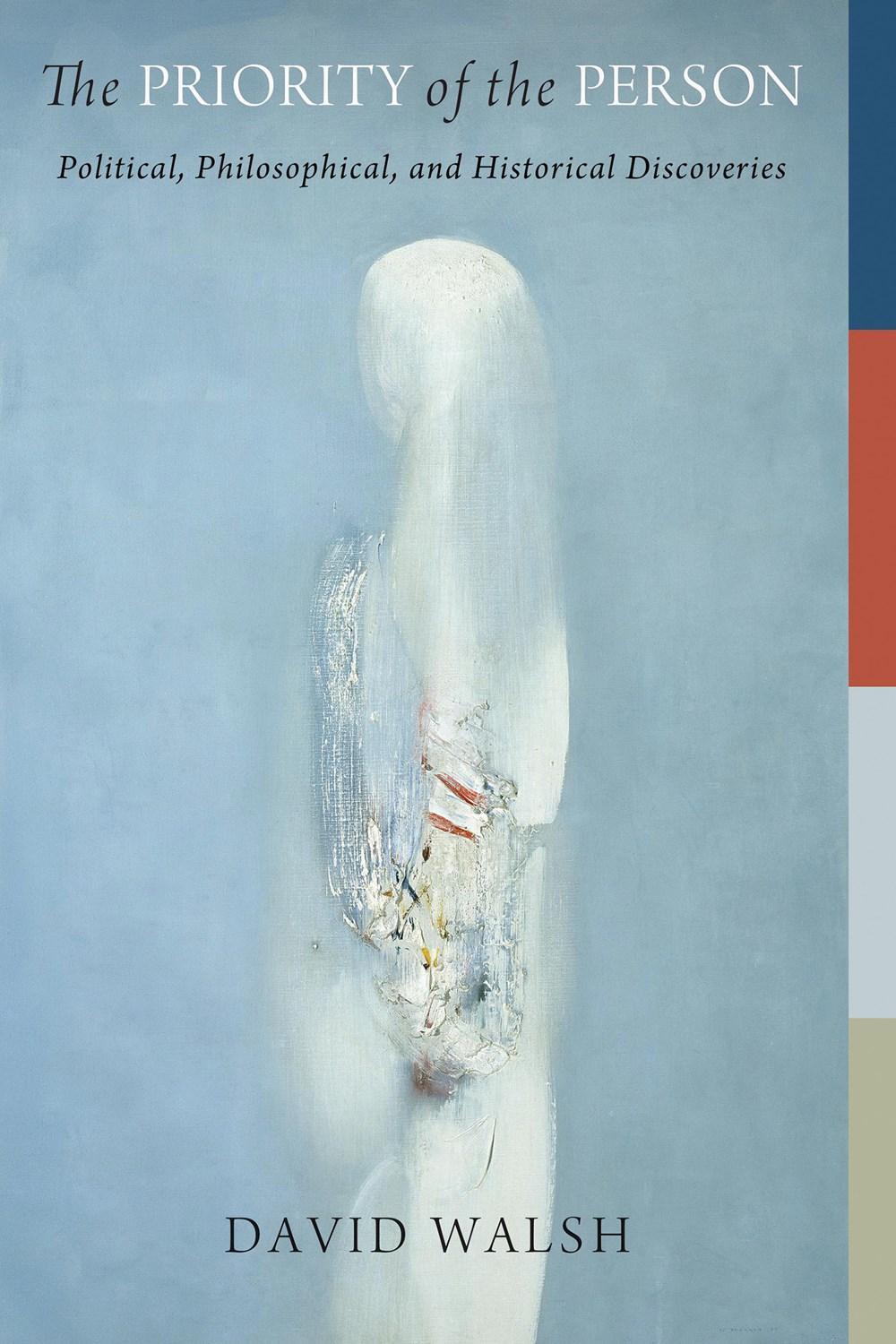
9780268107383
Pub Date: 8/31/20
$39.00
372 Pages
David Walsh
In The Priority of the Person, world-class philosopher David Walsh advances the argument set forth in his highly original philosophic meditation Politics of the Person as the Politics of Being (2015), that “person” is the central category of modern political thought and philosophy. The present volume is divided into three main parts. It begins with the political discovery of the inexhaustibility of persons, explores the philosophic differentiation of the idea of the “person,” and finally traces the historical emergence of the concept through art, science, and faith. Walsh argues that, although the roots of the idea of “person” are found in the Greek concept of the mind and in the Christian conception of the soul, this notion is ultimately a distinctly modern achievement, because it is only the modern turn toward interiority that illuminated the unique nature of persons as each being a world unto him- or herself. As Walsh shows, it is precisely this feature of persons that makes it possible for us to know and communicate with others, for we can only give and receive one another as persons. In this way alone can we become friends and, in friendship, build community.
By showing how the person is modernity’s central preoccupation, David Walsh’s The Priority of the Person makes an important contribution to current discussions in both political theory and philosophy. It will also appeal to students and scholars of theology and literature, and any groups interested in the person and personalism.
Contributor Bio
David Walsh is professor of politics at the Catholic University of America. He is the author and editor of a number of books, including Politics of the Person as the Politics of Being (University of Notre Dame Press, 2015).
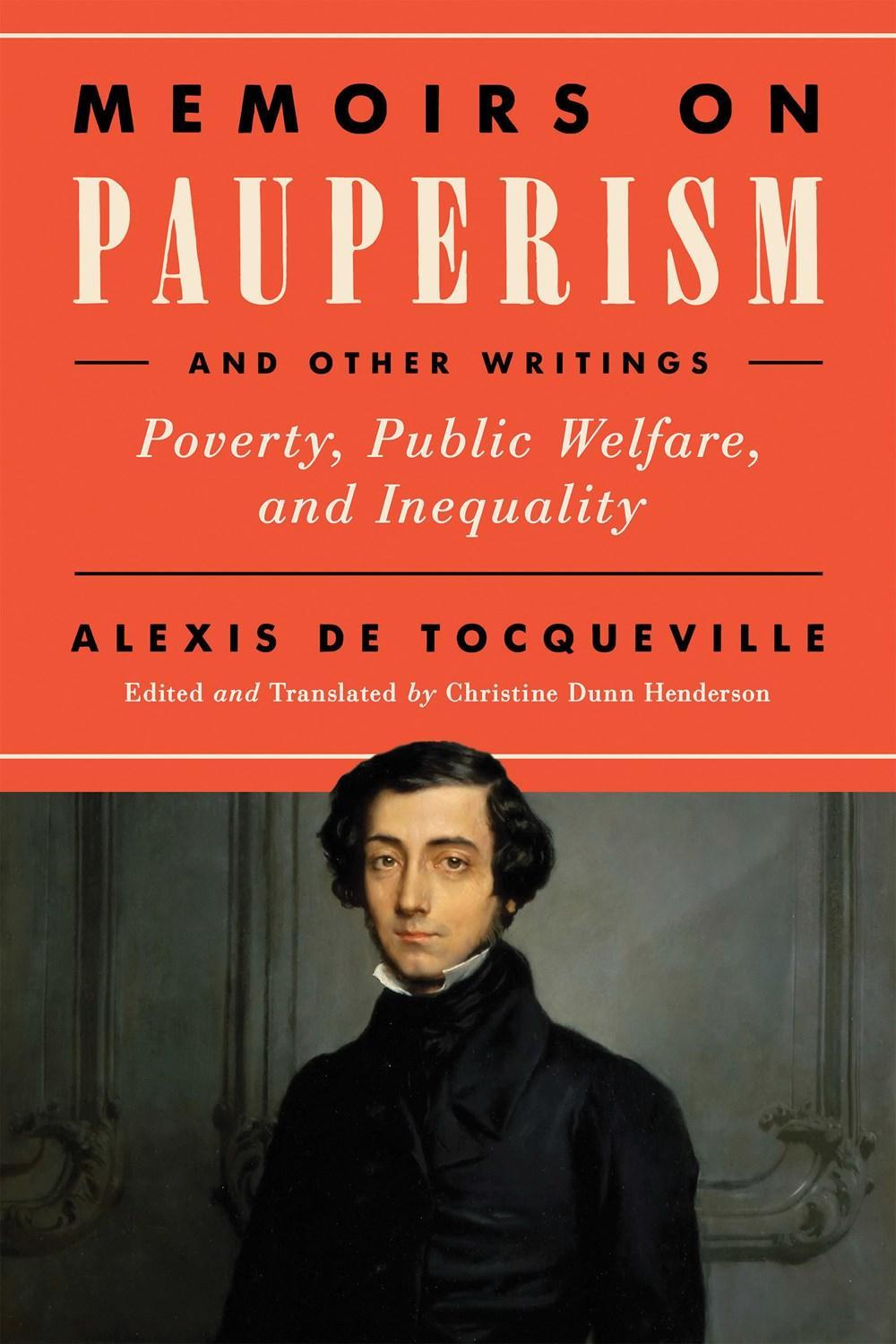
Poverty, Public Welfare, and Inequality
Alexis de Tocqueville, Christine Dunn Henderson
The collection includes new translations of Tocqueville's works, including the first English translation of his Second Memoir, the original Memoir, a letter fragment considering pauperism in Normandy, and the ‘‘Pauperism in America’’ index to the Penitentiary Report.
Alexis de Tocqueville was one of the most important thinkers of the nineteenth century, and his thought continues to influence contemporary political and social discourse. In Memoirs on Pauperism and Other Writings, Christine Dunn Henderson brings all of Tocqueville’s writings on poverty together for the first time: a new translation of his original Memoir and the first English translation of his unfinished Second Memoir, as well as his letter considering pauperism in Normandy and the ‘‘Pauperism in America’’ appendix to his Penitentiary Report
By uniting these texts in a single volume, Henderson makes possible a deeper exploration of Tocqueville’s thought as it pertains to questions of inequality and public assistance. As Henderson shows in her introduction to this collection, Tocqueville provides no easy blueprint for fixing these problems, which remain pressing today. Still, Tocqueville’s writings speak eloquently about these issues, and his own unsuccessful struggle to find solutions remains both a spur to creative thinking today and a caution against attempting to find simplistic remedies. Memoirs on Pauperism and Other Writings allows us to study his sustained thought on pauperism, poverty assistance, governmental assistance programs, and social inequality in a new and deeper way
Contributor Bio
Alexis de Tocqueville (1805–1859) was a French political scientist and historian. He is best known for his works Democracy in America and The Old Regime and the Revolution
Christine Dunn Henderson is associate professor of political science in the School of Social Sciences at Singapore Management University.
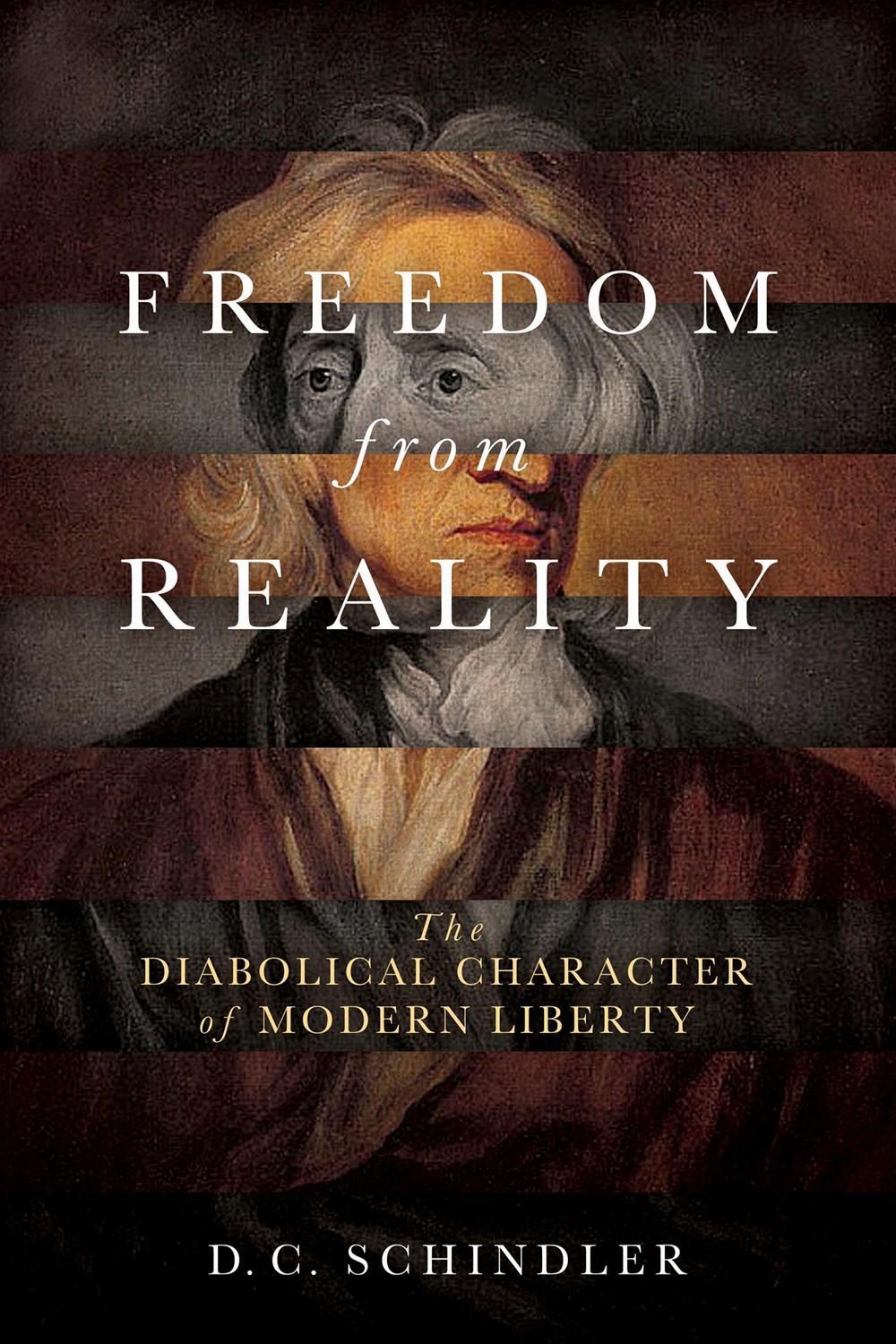
9780268102623
Pub Date: 8/31/19
$40.00
496 Pages
Philosophy / Ethics & Moral
Philosophy Series: Catholic Ideas for a
World
9 in H | 6 in W
The Diabolical Character of Modern Liberty
D.C. Schindler
It is commonly observed that behind many of the political and cultural issues that we face today there are impoverished conceptions of freedom, which, according to D. C. Schindler, we have inherited from the classical liberal tradition without a sufficient awareness of its implications. Freedom from Reality presents a critique of the deceptive and ultimately self-subverting character of the modern notion of freedom, retrieving an alternative view through a new interpretation of the ancient tradition. While many have critiqued the inadequacy of identifying freedom with arbitrary choice, this book seeks to penetrate to the metaphysical roots of the modern conception by going back, through an etymological study, to the original sense of freedom.
Schindler begins by uncovering a contradiction in John Locke’s seminal account of human freedom. Rather than dismissing it as a mere “academic” problem, Schindler takes this contradiction as a key to understanding the strange paradoxes that abound in the contemporary values and institutions founded on the modern notion of liberty: the very mechanisms that intend to protect modern freedom render it empty and ineffectual. In this respect, modern liberty is “diabolical”—a word that means, at its roots, that which “drives apart” and so subverts. This is contrasted with the “symbolical” (a “joining-together”), which, he suggests, most basically characterizes the premodern sense of reality. This book will appeal to students and scholars of political philosophy (especially political theorists), philosophers in the continental or historical traditions, and cultural critics with a philosophical bent.
Contributor Bio
D.C. Schindler is professor of metaphysics and anthropology at the John Paul II Institute, Washington, DC. He is the author of a number of books, including The Catholicity of Reason.
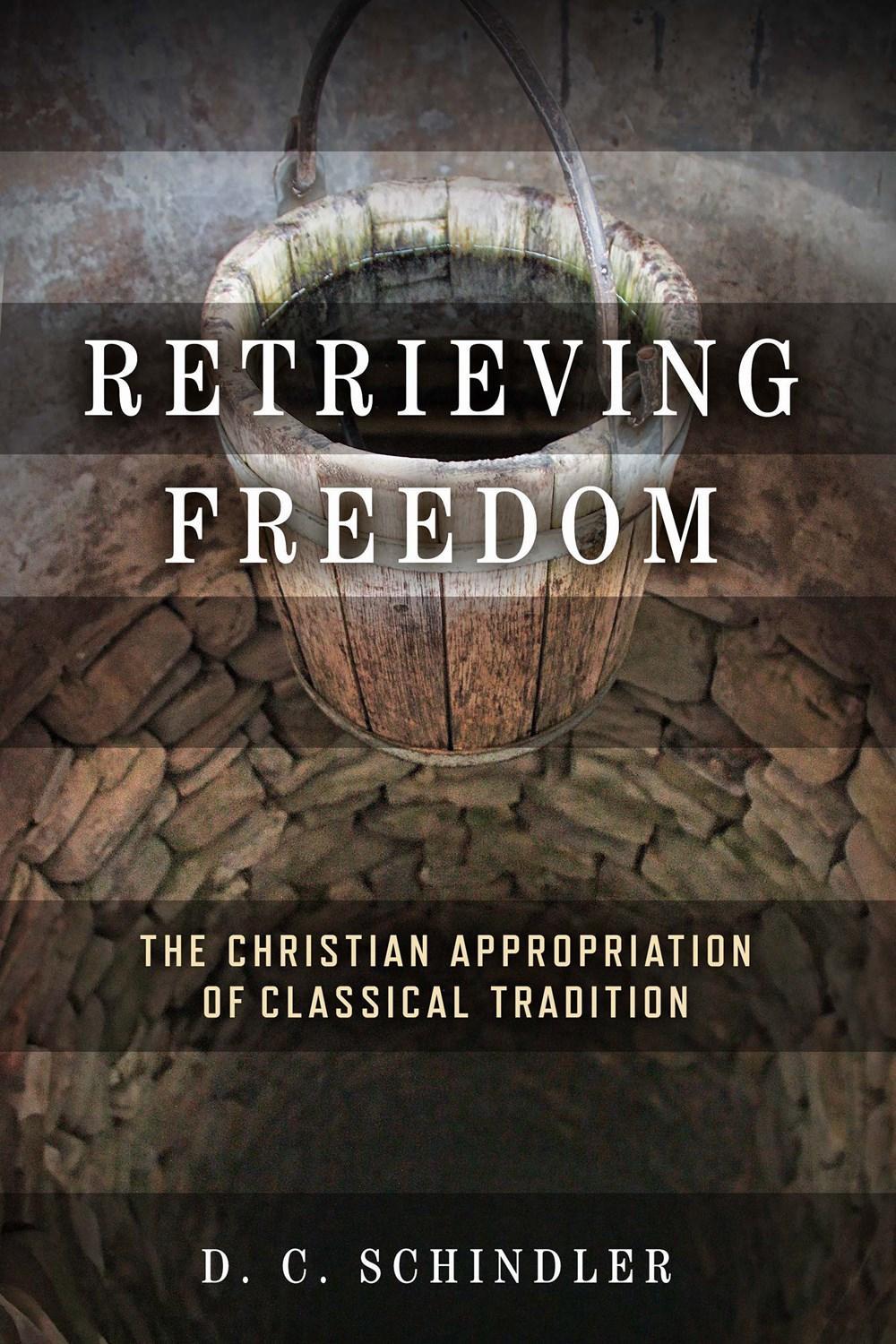
The Christian Appropriation of Classical Tradition
D.C. Schindler
Summary
Retrieving Freedom is a provocative, big-picture book, taking a long view of the “rise and fall” of the classical understanding of freedom.
In response to the evident shortcomings of the notion of freedom that dominates contemporary discourse, Retrieving Freedom seeks to return to the sources of the Western tradition to recover a more adequate understanding. This book begins by setting forth the ancient Greek conception—summarized from the conclusion of D. C. Schindler’s previous tour de force of political and moral reasoning, Freedom from Reality—and the ancient Hebrew conception, arguing that at the heart of the Christian vision of humanity is a novel synthesis of the apparently opposed views of the Greeks and Jews. This synthesis is then taken as a measure that guides an in-depth exploration of landmark figures framing the history of the Christian appropriation of the classical tradition. Schindler conducts his investigation through five different historical periods, focusing in each case on a polarity, a pair of figures who represent the spectrum of views from that time: Plotinus and Augustine from late antiquity, Dionysius the Areopagite and Maximus the Confessor from the patristic period, Anselm and Bernard from the early middle ages, Bonaventure and Aquinas from the high middle ages, and, finally, Godfrey of Fontaines and John Duns Scotus from the late middle ages. In the end, we rediscover dimensions of freedom that have gone missing in contemporary discourse, and thereby identify tasks that remain to be accomplished. Schindler’s masterful study will interest philosophers, political theorists, and students and scholars of intellectual history, especially those who seek an alternative to contemporary philosophical understandings of freedom.
Contributor Bio
D.C. Schindler is professor of metaphysics and anthropology at the John Paul II Institute, Washington, DC. He is the author of more than a dozen books, including Freedom from Reality: The Diabolical Character of Modern Liberty
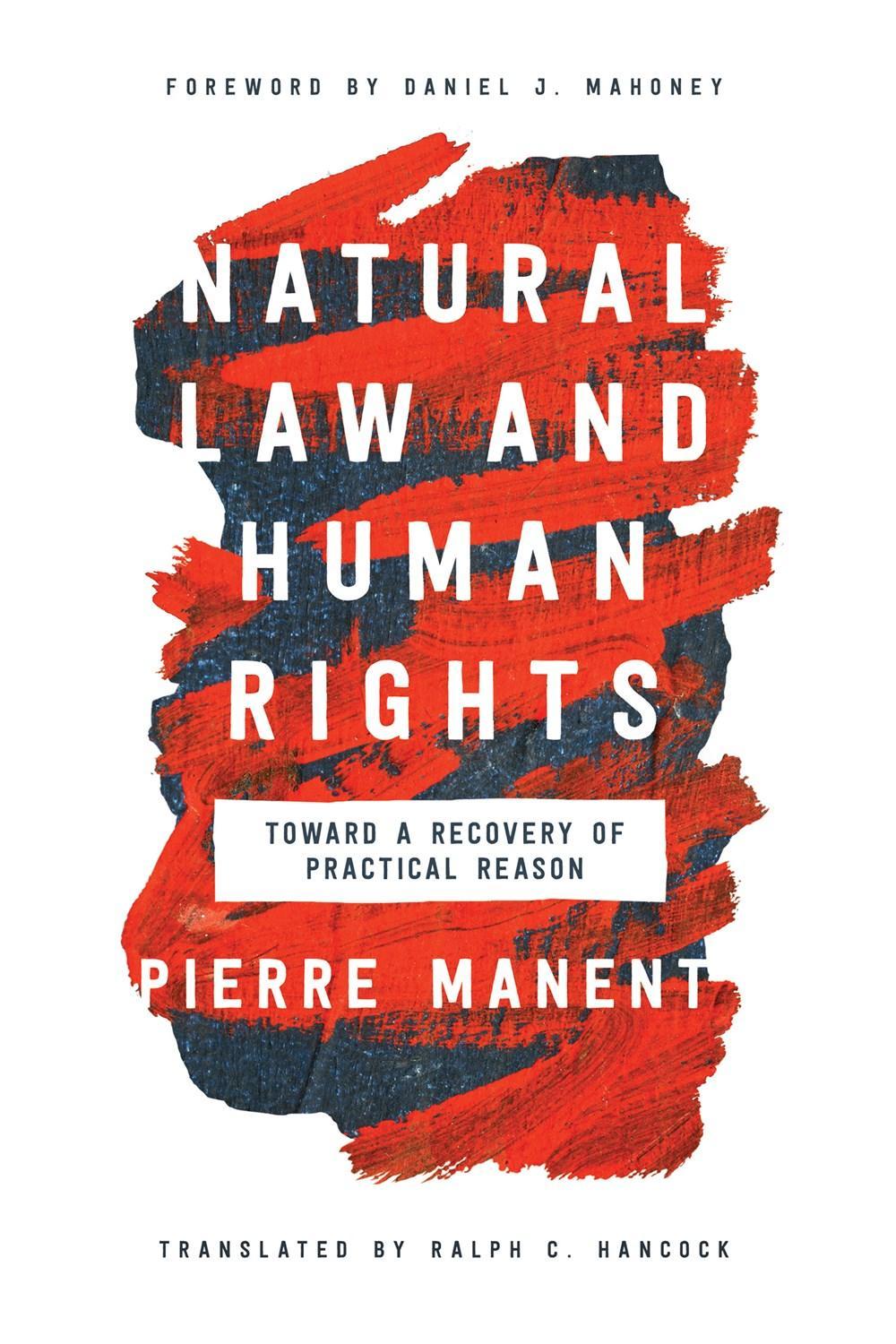
9780268107222 Pub Date: 2/15/21
$25.00
176 Pages
8.5 in H | 5.5 in W
Pierre Manent, Ralph C. Hancock
Summary
This first English translation of Pierre Manent’s profound and strikingly original book La loi naturelle et les droits de l’homme is a reflection on the central question of the Western political tradition. In six chapters, developed from the prestigious Étienne Gilson lectures at the Institut Catholique de Paris, and in a related appendix, Manent contemplates the steady displacement of the natural law by the modern conception of human rights. He aims to restore the grammar of moral and political action, and thus the possibility of an authentically political order that is fully compatible with liberty. Manent boldly confronts the prejudices and dogmas of those who have repudiated the classical and Christian notion of “liberty under law” and in the process shows how groundless many contemporary appeals to human rights turn out to be. Manent denies that we can generate obligations from a condition of what Locke, Hobbes, and Rousseau call the “state of nature,” where human beings are absolutely free, with no obligations to others. In his view, our ever-more-imperial affirmation of human rights needs to be reintegrated into what he calls an “archic” understanding of human and political existence, where law and obligation are inherent in liberty and meaningful human action. Otherwise we are bound to act thoughtlessly and in an increasingly arbitrary or willful manner. Natural Law and Human Rights will engage students and scholars of politics, philosophy, and religion, and will captivate sophisticated readers who are interested in the question of how we might reconfigure our knowledge of, and talk with one another about, politics.
Contributor Bio
Pierre Manent is professor emeritus of political philosophy at the École des Hautes Études en Sciences Sociales. He is the author of numerous books, including Montaigne: Life without Law (University of Notre Dame Press, 2020).
Ralph C. Hancock is professor of political science at Brigham Young University
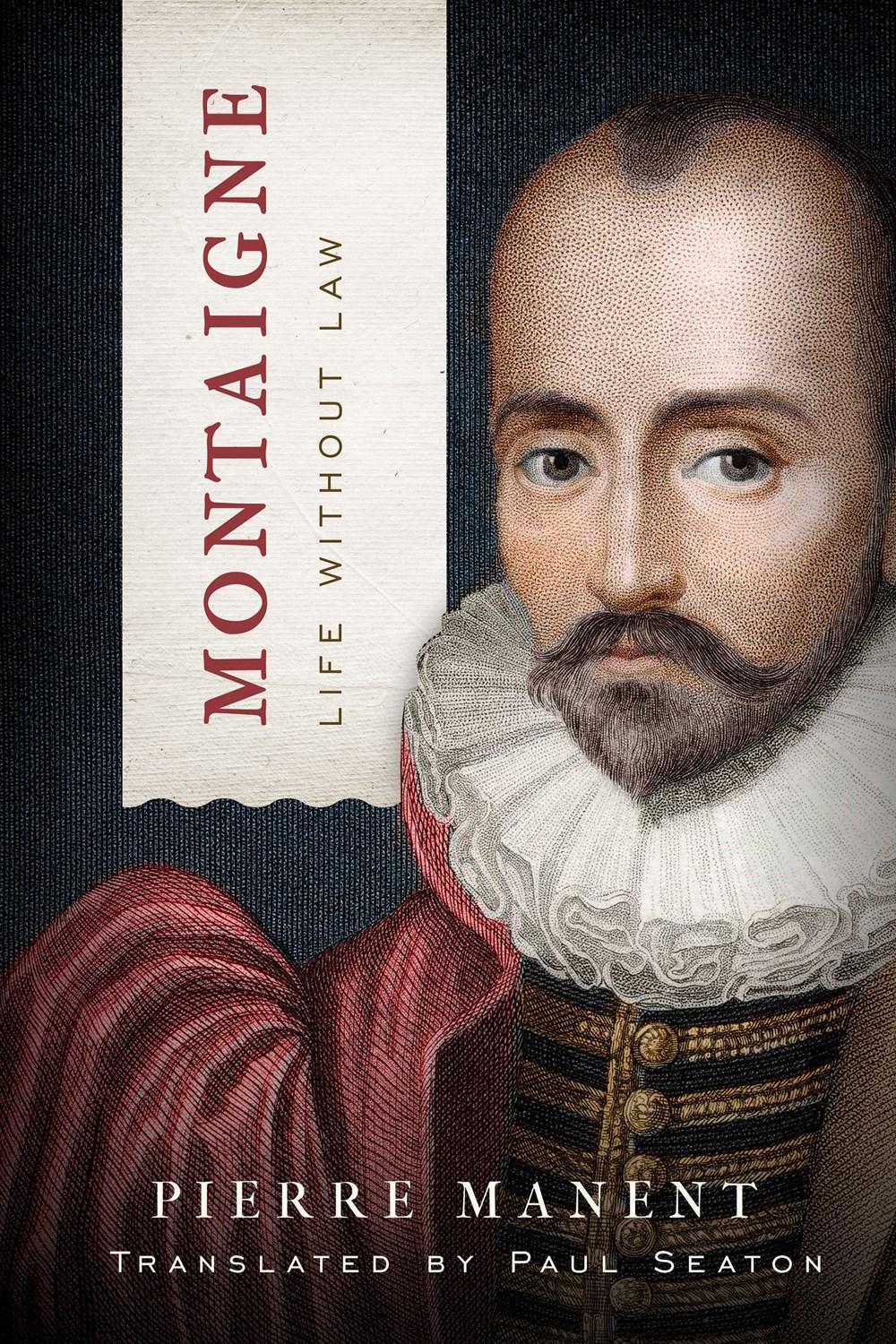
Pierre Manent, Paul Seaton
Summary
In Montaigne: Life without Law, originally published in French in 2014 and now translated for the first time into English by Paul Seaton, Pierre Manent provides a careful reading of Montaigne’s three-volume work Essays. Although Montaigne’s writings resist easy analysis, Manent finds in them a subtle unity, and demonstrates the philosophical depth of Montaigne’s reflections and the distinctive, even radical, character of his central ideas. To show Montaigne’s unique contribution to modern philosophy, Manent compares his work to other modern thinkers, including Machiavelli, Hobbes, Pascal, and Rousseau. What does human life look like without the imposing presence of the state? asks Manent. In raising this question about Montaigne’s Essays, Manent poses a question of great relevance to our contemporary situation. He argues that Montaigne’s philosophical reflections focused on what he famously called la condition humaine, the human condition. Manent tracks Montaigne’s development of this fundamental concept, focusing especially on his reworking of pagan and Christian understandings of virtue and pleasure, disputation and death. Bringing new form and content together, a new form of thinking and living is presented by Montaigne’s Essays, a new model of a thoughtful life from one of the unsung founders of modernity.
Throughout, Manent suggests alternatives and criticisms, some by way of contrasts with other thinkers, some in his own name. This is philosophical engagement at a very high level. In showing the unity of Montaigne’s work, Manent’s study will appeal especially to students and scholars of political theory, the history of modern philosophy, modern literature, and the origins of modernity.
Contributor
Pierre Manent is professor emeritus of political philosophy at the École des Hautes Études en Sciences Sociales. He is the author of numerous books, including Natural Law and Human Rights: Toward a Recovery of Practical Reason (University of Notre Dame Press, 2020).
Paul Seaton is the Richard and Barbara Fisher Professor of Philosophy at St. Mary’s Seminary & University
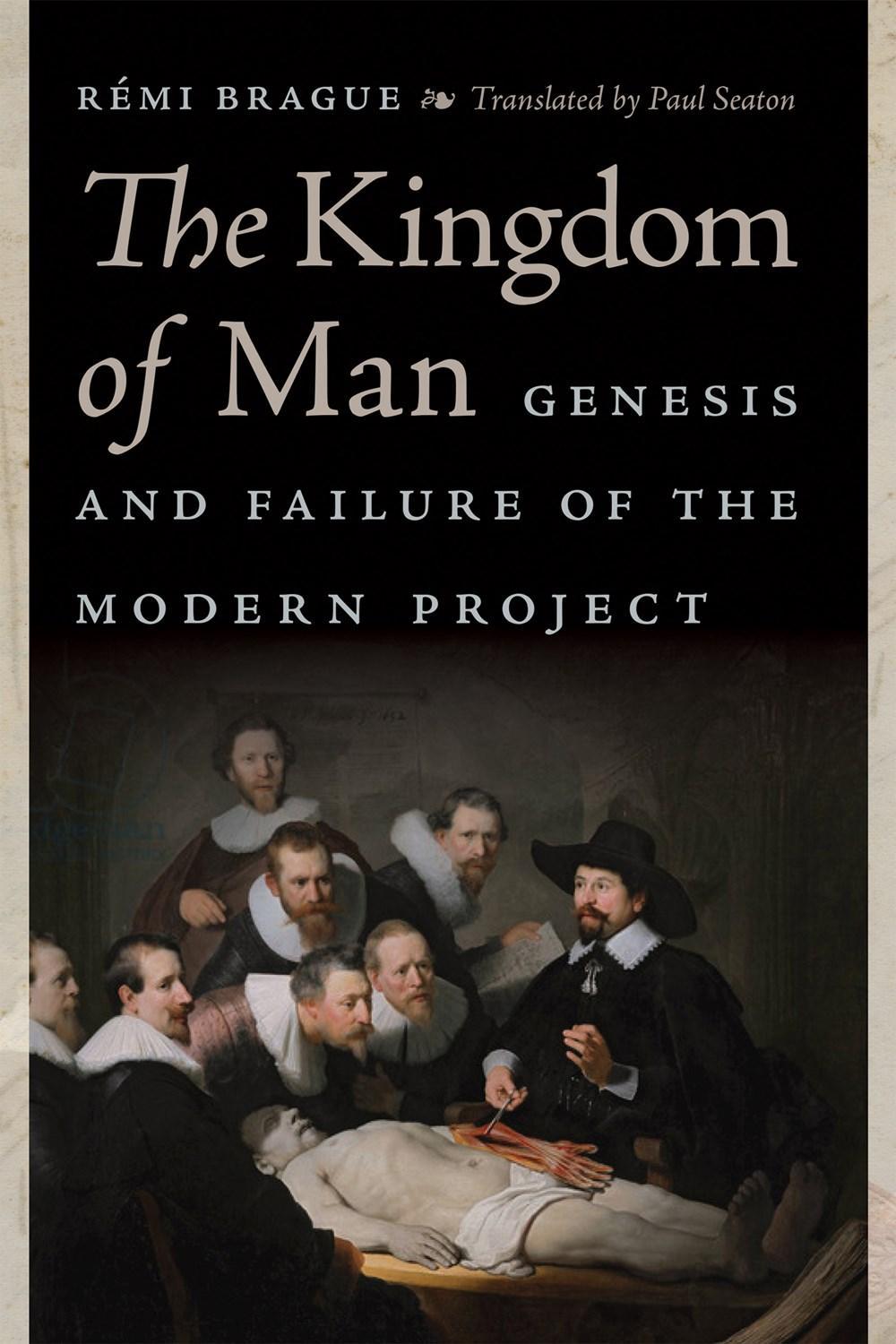
9780268104269
Pub Date: 2/15/21
$30.00
352
Rémi Brague, Paul Seaton
Summary
Was humanity created, or do humans create themselves? In this eagerly awaited English translation of Le Règne de l’homme, the last volume of Rémi Brague's trilogy on the philosophical development of anthropology in the West, Brague argues that, with the dawn of the Enlightenment, Western societies rejected the transcendence of the past and looked instead to the progress fostered by the early modern present and the future. As scientific advances drained the cosmos of literal mystery, humanity increasingly devalued the theophilosophical mystery of being in favor of omniscience over one’s own existence. Brague narrates the intellectual disappearance of the natural order, replaced by a universal chaos upon which only humanity can impose order; he cites the vivid histories of the nation-state, economic evolution into capitalism, and technology as the tools of this new dominion, taken up voluntarily by humans for their own ends rather than accepted from the deity for a divine purpose.
Brague’s tour de force begins with the ancient and medieval confidence in humanity as the superior creation of Nature or of God, epitomized in the biblical wish of the Creator for humans to exert stewardship over the earth. He sees the Enlightenment as a transition period, taking as a given that humankind should be masters of the world but rejecting the imposition of that duty by a deity Before the Enlightenment, who the creator was and whom the creator dominated were clear. With the advance of modernity and banishment of the Creator, who was to be dominated? Today, Brague argues, “our humanism . . . is an anti-antihumanism, rather than a direct affirmation of the goodness of the human.” He ends with a sobering question: does humankind still have the will to survive in an era of intellectual self-destruction?
Contributor Bio
Rémi Brague is emeritus professor of medieval and Arabic philosophy at the University of Paris I and Romano Guardini Chair Emeritus of Philosophy at Ludwig-Maximilians-Universität (Munich).
Paul Seaton is associate professor of philosophy at St. Mary's Seminary.

Medieval Wisdom for the Modern Age
Rémi Brague
Summary
In his first book composed in English, Rémi Brague maintains that there is a fundamental problem with modernity: we no longer consider the created world and humanity as intrinsically valuable. Curing Mad Truths, based on a number of Brague's lectures to English-speaking audiences, explores the idea that humanity must return to the Middle Ages. Not the Middle Ages of purported backwardness and barbarism, but rather a Middle Ages that understood creation—including human beings—as the product of an intelligent and benevolent God. The positive developments that have come about due to the modern project, be they health, knowledge, freedom, or peace, are not grounded in a rational project because human existence itself is no longer the good that it once was. Brague turns to our intellectual forebears of the medieval world to present a reasoned argument as to why humanity and civilizations are goods worth promoting and preserving.
Curing Mad Truths will be of interest to a learned audience of philosophers, historians, and medievalists.
Contributor Bio
Rémi Brague is emeritus professor of medieval and Arabic philosophy at the University of Paris I and Romano Guardini Chair Emeritus of Philosophy at Ludwig-Maximilians-Universität (Munich). He is the author of a number of books, including The Kingdom of Man: Genesis and Failure of the Modern Project (University of Notre Dame Press, 2018).
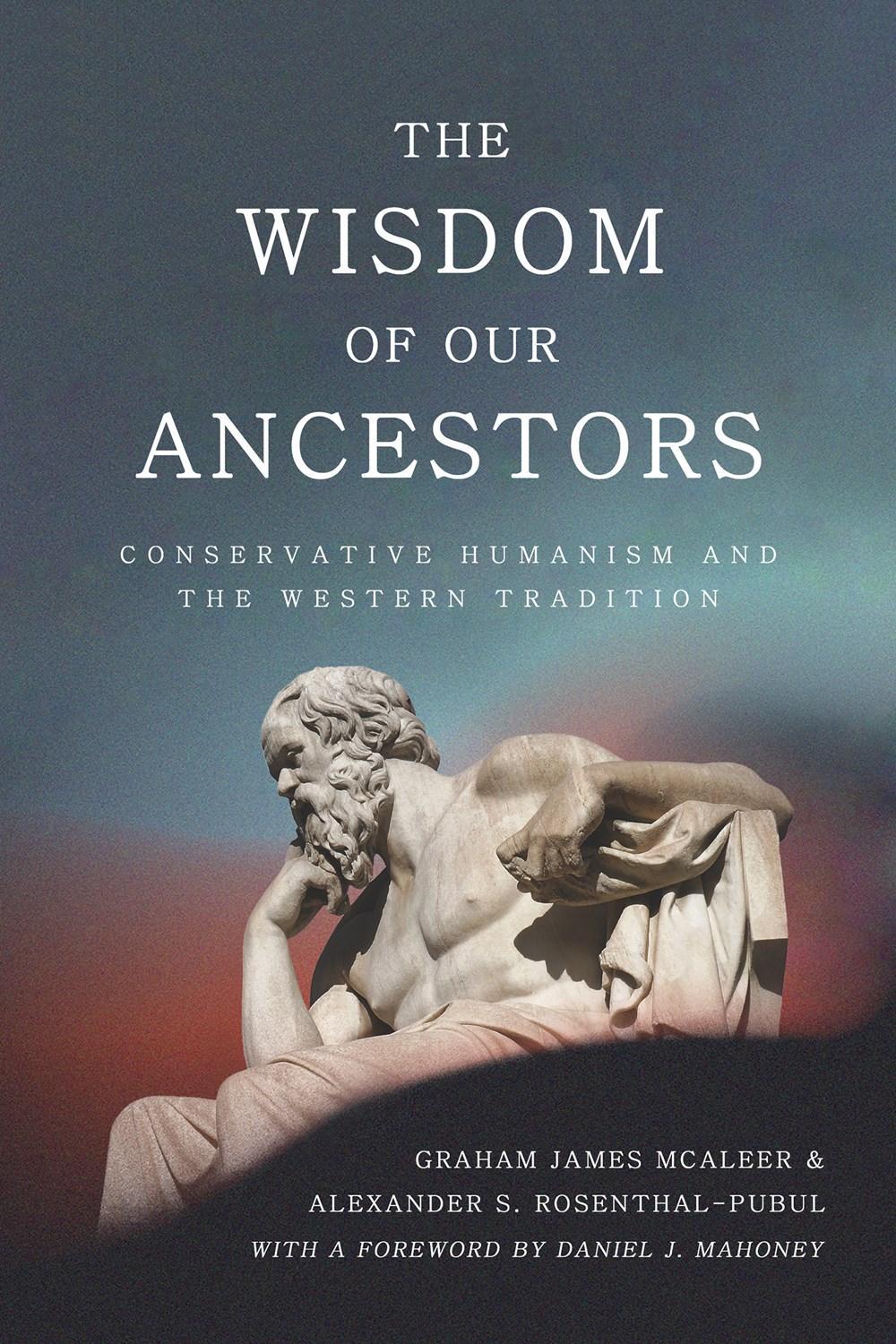
9780268207427
Pub Date: 12/1/23
$55.00
314 Pages
9 in H | 6 in W
Conservative Humanism and the Western Tradition
Graham James McAleer, Alexander S. Rosenthal-Pubul
Summary
In The Wisdom of Our Ancestors, the authors mount a powerful defense of Western civilization, sketching a fresh vision of conservatism in the present age.
In this book, Graham McAleer and Alexander Rosenthal-Pubul offer a renewed vision of conservatism for the twenty-first century. Taking their inspiration from the late Roger Scruton, the authors begin with a simple question: What, after all, is the meaning of conservatism? In reply, they make a case for a political orientation that they call “conservative humanism,” which threads a middle way between liberal universalism and its ideological alternatives. This vision of conservatism is rooted in the humanist tradition (that is, classical humanism, Christian humanism, and secular humanism), which the authors take to be the hallmark of Western civilizational identity. At its core, conservative humanism attempts to reconcile universal moral values (rooted in natural law) with local, particularist loyalties. In articulating this position, the authors show that the West—contra various contemporary critics—does, in fact, have a great deal of wisdom to offer.
The authors begin with an overview of the conservative thought world, situating their proposal relative to two major poles: liberalism and nationalism. They move on to show that conservatism must fundamentally take the form of a defense of humanism, the “master idea of our civilization.” The ensuing chapters articulate various aspects of conservative humanism, including its metaphysical, institutional, legal, philosophical, and economic dimensions. Largely rooted in the Anglo-Continental conservative tradition, the work offers fresh perspectives for North American conservatism.
Contributor Bio
Graham James McAleer is professor of philosophy at Loyola University Maryland and the author of a number of books, including Erich Przywara and Postmodern Natural Law
Alexander S. Rosenthal-Pubùl is lecturer at Johns Hopkins University’s Center for Advanced Governmental Studies and director of the Petrarch Centre, LTD.
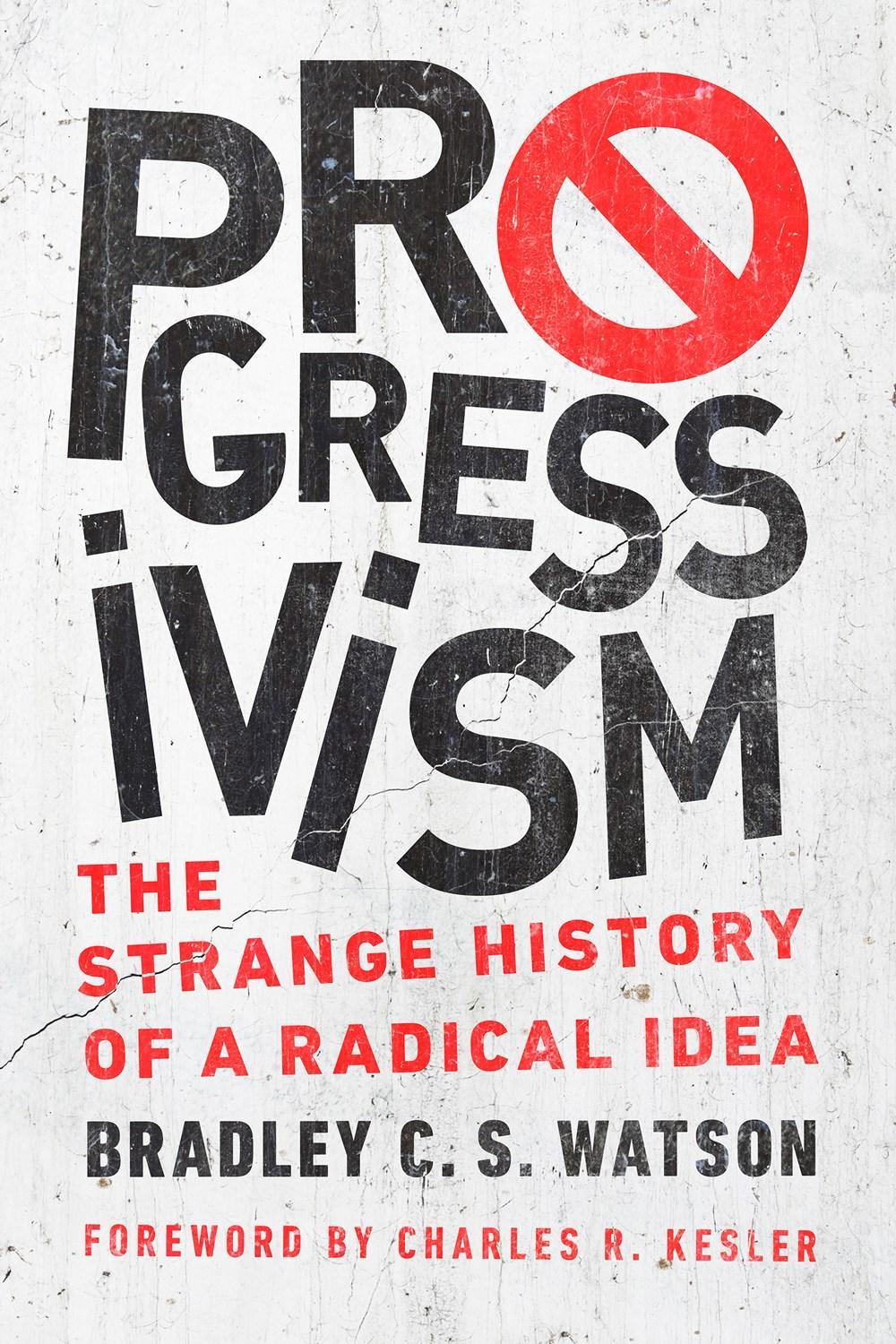
9780268106980
The Strange History of a Radical Idea
Bradley C. S. Watson
Summary
At its core this book is intellectual history, tracing the work of progressive historians as they in turn wrote the history of progressivism.
In Progressivism: The Strange History of a Radical Idea, Bradley C. S. Watson presents an intellectual history of American progressivism as a philosophical-political phenomenon, focusing on how and with what consequences the academic discipline of history came to accept and propagate it. This book offers a meticulously detailed historiography and critique of the insularity and biases of academic culture. It shows how the first scholarly interpreters of progressivism were, in large measure, also its intellectual architects, and later interpreters were in deep sympathy with their premises and conclusions. Too many scholarly treatments of the progressive synthesis were products of it, or at least were insufficiently mindful of two central facts: the hostility of progressive theory to the Founders’ Constitution and the tension between progressive theory and the realm of the private, including even conscience itself. The constitutional and religious dimensions of progressive thought—and, in particular, the relationship between the two—remained hidden for much of the twentieth century. This pathbreaking volume reveals how and why this scholarly obfuscation occurred. The book will interest students and scholars of American political thought, the Progressive Era, and historiography, and it will be a useful reference work for anyone in history, law, and political science.
Contributor Bio
Bradley C. S. Watson teaches at the Van Andel Graduate School of Government at Hillsdale College in Washington, D.C.. He is the author and editor of numerous books, including Living Constitution, Dying Faith: Progressivism and the New Science of Jurisprudence and Progressive Challenges to the American Constitution: A New Republic

9780268203269
Pub Date: 2/15/24
$30.00
216
Émile Perreau-Saussine, Nathan J. Pinkoski
Summary
This award-winning biography, now available for the first time in English, presents an illuminating introduction to Alasdair MacIntyre and locates his thinking in the intellectual milieu of twentiethcentury philosophy.
Winner of the prestigious 2005 Philippe Habert Prize, the late Émile Perreau-Saussine’s Alasdair MacIntyre: Une biographie intellectuelle stands as a definitive introduction to the life and work of one of today’s leading moral philosophers. With Nathan J. Pinkoski’s translation, this long-awaited, critical examination of MacIntyre’s thought is now available to English readers for the first time.
Amid the confusions and contradictions of our present philosophical landscape, few have provided the clarity of thought and shrewdness of diagnosis like Alasdair MacIntyre. In this study, Perreau-Saussine guides his readers through MacIntyre’s lifelong project by tracking his responses to liberalism’s limitations in light of the human search for what is good and true in politics, philosophy, and theology. The portrait that emerges is one of an intellectual giant who comes to oppose modern liberal individualism’s arguably singular focus on averting evil at the expense of a concerted pursuit of human goods founded upon moral and practical reasoning. Although throughout his career MacIntyre would engage with a number of theoretical and practical standpoints in service of his critique of liberalism, not the least of which was his early and later abandoned dalliance with Marxism, Perreau-Saussine convincingly shows how the Scottish philosopher came to hold that Aristotelian Thomism provides the best resources to counter what he perceives as the failure of the liberal project.
Contributor Bio
Émile Perreau-Saussine (1972–2010) was a lecturer in the Department of Politics and International Studies at the University of Cambridge.
Nathan J. Pinkoski is a research fellow and director of academic programs at the Zephyr Institute.
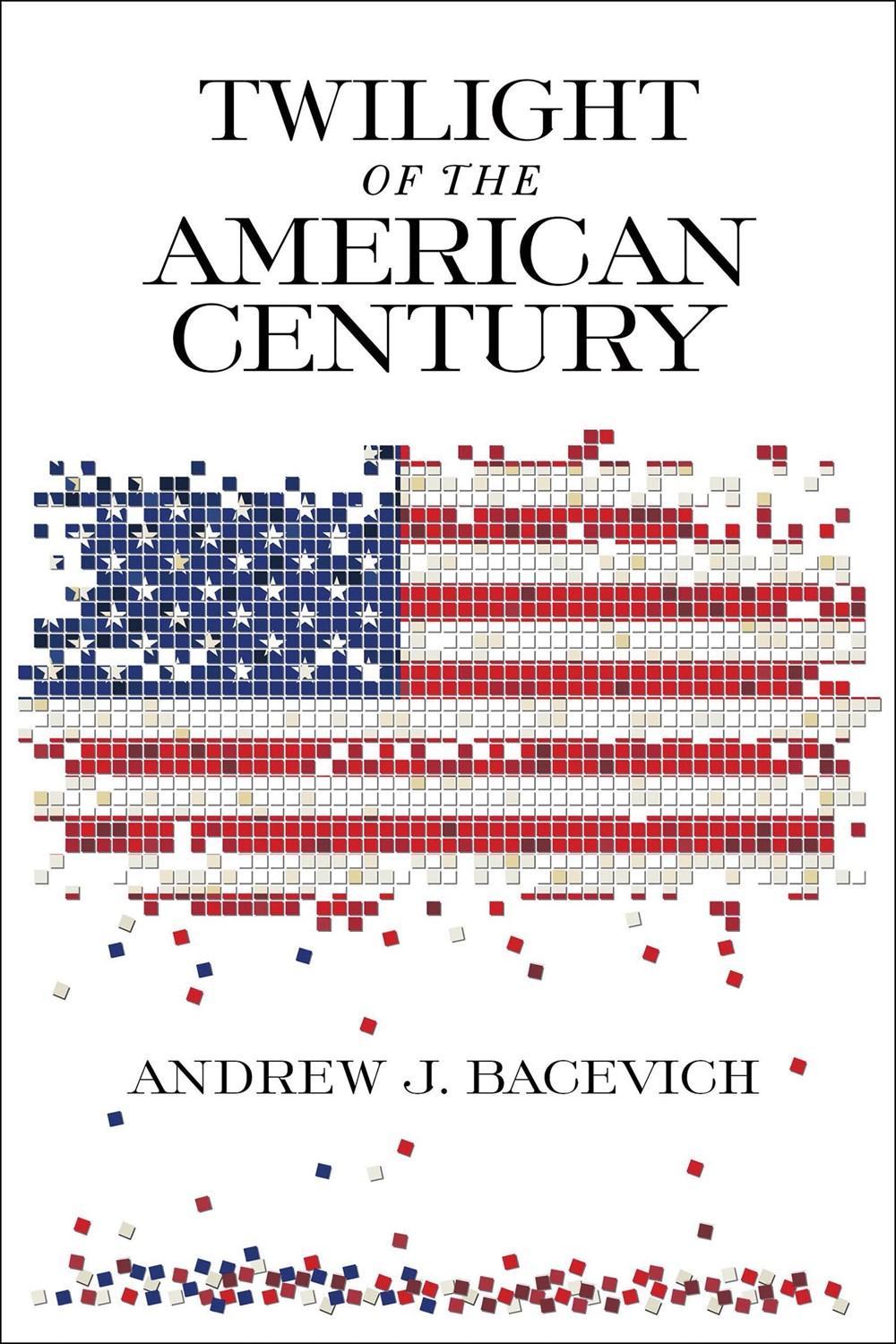
9780268104863
Andrew J. Bacevich
Summary
Andrew Bacevich is a leading American public intellectual, writing in the fields of culture and politics with particular attention to war and America’s role in the world. Twilight of the American Century is a collection of his selected essays written since 9/11. In these essays, Bacevich critically examines the U.S. response to the events of September 2001, as they have played out in the years since, radically affecting the way Americans see themselves and their nation’s place in the world.
Bacevich is the author of nearly a dozen books and contributes to a wide variety of publications, including Foreign Affairs, The Nation, Commonweal, Harper’s, and the London Review of Books. His op-eds have appeared in the New York Times, Washington Post, and the Wall Street Journal, among other newspapers. Prior to becoming an academic, he was a professional soldier. His experience as an Army officer informs his abiding concern regarding the misuse of American military power and the shortcomings of the U.S. military system. As a historian, he has tried to see the past differently, thereby making it usable to the present.
Bacevich combines the perspective of a scholar with the background of a practitioner. His views defy neat categorization as either liberal or conservative. He belongs to no “school.” His voice and his views are distinctive, provocative, and refreshing. Those with a focus on political and cultural developments and who have a critical interest in America's role in the world will be keenly interested in this book.
Contributor Bio
Andrew J. Bacevich is professor emeritus of history and international relations at Boston University and the author of numerous books, including America's War for the Greater Middle East: A Military History
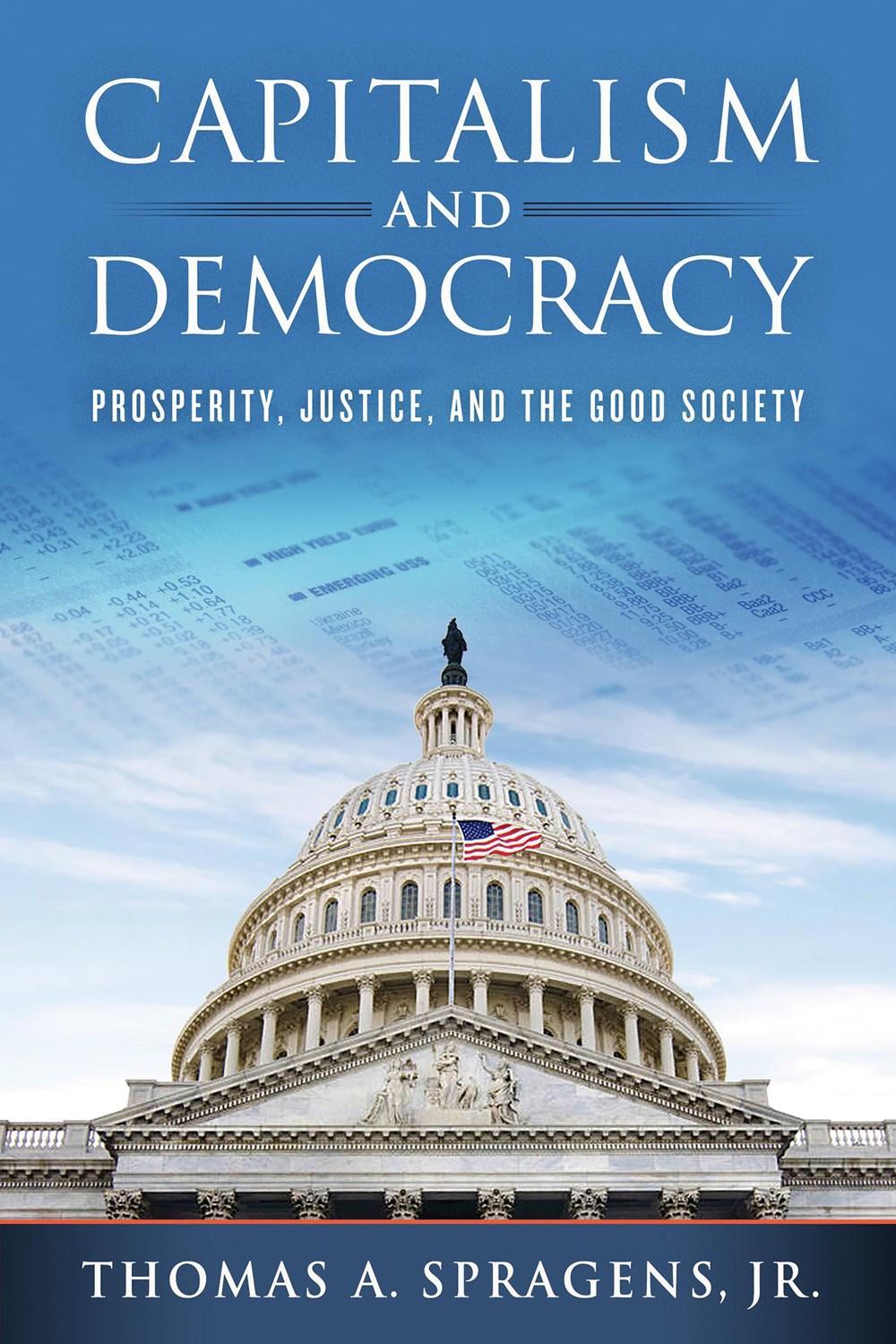
9780268200145
Pub Date: 3/1/21
$28.00
270 Pages
Science / History &
9 in H | 6 in W
Prosperity, Justice, and the Good Society
Thomas A. Spragens Jr.
Summary
This book serves as an introduction to the ongoing political debate about the relationship of capitalism and democracy.
In recent years, the ideological battles between advocates of free markets and minimal government, on the one hand, and adherents of greater democratic equality and some form of the welfare state, on the other hand, have returned in full force. Anyone who wants to make sense of contemporary American politics and policy battles needs to have some understanding of the divergent beliefs and goals that animate this debate. In Capitalism and Democracy, Thomas A. Spragens, Jr., examines the opposing sides of the free market versus welfare state debate through the lenses of political economy, moral philosophy, and political theory. He asks: Do unchecked markets maximize prosperity, or do they at times produce wasteful and damaging outcomes? Are market distributions morally appropriate, or does fairness require some form of redistribution? Would a society of free markets and minimal government be the best kind of society possible, or would it have serious problems? After leading the reader through a series of thought experiments designed to compare and clarify the thought processes and beliefs held by supporters of each side, Spragens explains why there are no definitive answers to these questions. He concludes, however, that some answers are better than others, and he explains why his own judgement is that a vigorous free marketplace provides great benefits to a democratic society, both economically and politically, but that it also requires regulation and supplementation by collective action for a society to maximize prosperity, to mitigate some of the unfairness of the human condition, and to be faithful to important democratic purposes and ideals. This engaging and accessible book will interest students and scholars of political economy, democratic theory, and theories of social justice. It will also appeal to general readers who are seeking greater clarity and understanding of contemporary debates about government's role in the economy.
Contributor Bio
Thomas A. Spragens, Jr., (1942–2023) was professor of political science at Duke University.
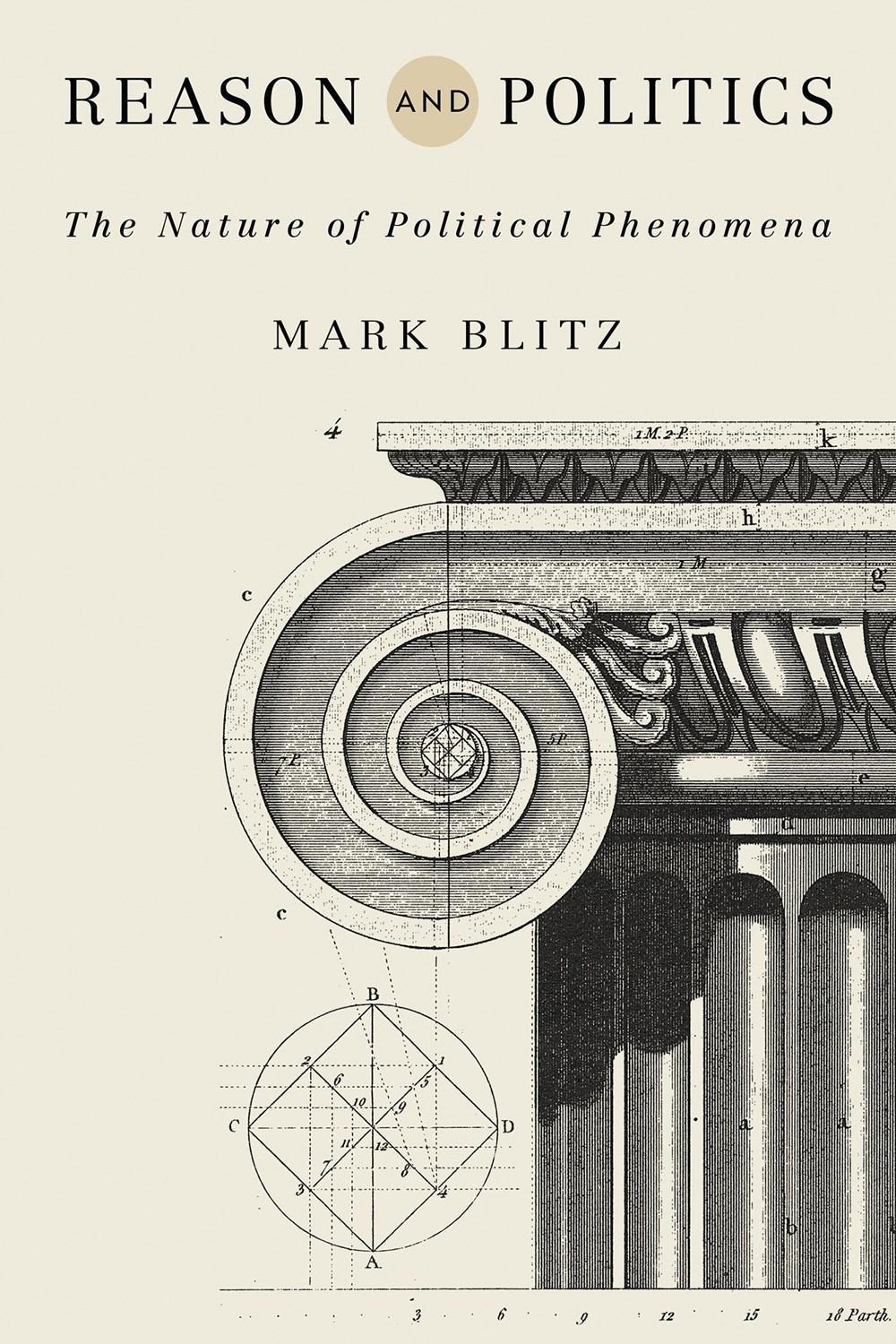
The Nature of Political Phenomena
Mark Blitz
Reason and Politics explores the central phenomena of political life and, therefore, of human affairs in general.
Amidst the seemingly endless books on more and more narrowly specialized topics within politics, Mark Blitz offers something very different. Reason and Politics: The Nature of Political Phenomena examines the central phenomena of political life in order to clarify their meaning, source, and range. Blitz gives particular attention to the notions of freedom, rights, justice, virtue, power, property, nationalism, and the common good. At the same time, Blitz shows how, in order to understand political matters correctly, we must also understand how they affect us directly. We do not merely theorize over political questions; we experience them. Blitz also considers matters such as the powers and motions of the soul, the nature of experience, and the varieties of pleasure and attachment.
Living at a time when technological change makes it difficult even to claim convincingly that there are defining human characteristics and natural limits that we simply cannot change, Reason and Politics proposes that there are in fact basic phenomena not only in politics, but that make up human affairs as such. In examining these central phenomena in a lucid and articulate manner, this book makes a unique contribution not only to the study of politics but also to the study of philosophy more broadly. It will interest undergraduate and graduate students, political scientists and philosophers, those interested in politics, and general readers.
Contributor Bio
Mark Blitz is the Fletcher Jones Professor of Political Philosophy at Claremont McKenna College. He is the author of numerous books, including Conserving Liberty, Plato’s Political Philosophy, and Duty Bound: Responsibility and American Public Life.
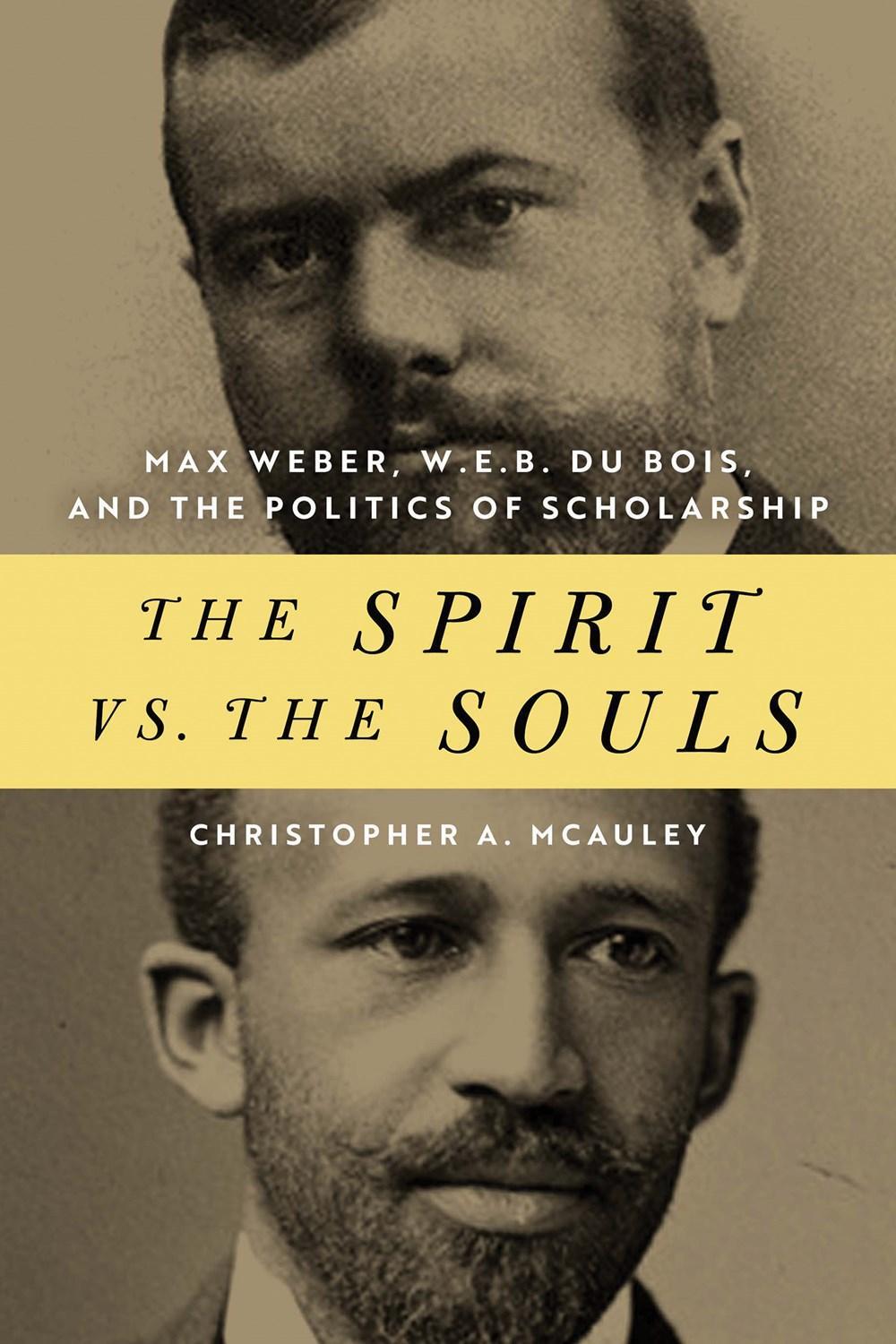
9780268106010
Pub Date: 8/31/19
$45.00
226 Pages
9 in H | 6 in W
Max Weber, W. E. B. Du Bois, and the Politics of Scholarship
Christopher A. McAuley
Despite the extensive scholarship on Max Weber (1864–1920) and W. E. B. Du Bois (1868–1963), very little of it examines the contact between the two founding figures of Western sociology. Drawing on their correspondence from 1904 to 1906, and comparing the sociological work that they produced during this period and afterward, The Spirit vs. the Souls: Max Weber, W. E. B. Du Bois, and the Politics of Scholarship examines for the first time the ideas that Weber and Du Bois shared on topics such as sociological investigation, race, empire, unfree labor, capitalism, and socialism. What emerges from this examination is that their ideas on these matters clashed far more than they converged, contrary to the tone of their letters and to the interpretations of the few scholars who have commented on the correspondence between Weber and Du Bois.
Christopher McAuley provides close readings of key texts by the two scholars, including Weber's The Protestant Ethic and the Spirit of Capitalism and Du Bois's The Souls of Black Folk, to demonstrate their different views on a number of issues, including the economic benefits of unfree labor in capitalism. The book addresses the distinctly different treatment of the two figures's political sympathies in past scholarship, especially that which discredits some of Du Bois's openly antiracist academic work while failing to consider the markedly imperialistserving content of some of Weber's. McAuley argues for the acknowledgment and demarginalization of Du Bois's contributions to the scholarly world that academics have generally accorded to Weber. This book will interest students and scholars of black studies, history, and sociology for whom Du Bois and Weber are central figures.
Contributor Bio
Christopher A. McAuley is associate professor in the Department of Black Studies at the University of California, Santa Barbara. He is the author of The Mind of Oliver C. Cox (University of Notre Dame Press, 2004).
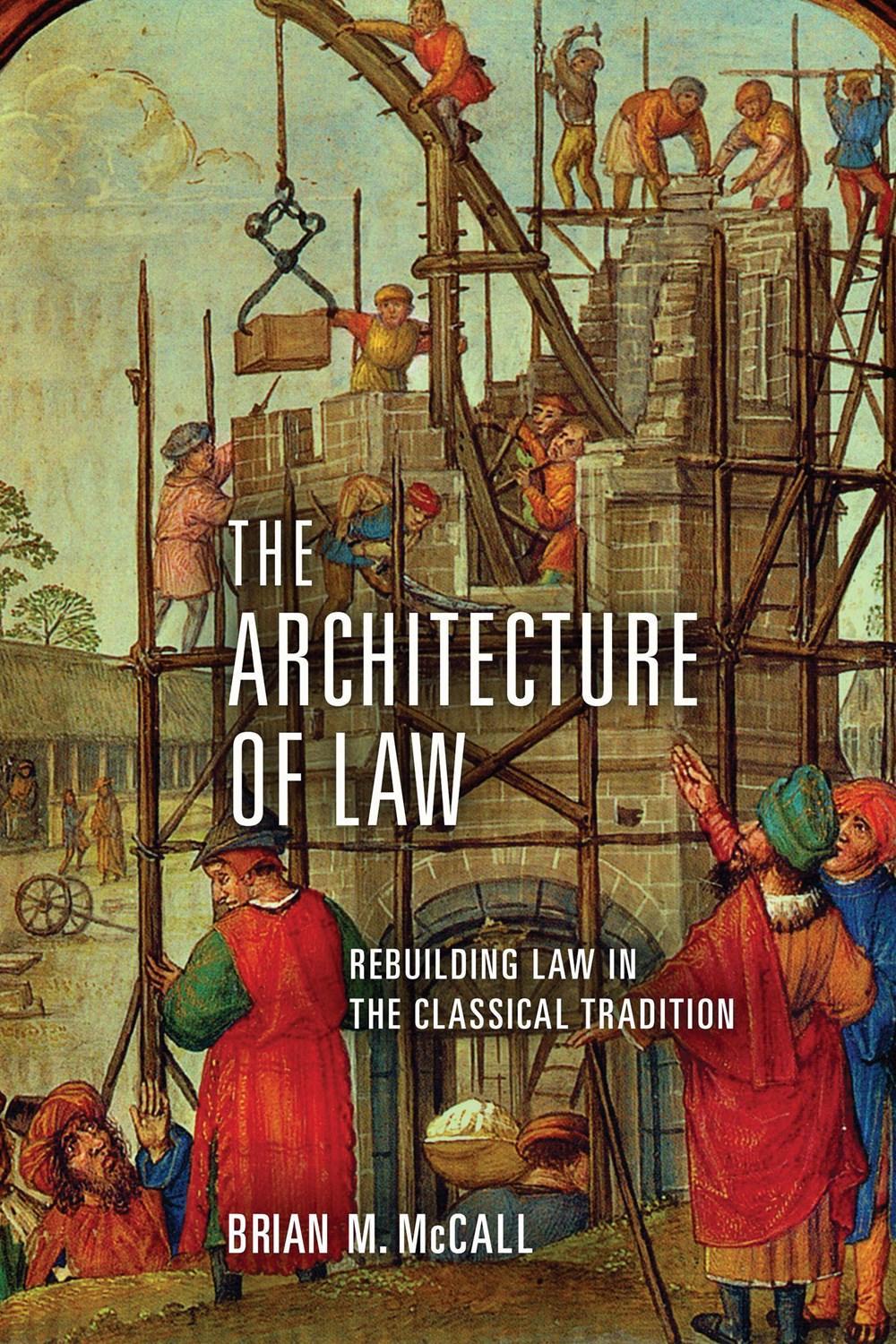
Brian M. McCall
Summary
This book argues that classical natural law jurisprudence provides a superior answer to the questions “What is law?” and “How should law be made?” rather than those provided by legal positivism and “new” natural law theories.
What is law? How should law be made? Using St. Thomas Aquinas’s analogy of God as an architect, Brian McCall argues that classical natural law jurisprudence provides an answer to these questions far superior to those provided by legal positivism or the “new” natural law theories. The Architecture of Law explores the metaphor of law as an architectural building project, with eternal law as the foundation, natural law as the frame, divine law as the guidance provided by the architect, and human law as the provider of the defining details and ornamentation. Classical jurisprudence is presented as a synthesis of the work of the greatest minds of antiquity and the medieval period, including Cicero, Aristotle, Gratian, Augustine, and Aquinas; the significant texts of each receive detailed exposition in these pages. Along with McCall’s development of the architectural image, he raises a question that becomes a running theme throughout the book: To what extent does one need to know God to accept and understand natural law jurisprudence, given its foundational premise that all authority comes from God? The separation of the study of law from knowledge of theology and morality, McCall argues, only results in the impoverishment of our understanding of law. He concludes that they must be reunited in order for jurisprudence to flourish. This book will appeal to academics, students in law, philosophy, and theology, and to all those interested in legal or political philosophy.
Contributor Bio
Brian McCall holds the Orpha and Maurice Merrill Chair in Law at the University of Oklahoma College of Law.
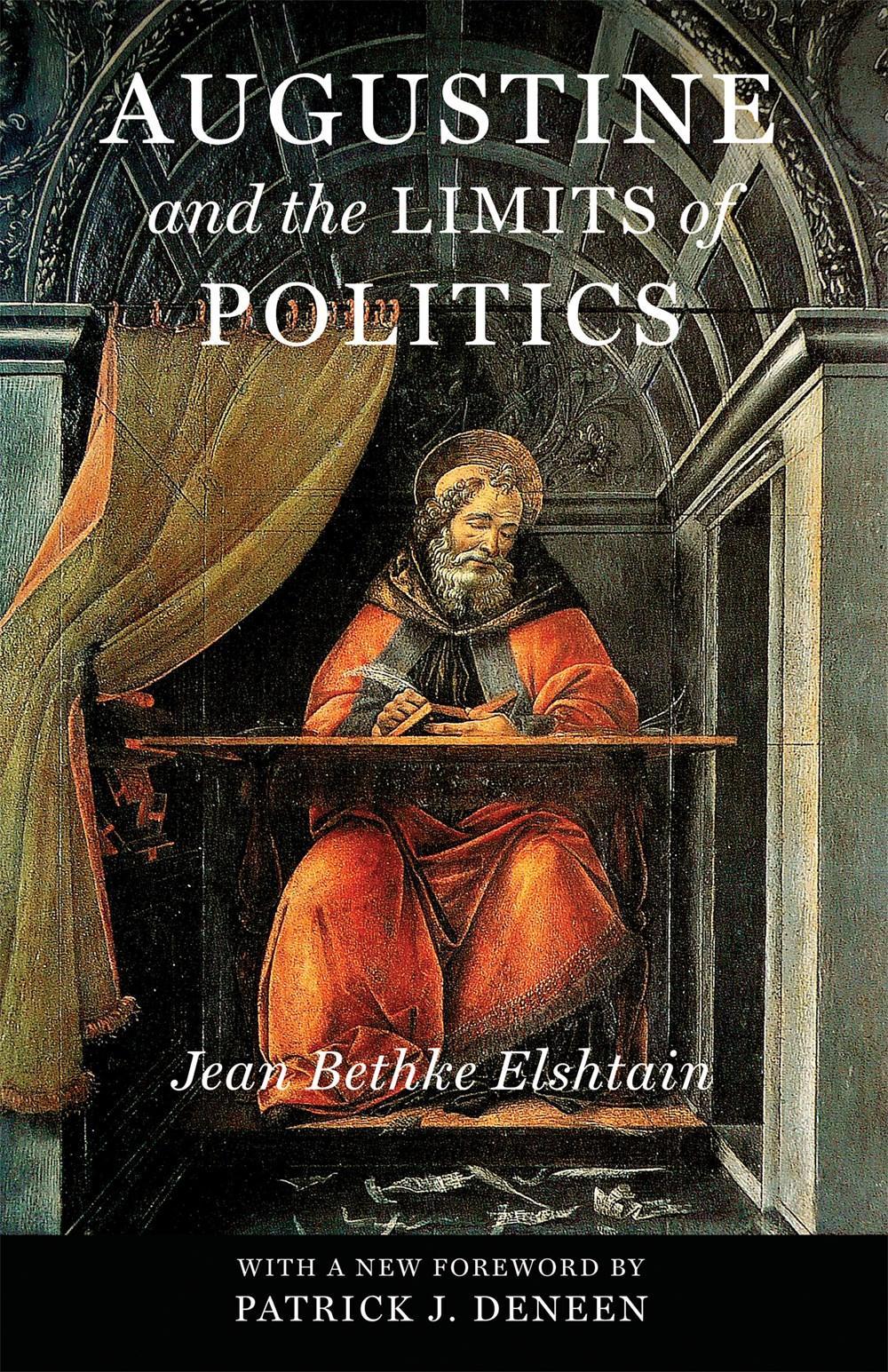
9780268020019
$25.00
174 Pages
/ History &
Series: Catholic Ideas for a
8.5 in H | 5.5 in W
Jean Bethke Elshtain
Summary
Jean Bethke Elshtain brings Augustine's thought into the contemporary political arena and presents an Augustine who created a complex moral map that offers space for loyalty, love, and care, as well as a chastened form of civic virtue. The result is a controversial book about one of the world's greatest and most complex thinkers whose thought continues to haunt all of Western political philosophy. What is our business "within this common mortal life?" Augustine asks and bids us to ask ourselves. What can Augustine possibly have to say about the conditions that characterize our contemporary society and appear to put democracy in crisis? Who is Augustine for us now and what do his words have to do with political theory? These are the underlying questions that animate Jean Bethke Elshtain's fascinating engagement with the thought and work of Augustine, the ancient thinker who gave no political theory per se and refused to offer up a positive utopia. In exploring the questions, Why Augustine, why now?
Elshtain argues that Augustine's great works display a canny and scrupulous attunement to the here and now and the very real limits therein. She discusses other aspects of Augustine's thought as well, including his insistence that no human city can be modeled on the heavenly city, and further elaborates on Hannah Arendt's deep indebtedness to Augustine's understanding of evil. Elshtain also presents Augustine's arguments against the pridefulness of philosophy, thereby linking him to later currents in modern thought, including Wittgenstein and Freud.
Contributor Bio
Jean Bethke Elshtain (1941–2013) was one of the nation's most prominent and provocative thinkers on religion, political philosophy, and ethics. She was the Laura Spelman Rockefeller Professor of Social and Political Ethics in the Divinity School, Political Science, and the Committee on International Relations at the University of Chicago. She was the author of numerous books, including Sovereignty: God, State, and Self.
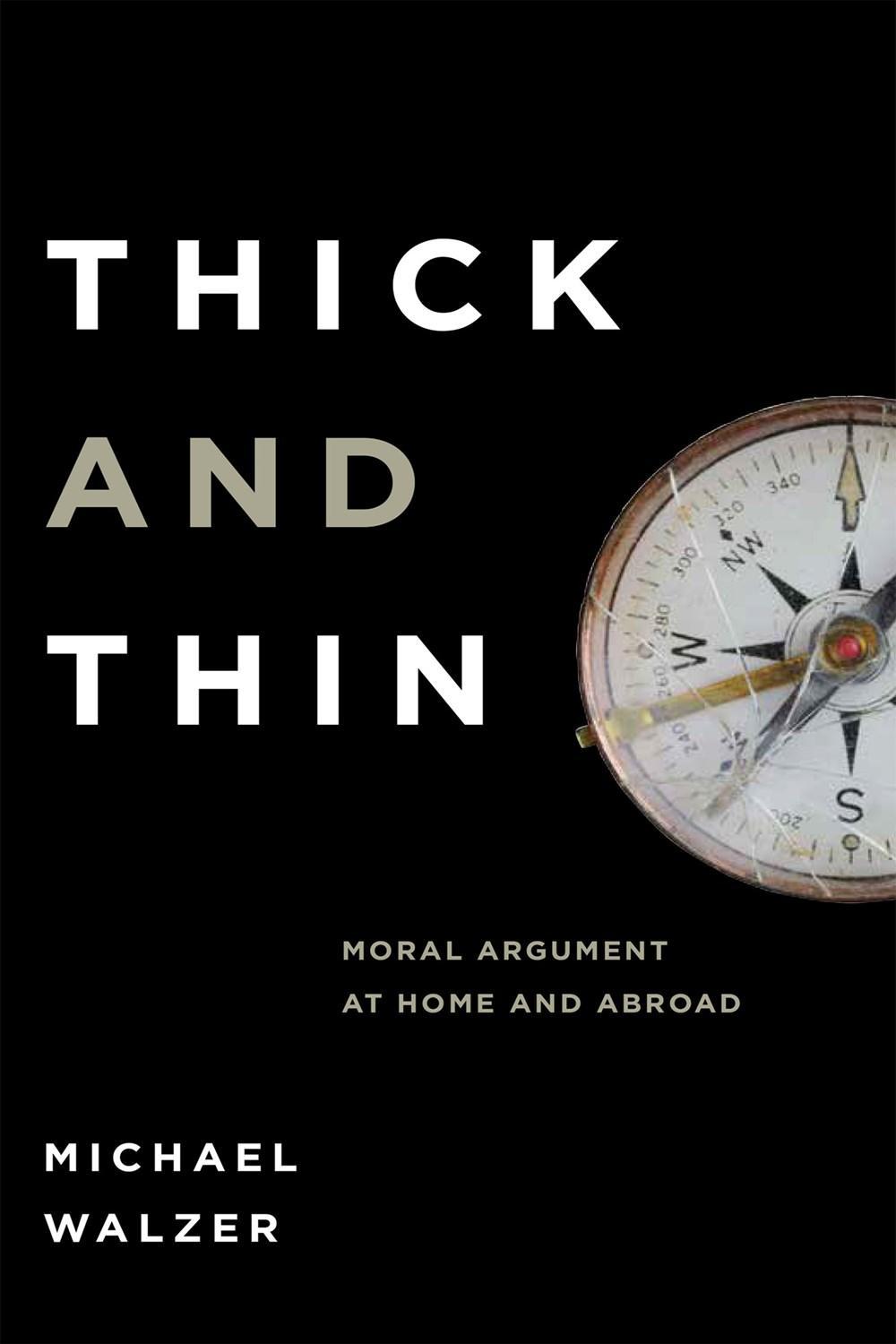
Thick and Thin
Moral Argument at Home and Abroad
Michael Walzer
Summary
Thick and Thin: Moral Argument at Home and Abroad frames ideas about justice, social criticism, and national identity in light of the new political world that has arisen in the past three decades.
Michael Walzer focuses on two different but interrelated kinds of moral argument: maximalist and minimalist, local and universal—thick and thin. He revises and extends the arguments in his influential Spheres of Justice to reflect his additional analysis and interrogation as well as the shift in world politics. This edition has a new preface and afterword, written by the author, describing how the reasoning of the book connects with arguments he made in Just and Unjust Wars. Walzer’s highly literate and fascinating blend of philosophy and historical analysis will appeal to any and all intelligent readers who want to understand the arguments about the morality of warfare and engage with them.
Contributor Bio
Michael Walzer is Emeritus Professor of the Institute for Advanced Study at Princeton University. He is the author of Arguing About War, On Toleration, and Just and Unjust Wars

Pub Date: 4/30/18
$40.00
Politics, Ethics, and Society
Debra Erickson, Michael Le Chevallier
Summary
Jean Bethke Elshtain (1941–2013) was a noted ethicist, political philosopher, and public intellectual. Her four decades of scholarship defy easy categorization: she wrote both seminal works of theory and occasional pieces for the popular press, and she was variously viewed as radical and conservative, feminist and traditionalist, anti-war and pro-interventionist. Jean Bethke Elshtain: Politics, Ethics, and Society is the first attempt to evaluate Elshtain’s entire published body of work and to give shape to a wide-ranging scholarly career, with an eye to her work’s ongoing relevance. This collection of essays brings together scholars and public intellectuals from across the spectrum of disciplines in which Elshtain wrote. The volume is organized around four themes, which identify the central concerns that shaped Elshtain’s thought: (1) the nature of politics; (2) politics and religion; (3) international relations and just war; and (4) the end(s) of political life. The essays have been chosen not only for the expertise of each contributor as it bears on Elshtain’s work but also for their interpretive and analytic scope. This volume introduces readers to the work of a key contemporary thinker, using Elshtain’s writing as a lens through which to reflect on central political and scholarly debates of the last few decades. Jean Bethke Elshtain will be of great interest to specialists researching Elshtain and to scholars of multiple disciplines, particularly political theory, international relations, and religion.
Contributors: Debra Erickson Sulai, Michael Le Chevallier, Robin W. Lovin, William A. Galston, Arlene W. Saxonhouse, Don Browning, Peter Berkowitz, Nancy J. Hirschmann, Michael Kessler, Lisa Sowle Cahill, Nigel Biggar, Gilbert Meilaender, Eric Gregory, Daniel Philpott, Marc LiVecche, Nicholas Rengger, John D. Carlson, Chris Brown, Michael Walzer, James Turner Johnson, Erik Owens, Francis Fukuyama, Carl Gershman, and Patrick J. Deneen.
Contributor Bio
Michael Le Chevallier is a Ph.D. candidate in religious ethics at the University of Chicago Divinity School. Debra Erickson is an instructor in philosophy at Bloomsburg University.
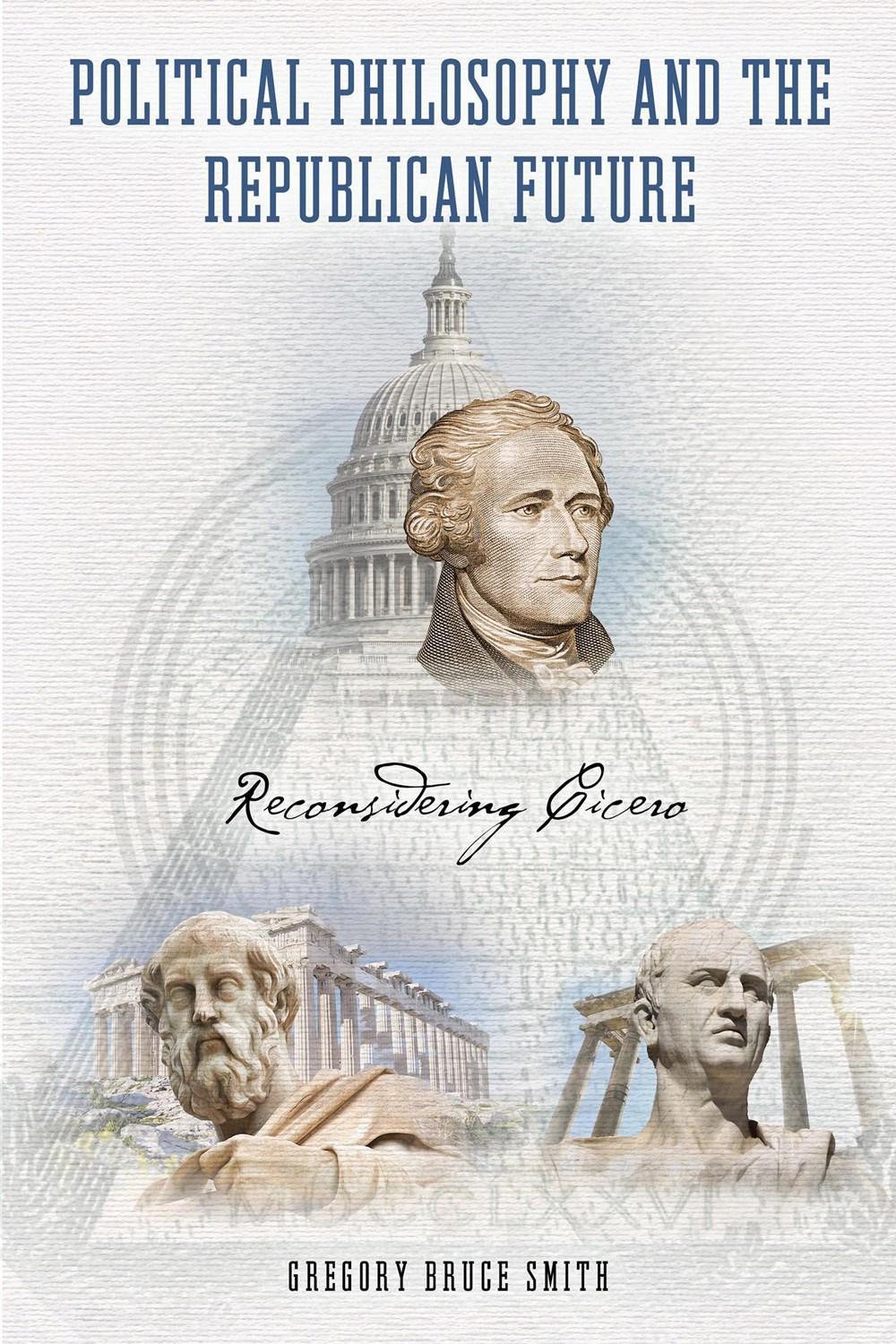
Gregory Bruce Smith
Are we moving inevitably into an irreversible era of postnationalism and globalism? In Political Philosophy and the Republican Future, Gregory Bruce Smith asks, if participation in self-government is not central to citizens’ vision of the political good, is despotism inevitable? Smith's study evolves around reconciling the early republican tradition in Greece and Rome as set out by authors such as Aristotle and Cicero, and a more recent tradition shaped by thinkers such as Machiavelli, Locke, Montesquieu, Adam Smith, Madison, and Rousseau. Gregory Smith adds a further layer of complexity by analyzing how the republican and the larger philosophical tradition have been called into question by the critiques of Nietzsche, Heidegger, and their various followers.
For Smith, the republican future rests on the future of the tradition of political philosophy. In this book he explores the nature of political philosophy and the assumptions under which that tradition can be an ongoing tradition rather than one that is finished. He concludes that political philosophy must recover its phenomenological roots and attempt to transcend the self-legislating constructivism of modern philosophy. Forgetting our past traditions, he asserts, will only lead to despotism, the true enemy of all permutations of republicanism. Cicero's thought is presented as a classic example of the phenomenological approach to political philosophy. A return to the architectonic understanding of political philosophy exemplified by Cicero is, Smith argues, the key to the republican future.
Contributor Bio
Gregory Bruce Smith is professor of political science and philosophy at Trinity College. He is the author of a number of books, including Nietzsche, Heidegger, and the Transition to Postmodernity and Martin Heidegger: Paths Taken, Paths Opened.
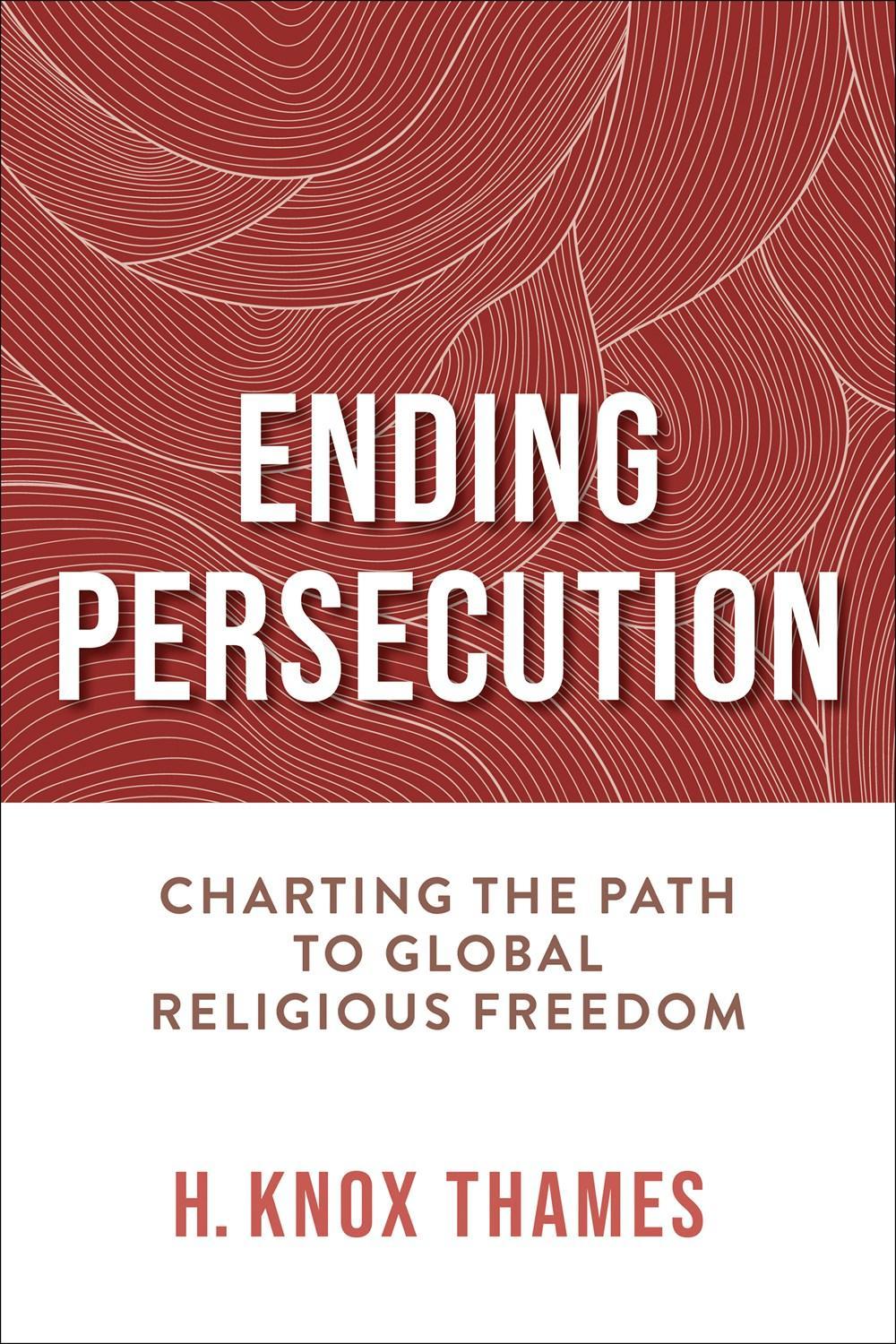
9780268208677 Pub Date: 9/1/24
$45.00
Charting the Path to Global Religious Freedom
H.Knox Thames
Summary
Building on his extensive experience in the U.S. government and as an international human rights lawyer, H. Knox Thames provides fresh, decisive strategies to advance religious freedom for all.
Today, a scourge of religious persecution is impacting every faith community around the globe. In Ending Persecution: Charting the Path to Global Religious Freedom, author H. Knox Thames takes readers to some of the world's most repressive countries in the Middle East and Asia, exposing the harsh reality of religious repression. Thames breaks down the devastating litany of human rights abuses faced by religious groups in these countries into four major types of persecution: terrorism in the Middle East, government-sponsored genocides in China and Burma, cultural changes due to extremism in Pakistan, and tyrannical democracy in Nepal and India.
Ending Persecution recounts the range of tools and policies that the U.S. government has used to encourage reform in repressive governments, leverage U.S. influence for the oppressed, and to reflect the best of American values of diversity, minority rights, and religious freedom. To help the persecuted in the twenty-first century, Thames argues, the United States must revitalize its approach and recommit to ending oppression by supporting coalition building and interfaith tolerance.
Contributor Bio
H.Knox Thames is an international human rights lawyer and advocate who served for twenty years in the U.S. government across multiple administrations, most recently in the Obama and Trump administrations as a State Department special envoy for religious minorities in the Middle East and South/Central Asia. He is currently a senior fellow at Pepperdine University.
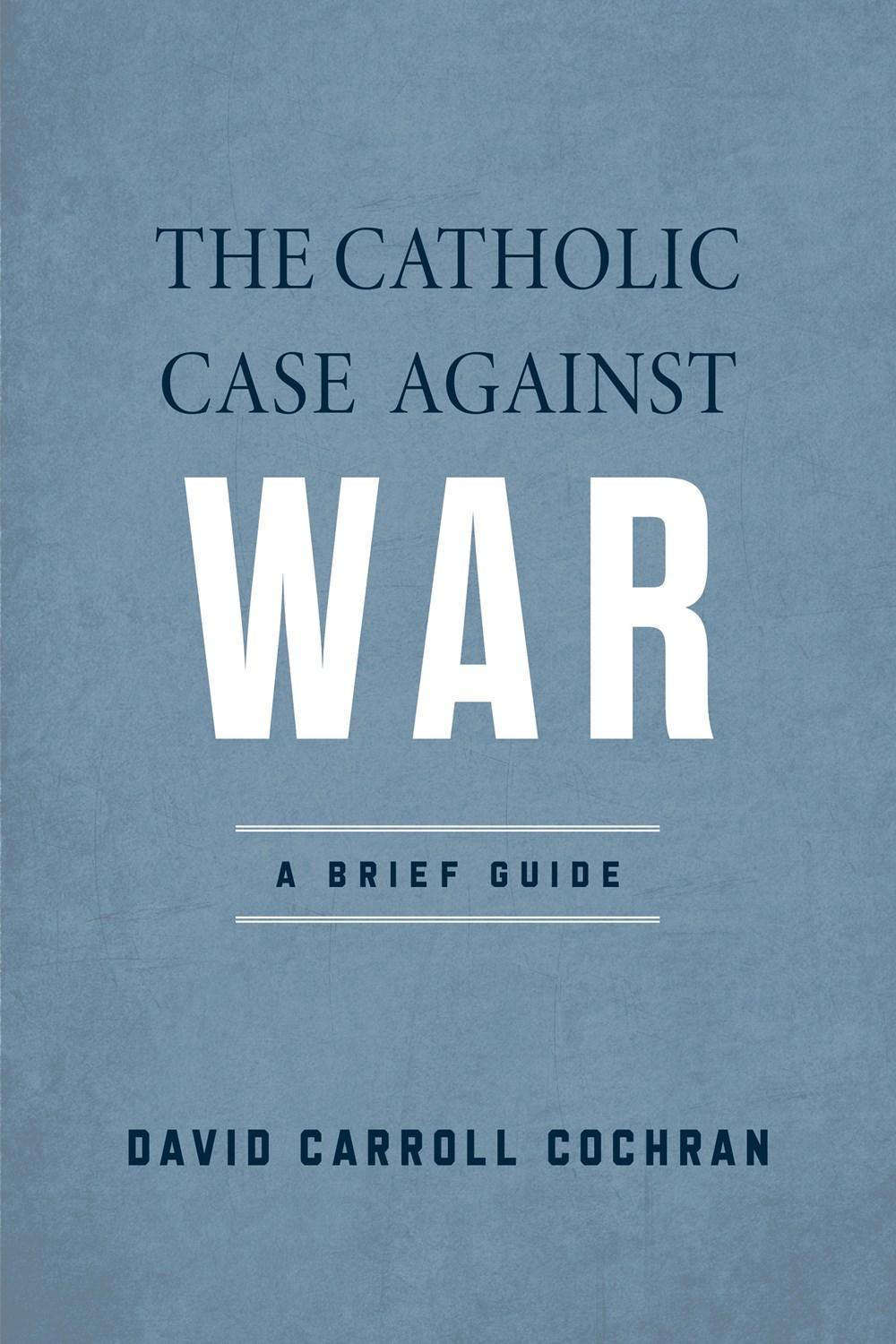
David Carroll Cochran
Summary
The Catholic Case against War demonstrates how the Catholic mantra “Never again war!” reflects a set of powerfully realistic teachings on war and peace.
Over the last five decades, the Catholic Church has emerged as a powerful critic of war and as an advocate for its alternatives. At the same time, researchers of armed conflict have produced a considerable body of scholarship on war and its prevention. The Catholic Case against War compares these seemingly disparate lines of thought and finds a remarkable harmony between the two.
Drawing on years of Vatican documents and papal statements, political scientist David Carroll Cochran clearly presents the key elements of the Church’s case against war. Far from a naïve, optimistic call for peace, these teachings are consistent with the empirical research on the realities of contemporary warfare. The result is a look not only at the explicit moral case against war developed by the Vatican but also at its remarkable realism and relevance to world conflict today.
Contributor Bio
David Carroll Cochran is professor of politics and co-director of the peace and justice minor at Loras College. He is the author or editor of five previous books, most recently The Catholic Church in Ireland Today and Catholic Realism and the Abolition of War
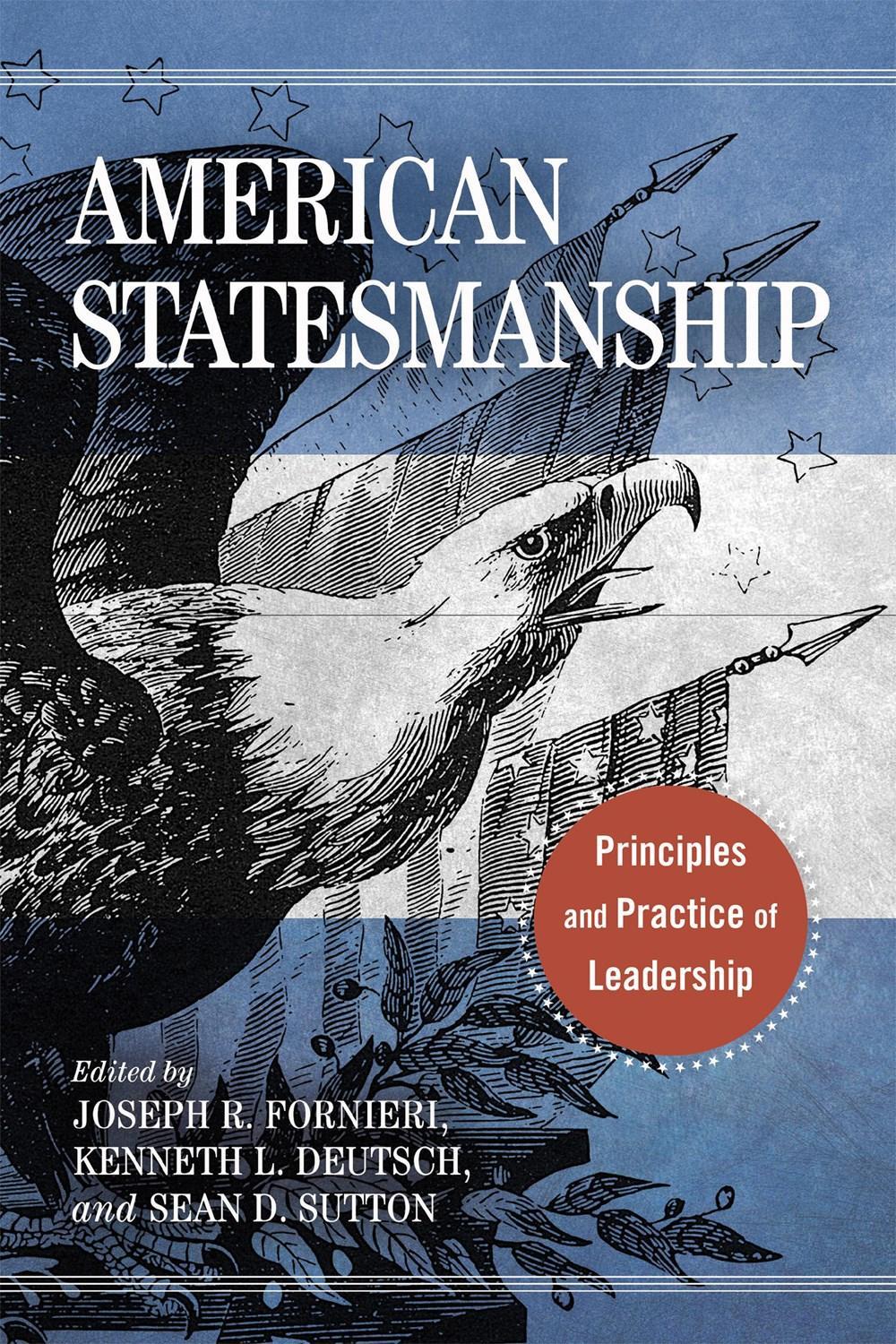
9780268201050
Pub Date: 11/1/21
$75.00 USD Hardcover
776 Pages
31 b&w illustrations
Political Science / American Government
Series: Center for Citizenship and Constitutional Government Series
9 in H | 6 in W
Joseph R. Fornieri, Kenneth L. Deutsch, Sean D. Sutton
Summary
This book, much needed in our public discourse, examines some of the most significant political leaders in American history.
With an eye on the elusive qualities of political greatness, this anthology considers the principles and practices of diverse political leaders who influenced the founding and development of the American experiment in self-government. Providing both breadth and depth, this work is a virtual “who’s who” from the founding to modern times. From George Washington to Frederick Douglass and Elizabeth Cady Stanton to FDR and Ronald Reagan, the book’s twenty-six chapters are thematically organized to include a brief biography of each subject, his or her historical context, and the core principles and policies that led to political success or failure. A final chapter considers the rhetorical legacy of Bill Clinton, George W. Bush, Barack Obama, and Donald Trump.
Contributors: Kenneth L. Deutsch, Gary L. Gregg II, David Tucker, Sean D. Sutton, Bruce P Frohnen, Stephanie P Newbold, Phillip G. Henderson, Michael P. Federici, Troy L. Kickler, Johnathan O’Neill, H. Lee Cheek, Jr., Carey Roberts, Hans Schmeisser, Joseph R. Fornieri, Peter C. Myers, Emily Krichbaum, Natalie Taylor, Jean M. Yarbrough, Christopher Burkett, Will Morrisey, Elizabeth Edwards Spalding, Patrick J. Garrity, Giorgi Areshidze, William J. Atto, David B. Frisk, Mark Blitz, Jeffrey Crouch, and Mark J. Rozell.
Contributor Bio
Joseph R. Fornieri is professor of political science at Rochester Institute of Technology and the director of the Center for Statesmanship, Law, and Liberty.
Kenneth L. Deutsch (1945–2015) was professor of political science at the State University of New York, Geneseo.
Sean D. Sutton is professor of political science at Rochester Institute of Technology.

Dishonorable Leadership in the U.S. Military
Jeffrey J. Matthews
U.S. flag officers are intended to be exemplary defenders of duty, honor, and country—but what can we learn by exposing the bad leaders lurking within these venerable ranks?
There is an ugly strain of criminal and unethical leadership in the upper ranks of the American military. Despite the exemplary service of most American military members, a persistent minority of U.S. flag officers (Navy admirals and Army, Air Force, and Marine generals) have embroiled the profession in scandal since the Revolutionary War. In Generals and Admirals, Criminals and Crooks, award-winning author Jeffrey J. Matthews examines bad leadership in American military history over the past one hundred years, beginning with war crimes in the Philippine-American War and ending with the recent Fat Leonard corruption scandal.
Scrutinizing a range of leadership failures, including moral cowardice, sex crimes, insubordination, toxic leadership, and obstruction of justice, Matthews offers a fascinating analysis of the bases and motives leading to these missteps and explores what could be done to curtail future misconduct of generals and admirals. The book also includes an up-to-date examination of President Trump’s term in office that highlights the vital role honorable military leadership plays in our democracy. Confronting the dark side of criminal and unethical conduct among U.S. flag officers, this frank and historically grounded book offers valuable lessons in leadership that will stimulate further debate and critical self-assessment within the U.S. military..
Contributor Bio
Jeffrey J. Matthews is the George Frederick Jewett Distinguished Professor at the University of Puget Sound in Tacoma, Washington. He teaches American history and leadership and has written or edited four previous books, including Colin Powell: Imperfect Patriot (University of Notre Dame Press, 2019), winner of the Foreword INDIES War and Military Book of the Year Award and finalist for the Army Historical Foundation Book Award.
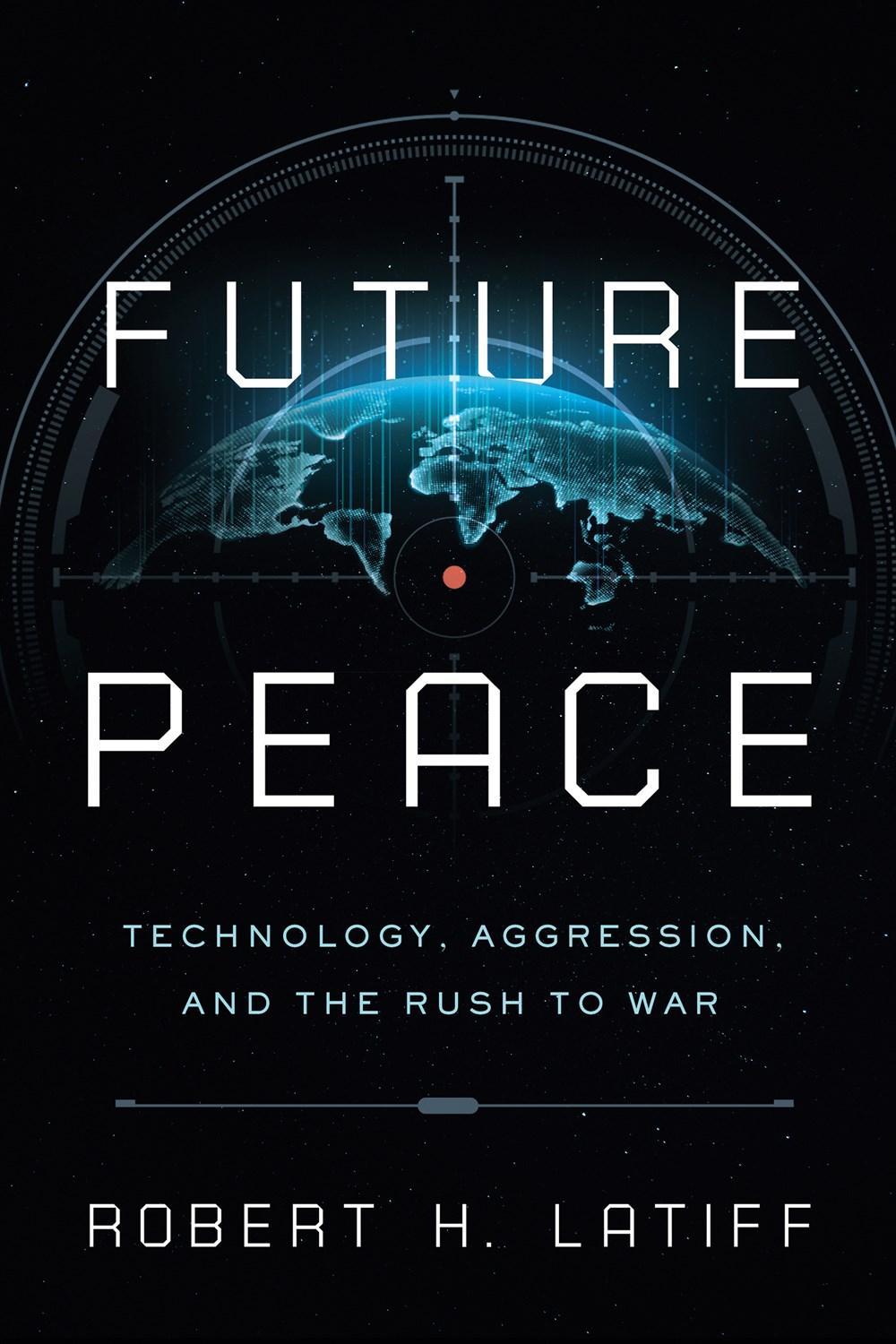
9780268201890
Pub Date: 3/1/22
$27.00
200
Robert H. Latiff
Future Peace urges extreme caution in the adoption of new weapons technology and is an impassioned plea for peace from an individual who spent decades preparing for war.
Today’s militaries are increasingly reliant on highly networked autonomous systems, artificial intelligence, and advanced weapons that were previously the domain of science fiction writers. In a world where these complex technologies clash with escalating international tensions, what can we do to decrease the chances of war? In Future Peace, the eagerly awaited sequel to Future War, Robert H. Latiff questions our overreliance on technology and examines the pressure-cooker scenario created by the growing animosity between the United States and its adversaries, our globally deployed and thinly stretched military, the capacity for advanced technology to catalyze violence, and the American public’s lack of familiarity with these topics.
Future Peace describes the many provocations to violence and how technologies are abetting those urges, and it explores what can be done to mitigate not only dangerous human behaviors but also dangerous technical behaviors. Latiff concludes that peace is possible but will require intense, cooperative efforts on the part of technologists, military leaders, diplomats, politicians, and citizens. Future Peace amplifies some well-known ideas about how to address the issues, and provides far-, mid-, and short-term recommendations for actions that are necessary to reverse the apparent headlong rush into conflict. This compelling and timely book will captivate general readers, students, and scholars of global affairs, international security, arms control, and military ethics.
Contributor Bio
Major General (Ret.) Robert H. Latiff is adjunct professor with the John J. Reilly Center for Science, Technology, and Values at the University of Notre Dame and research professor at George Mason University. He is the author of Future War: Preparing for the New Global Battlefield.

Jeffrey J. Matthews
This fascinating biography of the late Colin Powell brings to light his towering achievements and errors in judgment during a lifetime devoted to public service.
Until he passed away in 2021, Colin Powell was revered as one of America’s most trusted and admired leaders. This biography demonstrates that Powell’s decades-long development as an exemplary subordinate is crucial to understanding his astonishing rise from a working-class immigrant neighborhood to the highest echelons of military and political power, including his roles as the country’s first Black national security advisor, chairman of the Joint Chiefs of Staff, and secretary of state.
Once an aimless, ambitionless teenager who barely graduated from college, Powell became an extraordinarily effective and staunchly loyal subordinate to many powerful superiors who, in turn, helped to advance his career. By the time Powell became chairman of the Joint Chiefs of Staff, he had developed into the consummate follower—motivated, competent, composed, honorable, and independent. The quality of Powell's followership faltered at times, however, while in Vietnam, during the Iran-Contra scandal, and after he became George W. Bush's secretary of state. Powell proved a fallible patriot, and in the course of a long and distinguished career he made some grave and consequential errors in judgment. While those blunders do not erase the significance of his commendable achievements amid decades of public service, we can learn much from his good and bad leadership.
Contributor Bio
Jeffrey J. Matthews is the George Frederick Jewett Distinguished Professor at the University of Puget Sound in Tacoma, Washington. He teaches American history and leadership and has written or edited three previous books, including Blacksheep Leadership and The Art of Command: Military Leadership from George Washington to Colin Powell
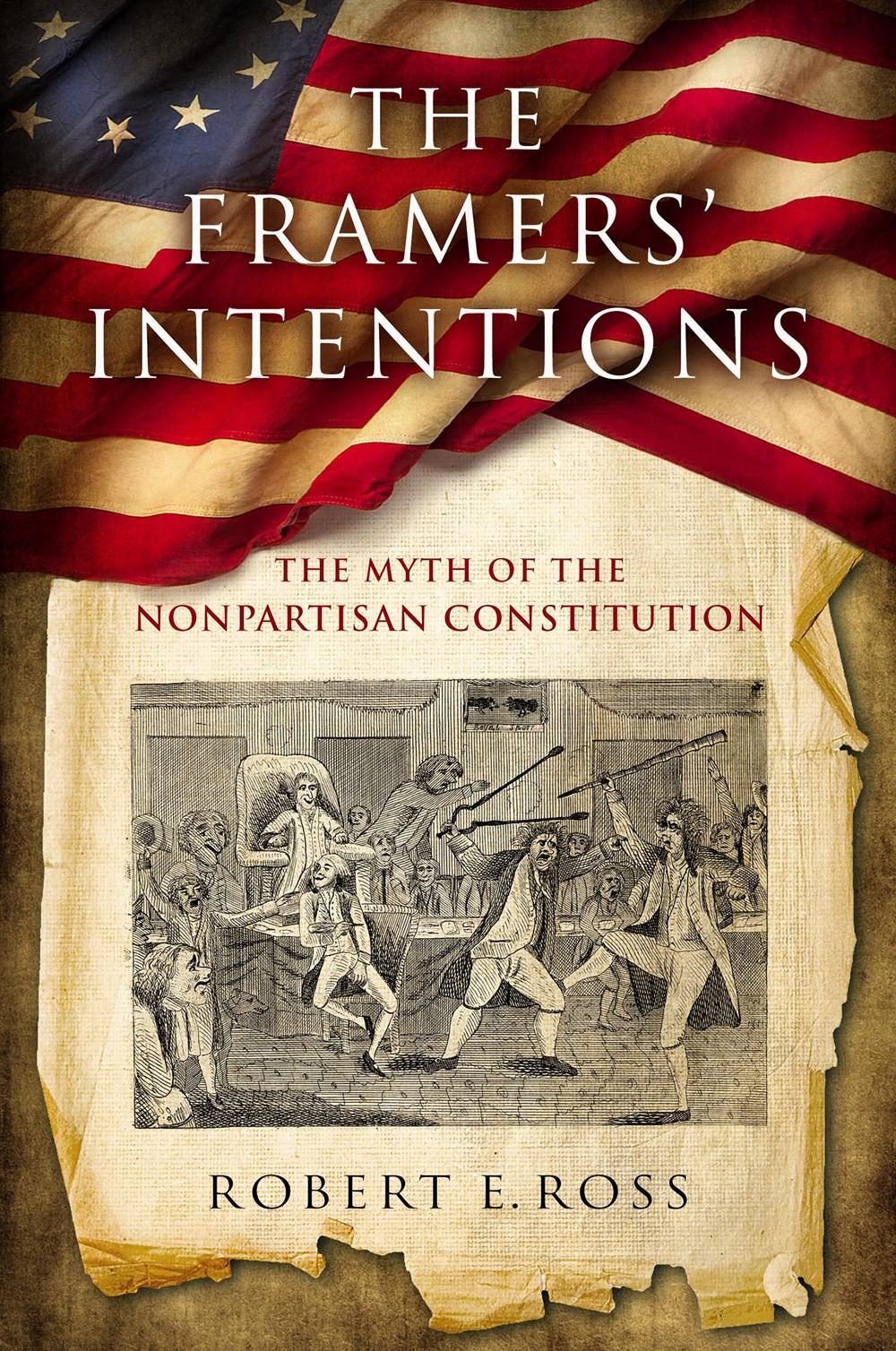
9780268105495
Pub Date: 5/31/19
$50.00 USD
282 Pages Political Science / Political Process
9 in H | 6 in W
The Myth of the Nonpartisan Constitution
Robert E. Ross
Summary
Robert Ross addresses a fascinating and unresolved constitutional question: why did political parties emerge so quickly after the framers designed the Constitution to prevent them? The text of the Constitution is silent on this question. Most scholars of the subject have taken that silence to be a hostile one, arguing that the adoption of the two-party system was a significant break from a long history of antiparty sentiments and institutional design aimed to circumscribe party politics.
The constitutional question of parties addresses the very nature of representation, democracy, and majority rule. Political parties have become a vital institution of representation by linking the governed with the government. Efforts to uphold political parties have struggled to come to terms with the apparent antiparty sentiments of the founders and the perception that the Constitution was intended to work against parties.
The Framers’ Intentions connects political parties and the two-party system with the Constitution in a way that no previous account has, thereby providing a foundation for parties and a party system within American constitutionalism. This book will appeal to readers interested in political parties, constitutional theory, and constitutional development.
Contributor Bio
Robert Ross is assistant professor of political science at Utah State University and a contributor to Hatred of America’s Presidents
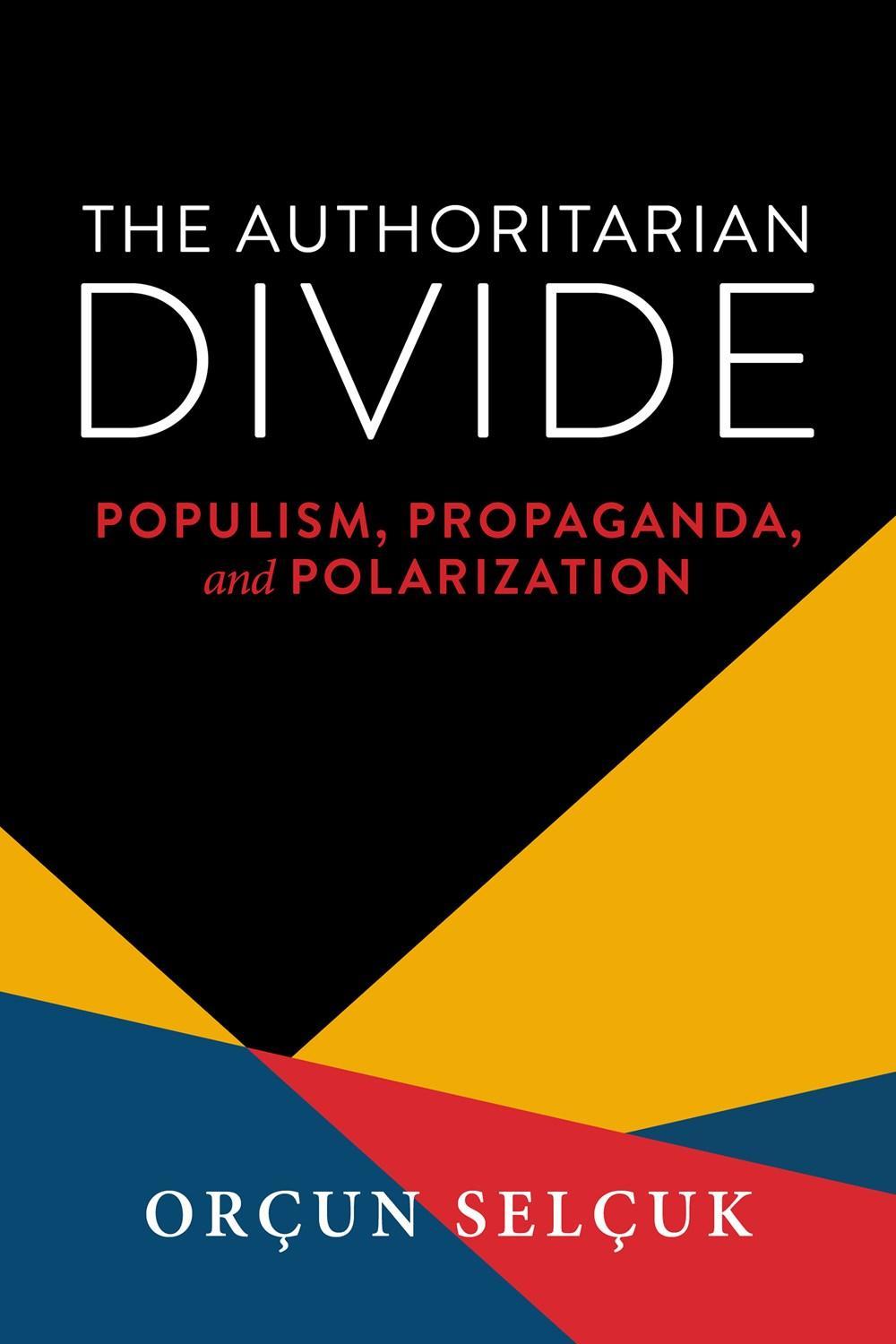
Orçun Selçuk
Summary
In the context of the global decline of democracy, The Authoritarian Divide analyzes the tactics that populist leaders in Turkey, Venezuela, and Ecuador have used to polarize their countries.
Political polarization is traditionally viewed as the result of competing left/right ideologies. In The Authoritarian Divide, Orçun Selçuk argues that, regardless of ideology, polarization is driven by dominant populist leaders who deliberately divide constituents by cultivating a dichotomy of inclusion and exclusion. This practice, known as affective leader polarization, stymies compromise and undermines the democratic process.
Drawing on multiple qualitative and quantitative methodologies for support, as well as content from propaganda media such as public speeches, Muhtar Meetings, Aló Presidente, and Enlace Ciudadano, Selçuk details and analyzes the tactics used by three well-known populist leaders to fuel affective leader polarization: Recep Tayyip Erdoğan in Turkey, Hugo Chávez in Venezuela, and Rafael Correa in Ecuador. Selçuk’s work provides a rubric for a better understanding of—and potential defense against—the rise in polarizing populism across the globe.
Contributor Bio
Orçun Selçuk is an associate professor of political science and the director of the International Studies Program at Luther College.
6 in W
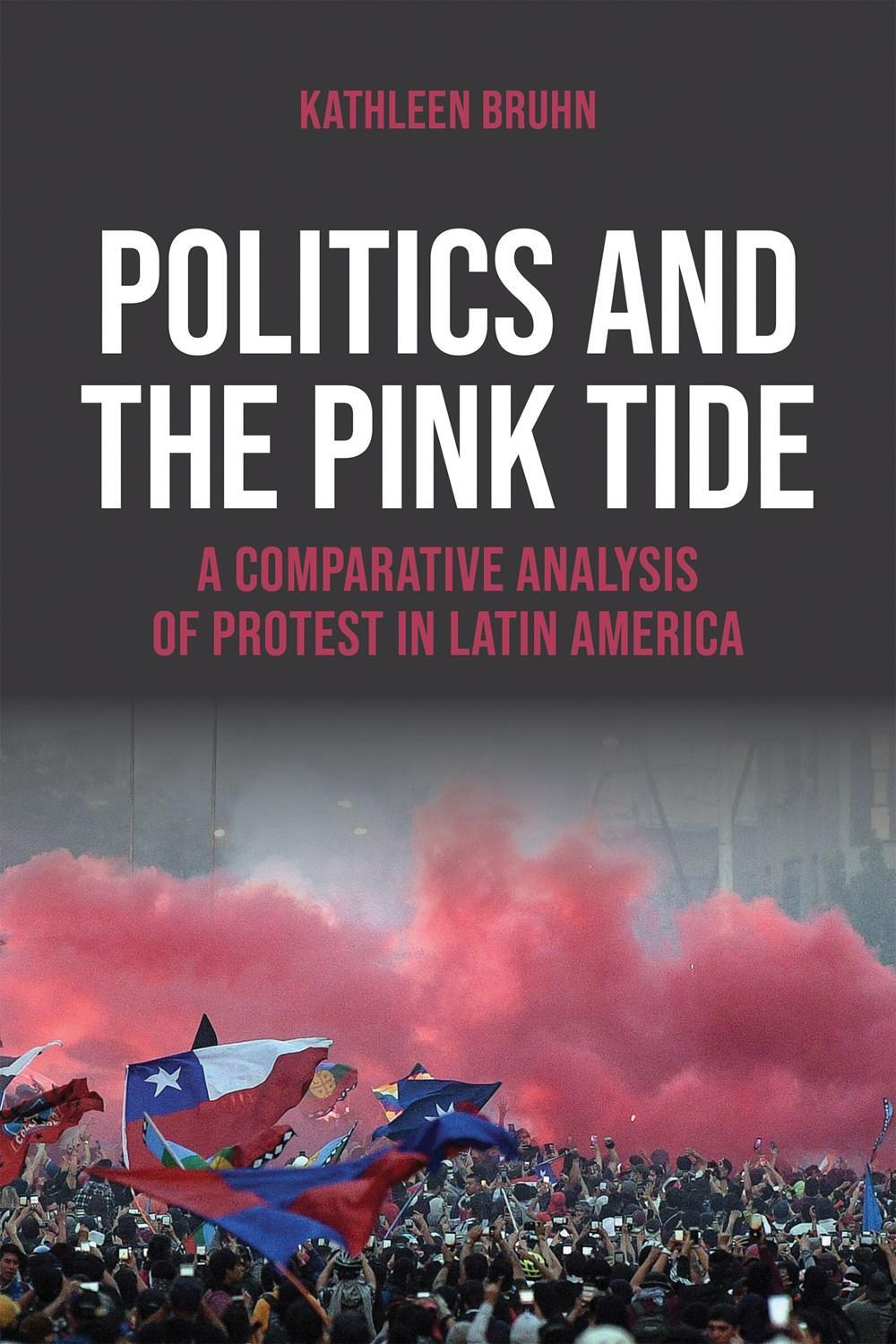
9780268207687
Pub Date: 4/15/24
$65.00 USD
258 Pages
2 b&w illustrations, 22 tables
Political Science / World Series: Kellogg Institute Series on Democracy and Development
9 in H | 6 in W
Kathleen Bruhn
Politics and the Pink Tide investigates the ways in which protest varied across five Latin American countries that elected leftist presidents during the Pink Tide.
Kathleen Bruhn compares the differences in protest that occurred under the new leftist governments to their conservative, neoliberal predecessors, offering a wide-angle view into the complex relationships between neoliberalism, political party structures, and protest.
Using individual and event-level data from Bolivia, Brazil, Chile, Venezuela, and Ecuador, Politics and the Pink Tide shows how economic policy choices and the links between leftist parties and social movements affect patterns of protest. For example, although more orthodox neoliberal approaches did motivate more economic protest, the book demonstrates that neither more radical nor more socially linked leftist governments were better able to contain protest—or to do so without resorting to police violence. Politics and the Pink Tide proposes a sweeping exploration of protest, one that is controlled by economic policy and grievances, the social embeddedness of political parties, and the norms surrounding protest tactics within public life.
Contributor Bio
Kathleen Bruhn is a professor in and the chair of the Department of Political Science at University of California, Santa Barbara. She is the author of Urban Protest in Mexico and Brazil.
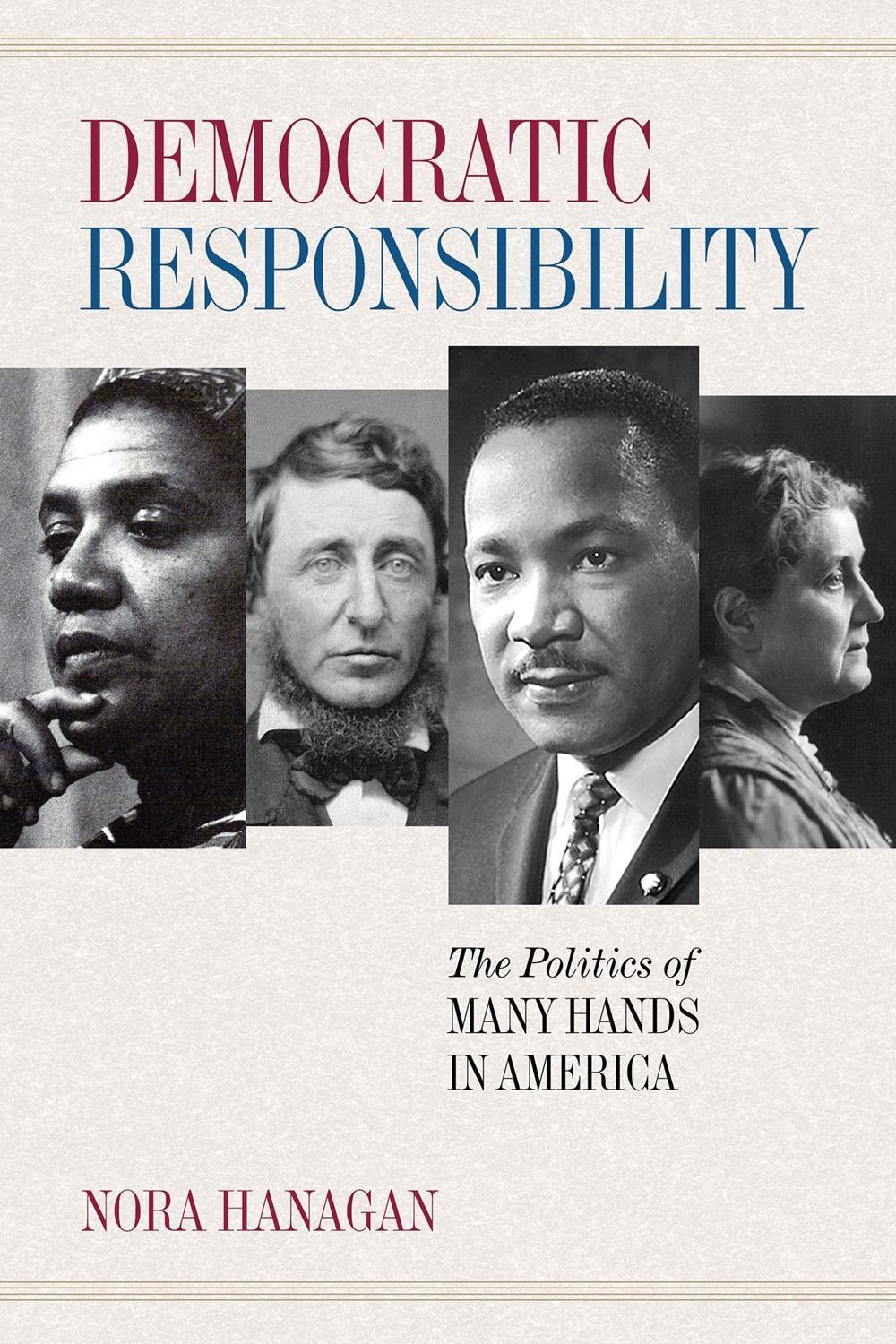
Nora Hanagan
American society is often described as one that celebrates self-reliance and personal responsibility. However, abolitionists, progressive reformers, civil rights activists, and numerous others often held their fellow citizens responsible for shared problems such as economic exploitation and white supremacy. Moreover, they viewed recognizing and responding to shared problems as essential to achieving democratic ideals. In Democratic Responsibility, Nora Hanagan examines American thinkers and activists who offered an alternative to individualistic conceptions of responsibility and puts them in dialogue with contemporary philosophers who write about shared responsibility. Drawing on the political theory and practice of Henry David Thoreau, Jane Addams, Martin Luther King Jr., and Audre Lorde, Hanagan develops a distinctly democratic approach to shared responsibility. Cooperative democracy is especially relevant in an age of globalization and hyperconnectivity, where societies are continually threatened with harms—such as climate change, global sweatshop labor, and structural racism—that result from the combined interactions of multiple individuals and institutions, and which therefore cannot be resolved without collective action. Democratic Responsibility offers insight into how political actors might confront seemingly intractable problems, and challenges conventional understandings of what commitment to democratic ideals entails. This book will be of interest to scholars and students of political science, especially those who look to the history of political thought for resources that might promote social justice in the present.
Contributor Bio
Nora Hanagan is teaching assistant professor at the University of North Carolina at Chapel Hill.
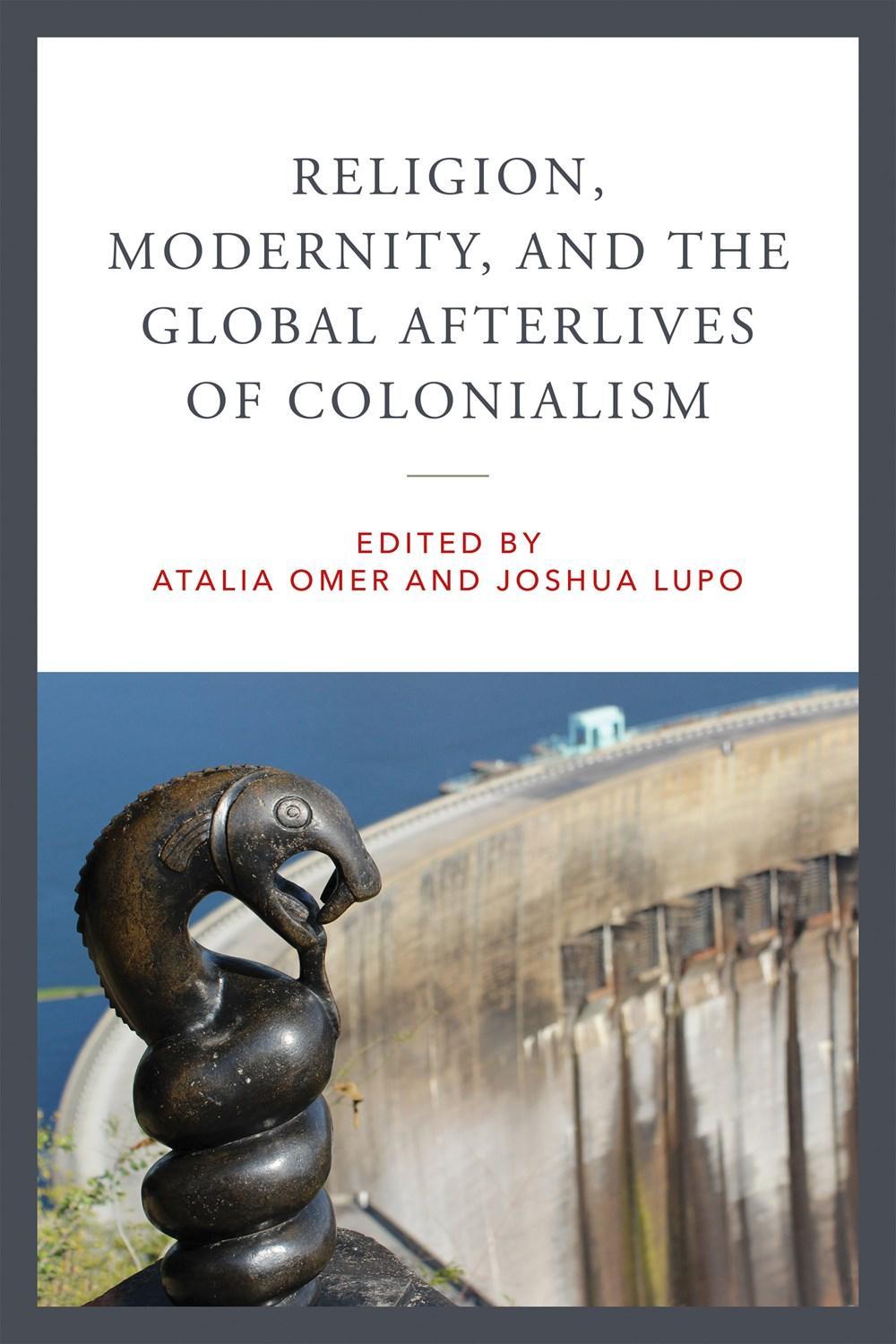
9780268208486
Pub Date: 9/15/24
$35.00
Atalia Omer, Joshua Lupo
Summary
Religion, Modernity, and the Global Afterlives of Colonialism examines the tenacious, lingering impact of European colonial ideology on religion and politics around the world.
Even though the formal structures of colonialism have crumbled, with a few notable exceptions, European colonial ideology continues to operate across the globe, resulting in limited, nationalistic conceptualizations of religion and politics. Religion, Modernity, and the Global Afterlives of Colonialism shows convincingly that not only has colonialism had a devastating impact on the colonized, but its reach has turned inward to erode the colonizer’s own social and political systems.
By examining the colonial violence constitutive of liberal political ideology, the continued oppression of Muslims in Europe in the name of security, and the way neoliberal economics bends religious hermeneutics to its will, the authors of Religion, Modernity, and the Global Afterlives of Colonialism call attention to the threats that face our world today. They also point to potential sites of hope—for example, the work of a priest in the Balkans who seeks to build solidarity across religious differences; groups in Africa who are constructing decolonial religious imaginaries; and the Islamo-futurism of Dune, which haltingly imagines a form of modernity beyond the West.
Contributors: Atalia Omer, Joshua Lupo, Santiago Slabodsky, Nadia Fadil, S. Sayyid, Luca Mavelli, Edmund Frettingham, Cecelia Lynch, Slavica Jakelić, and Gil Anidjar
9
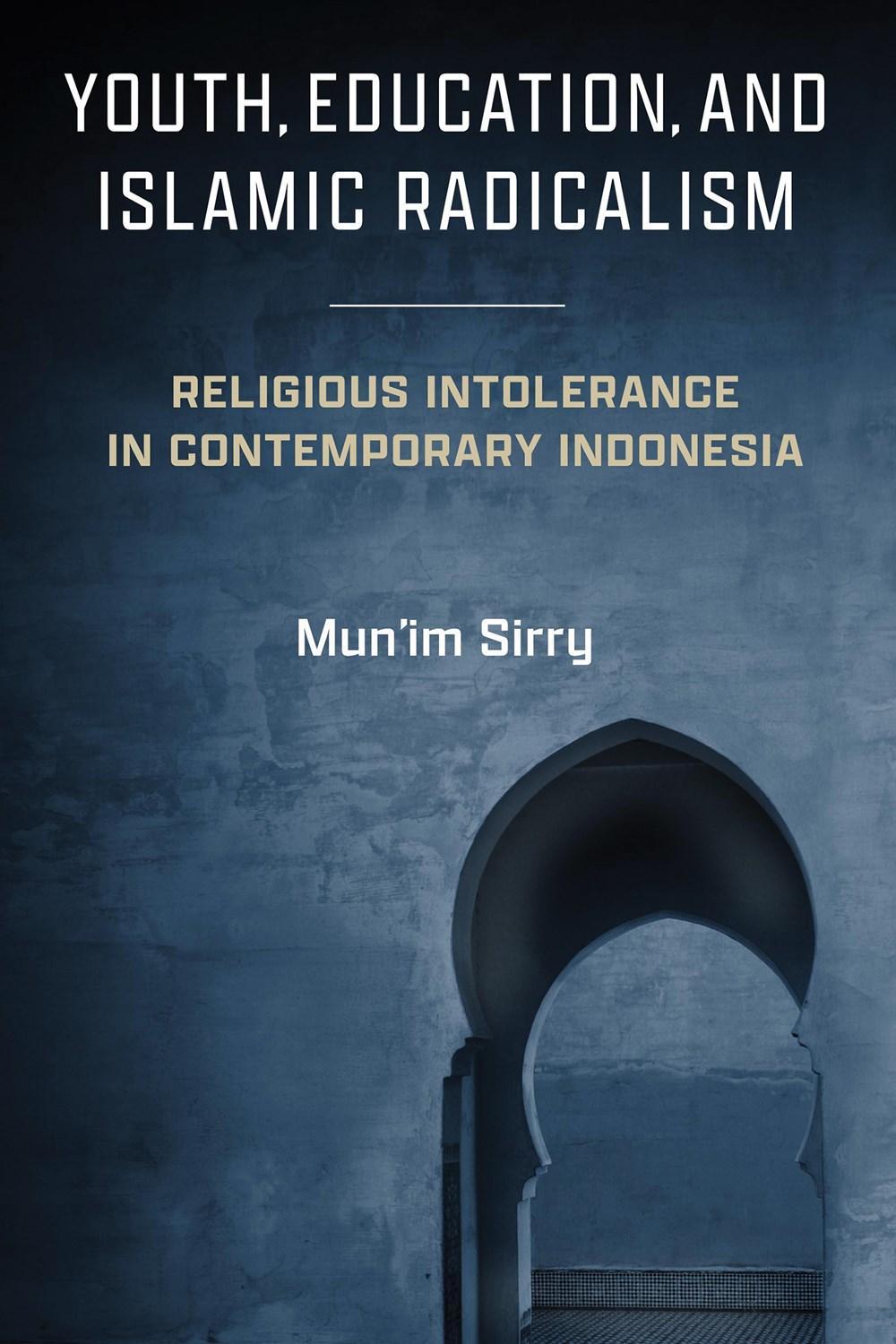
Contributor Bio
Atalia Omer is professor of religion, conflict, and peace studies at the Kroc Institute for International Peace Studies and the Keough School of Global Affairs at the University of Notre Dame. She is the author of Decolonizing Religion and Peacebuilding and co-editor of Religion, Populism, and Modernity.
Joshua Lupo is the assistant director of the Contending Modernities research initiative at the Kroc Institute for International Peace Studies at the University of Notre Dame. He is the co-editor of Religion, Populism, and Modernity
Religious Intolerance in Contemporary Indonesia
Mun'im Sirry
Summary
Youth, Education, and Islamic Radicalism offers groundbreaking analysis of religious intolerance and radicalization among high school and university students in modern-day Indonesia.
Indonesia is one of the most diverse countries in the world in terms of religion, ethnicity, and socioeconomic status, but also in the complexity of its education system. Youth, Education, and Islamic Radicalism examines the roots of religious intolerance among young Indonesians and explores the various ways in which educated youth navigate radical ideologies amid growing religious conservatism.
The book presents nuanced explanations as to why one person becomes radicalized while another does not, calling into question the common assumption that religious radicalism is directly connected to terrorism. It problematizes the notion that the university is a significant hub, trigger, or birthplace of radicalization by asking: What makes education attractive for extremist recruitment? What shapes students’ views? Under what circumstances do radicalization and deradicalization processes of educated youth take place? Youth, Education, and Islamic Radicalism identifies a constellation of factors that shape young people’s views of religious diversity in Indonesia, demonstrating the ways in which they become radicalized in the first place, and how, in some cases, they deradicalize themselves.
Contributor Bio
Mun’im Sirry is an associate professor of theology at the University of Notre Dame and author of several books, including The Qur’an with Cross-References
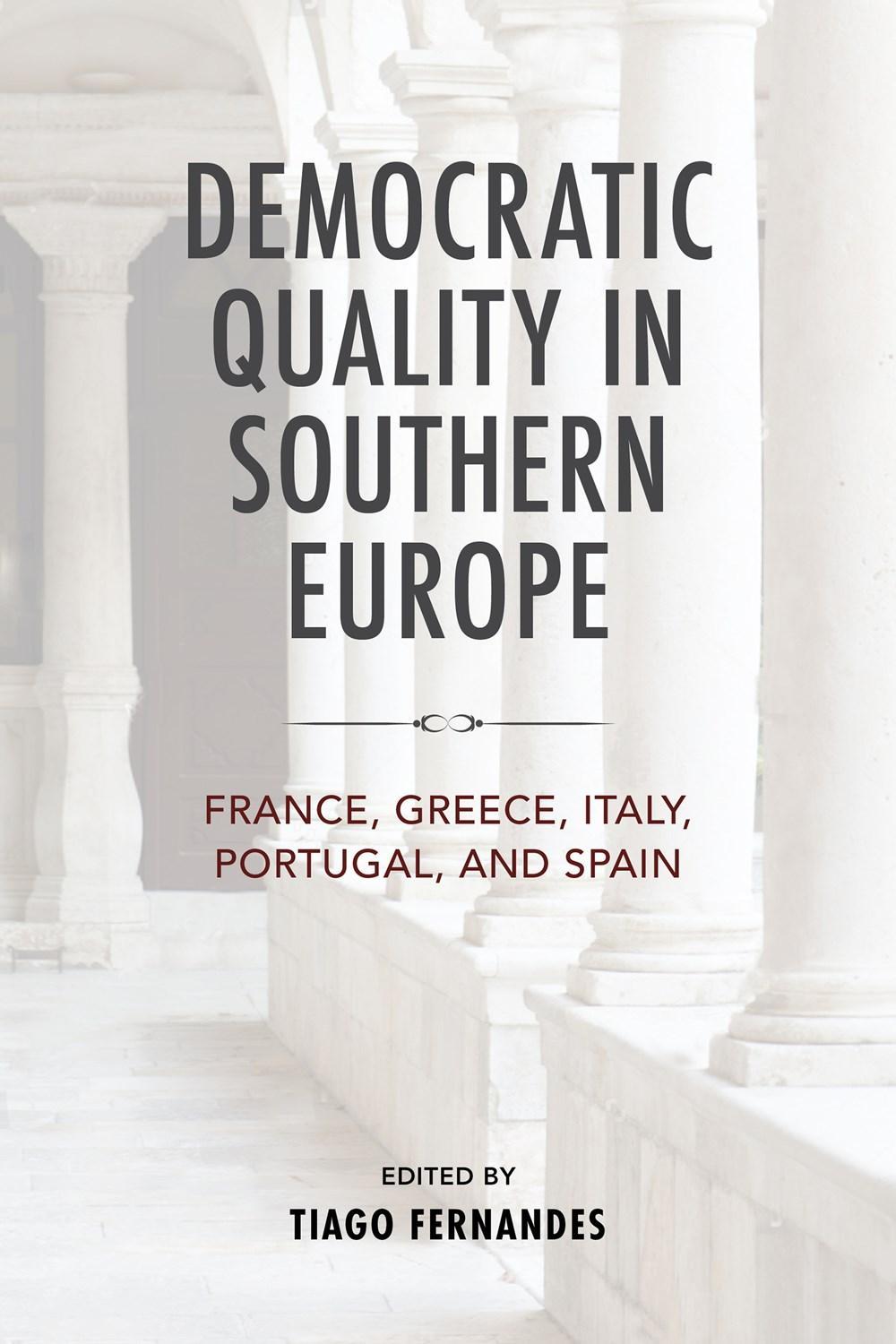
9780268207755
Pub Date: 5/15/24
$65.00 USD
Hardcover
374 Pages
49 b&w illustrations, 10 tables Political Science / Political Ideologies
Series: Kellogg Institute
Series on Democracy and Development
9 in H | 6 in W
France, Greece, Italy, Portugal, and Spain
Tiago Fernandes
Summary
Fueled by new data from the Varieties of Democracy project, Democratic Quality in Southern Europe takes a close look at the democratic trajectories of France, Greece, Italy, Portugal, and Spain over the past fifty years.
Despite similar beginnings, France, Greece, Italy, Portugal, and Spain have experienced significant variations in the way their democracies have evolved. Covering ground from the protest movements of the late ’60s and early ’70s to the challenges that resulted from the financial crisis of the Great Recession, editor Tiago Fernandes expertly draws together a collection of essays that look beyond the impact of socioeconomic development in these five countries, exploring innovative and nuanced explanations for their diverging paths.
Democratic Quality in Southern Europe combines new data with classical methodologies to create fresh, convincing hypotheses on the development, quality, and depth of democracy in this critical region.
Contributors: Tiago Fernandes, Rui Branco, João Cancela, Edna Costa, Pedro Diniz de Sousa, Pedro T. Magalhães, Edalina Rodrigues Sanches, José Santana-Pereira, Tiago Tibúrcio
Contributor Bio
Tiago Fernandes is associate professor of political science at the University Institute of Lisbon. He is head of the Varieties of Democracy Regional Center for Southern Europe and was a visiting fellow at the Kellogg Institute for International Studies between 2009 and 2011. He most recently co-authored Legacies and Memories in Movements: Justice and Democracy in Southern Europe.
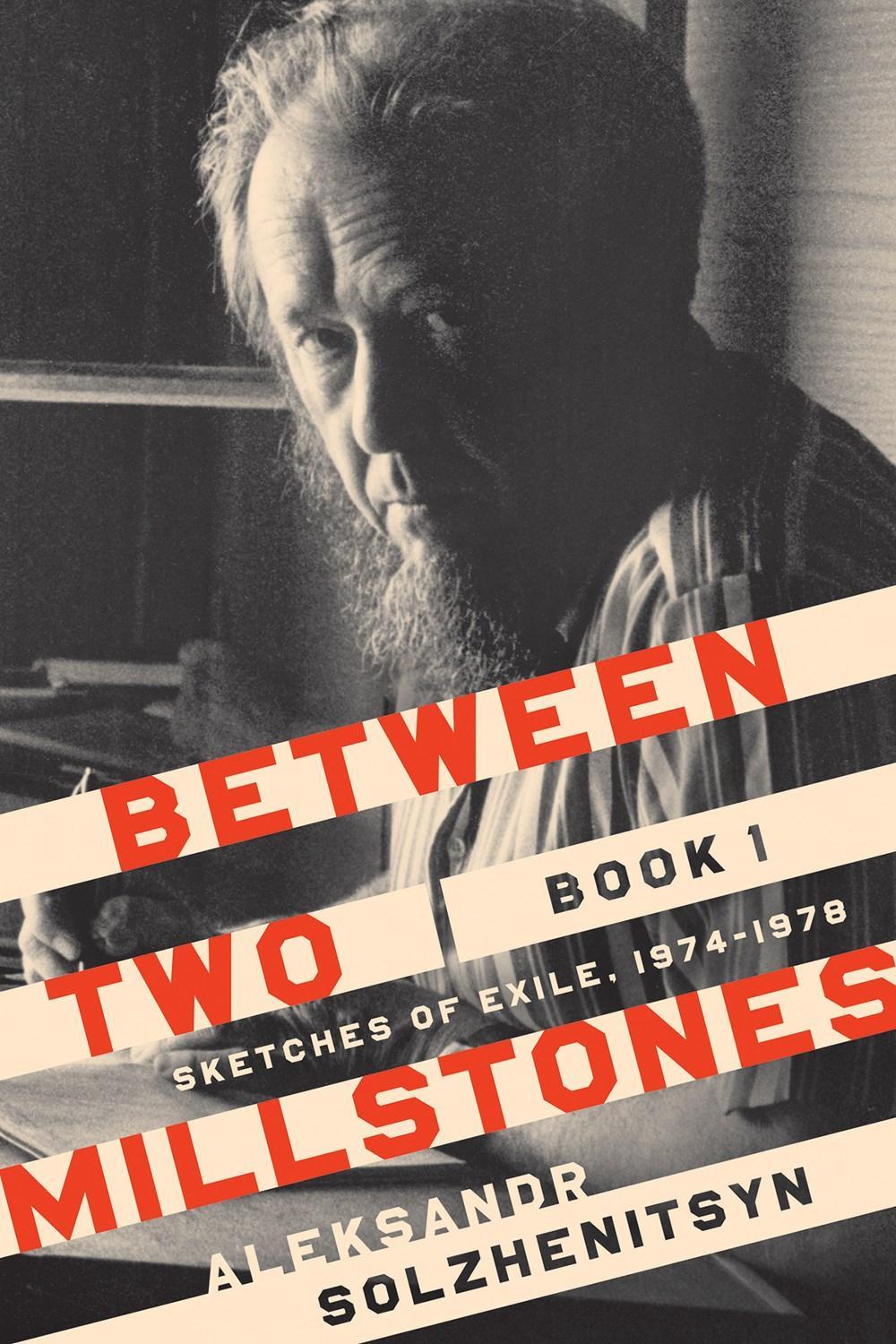
9780268105020
Aleksandr Solzhenitsyn, Peter Constantine
Summary
Between Two Millstones, Book 1 begins on February 13, 1974, when Solzhenitsyn found himself forcibly expelled to Frankfurt, West Germany, as a result of the publication in the West of The Gulag Archipelago. Solzhenitsyn moved to Zurich, Switzerland, for a time and was considered the most famous man in the world
Between Two Millstones contains vivid descriptions of Solzhenitsyn's journeys to various European countries and North American locales, where he and his wife Natalia (“Alya”) searched for a location to settle their young family. There are fascinating descriptions of one-on-one meetings with prominent individuals, detailed accounts of public speeches such as the 1978 Harvard University commencement, comments on his television appearances, accounts of his struggles with unscrupulous publishers and agents who mishandled the Western editions of his books, and the KGB disinformation efforts to besmirch his name. There are also passages on Solzhenitsyn's family and their property in Cavendish, Vermont, whose forested hillsides and harsh winters evoked his Russian homeland, and where he could finally work undisturbed on his ten-volume dramatized history of the Russian Revolution, The Red Wheel Stories include the efforts made to assure a proper education for the writer's three sons, their desire to return one day to their home in Russia, and descriptions of his extraordinary wife, editor, literary advisor, and director of the Russian Social Fund, Alya, who successfully arranged, at great peril to herself and to her family, to smuggle Solzhenitsyn's invaluable archive out of the Soviet Union.
Contributor Bio
Aleksandr Solzhenitsyn (1918–2008), Nobel Prize laureate in literature, was a Soviet political prisoner from 1945 to 1953. His book The Gulag Archipelago (1973) unmasked Communism and played a critical role in its eventual defeat. Solzhenitsyn was exiled to the West in 1974. He ultimately published dozens of plays, poems, novels, and works of history, nonfiction, and memoir.
Peter Constantine is a literary translator and editor, and the director of the Literary Translation Program at the University of Connecticut.
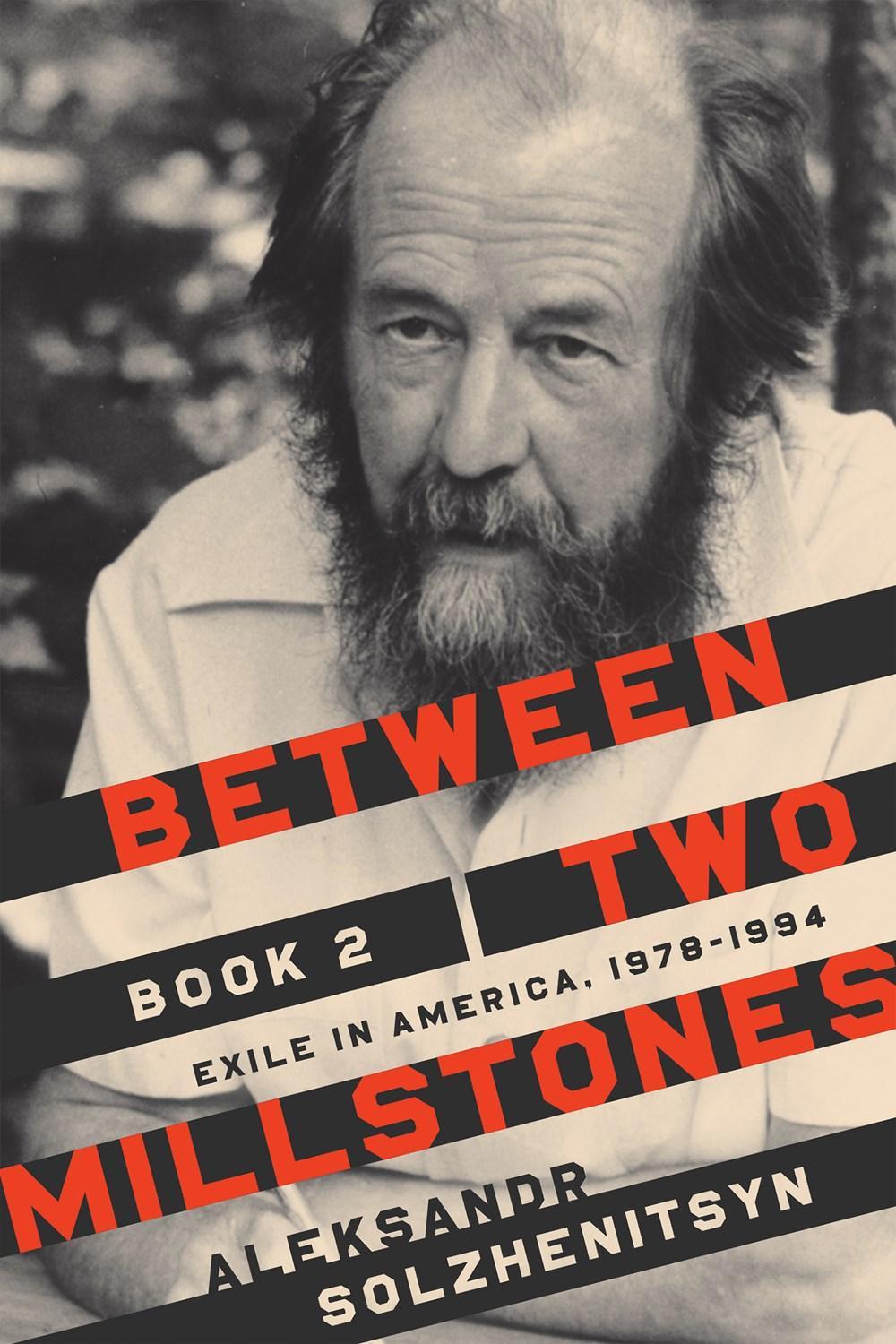
9780268109011
Pub Date: 9/1/23
$29.00 USD Paperback
584 Pages
Biography & Autobiography / Memoirs
Series: The Center for Ethics and Culture Solzhenitsyn Series
9.2 in H | 6.1 in W
Aleksandr Solzhenitsyn, Clare Kitson, Melanie Moore
Summary
Book 2 picks up the story of Solzhenitsyn’s remarkable life after the raucous publicity over his 1978 Harvard Address has died down. The author parries attacks from the Soviet state (and its many fellow-travelers in the Western press) as well as from recent émigrés who, according to Solzhenitsyn, defame Russian culture, history, and religion. He shares his unvarnished view of several infamous episodes, such as a sabotaged meeting with Ronald Reagan, aborted Senate hearings regarding Radio Liberty, and Gorbachev’s protracted refusal to allow The Gulag Archipelago to be published back home. There is also a captivating chapter detailing his trips to Japan, Taiwan, and Great Britain, including meetings with Margaret Thatcher and Prince Charles and Princess Diana. Meanwhile, the central themes of Book 1 course through this volume, too—the immense artistic quandary of fashioning The Red Wheel, staunch Western hostility to the historical and future Russia (and how much can, or should, the author do about it), and the challenges of raising his three sons in the language and spirit of Russia while cut off from the homeland in a remote corner of rural New England. The book concludes in 1994, as Solzhenitsyn bids farewell to the West in a valedictory series of speeches and meetings with world leaders, including John Paul II, and prepares at last to return home with his beloved wife Natalia, full of misgivings about what use he can be in the first chaotic years of post-Communist Russia, but never wavering in his conviction that, in the long run, his books would speak, influence, and convince.
Contributor Bio
Aleksandr Solzhenitsyn (1918–2008), Nobel Prize laureate in literature, was a Soviet political prisoner from 1945 to 1953. His book The Gulag Archipelago (1973) further unmasked Communism and played a critical role in its eventual defeat. Solzhenitsyn was exiled to the West in 1974. He ultimately published dozens of plays, poems, novels, and works of history, nonfiction, and memoir.
Clare Kitson is a Russian literary translator. She has also translated part of Aleksandr Solzhenitsyn’s epic cycle, The Red Wheel
Melanie Moore is a Russian and French translator, and she has produced a number of Russian literary translations.
You can order the books by:
PHONE FAX
800-848-6224 or 919-966-7449
800-272-6817 or 919-962-2704
EMAIL WEBSITE orders@longleafservices.org
Visit our website at undpress.nd.edu
MAIL INQUIRIES to: University of Notre Dame Press
EMAIL to: customerservice@longleafservices.org c/o Longleaf Services, Inc. 116 S. Boundary St. Chapel Hill, NC 27514-3808
Shipping and Handling: $6 for the first book and $1 for each additional book. Shipping by expedited means for shipments outside the US will be charged $10 for the first book, and $6 for each additional book.
The University of Notre Dame Press is committed to making our scholarly materials available in a full range of digital formats—those that currently exist and those that will be developed in the future—to reach a worldwide community of readers. Whether you own a Kindle, Nook, iPad, or other reading device, you can read University of Notre Dame Press ebooks using any of the following retail channels:


Our library partners include:
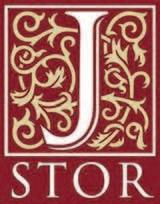









This catalog describes new and recently published books from the University of Notre Dame Press.
Publication dates, page counts, prices, and discounts are based on information available at the time this catalog went to press and are subject to change without prior notice.
Books in this catalog may also be ordered through Edelweiss, the service from Above the Treeline.


Sign up for our e-newsletter at undpress.nd.edu for information about our publications and special offers.